FG Flags Off Reconstruction of over N700bn Abuja-Kaduna-Kano Highway
says Tinubu

says Tinubu
lawyers studying ruling in 30-year-old
L-R: Michael Nevin, Non-Executive Director, Mobilist; Mike Chilton, Independent Non-Executive Director, InfraCredit; Pany Nah, Member, Executive Management, InfraCredit; Ijeoma Taylaur, CEO, AccessARM Pensions; Dave Uduanu, MD/CEO, InfraCredit; Chinua Azubike, Investment Advisor, MOBILIST; Louis Lapaz, Chairman,
Director, InfraCredit; Vivien Shobo,



























Folalumi Alaran in Abuja
Investigations by the National Orientation Agency (NOA) and the Nigerian Education Loan Fund (NELFUND) have revealed alleged unethical practices in the disbursement of the federal government's student loan fund by several tertiary institutions across the country.
According to the findings released over the weekend, some universities and financial institutions have
Sunday Aborisade and Linus Aleke in Abuja
The senator for Borno South Senatorial District, Ali Ndume, has revealed that about 252 attacks carried out by Boko Haram terrorists between November 2024 and April 2025 in Borno State led to the death of 100 soldiers and 280 civilians, totalling 380 casualties.
Ndume, who spoke with journalists in Abuja, also shared efforts being made by the political leaders and the military authorities in the state to curtail the resurgence of insurgency
He said the military needed MRAP (Mine-Resistant Ambush Protected) vehicles that would cost about $1billion each.
He denounced Minister of Information and National Orientation, Mohammed Idris, for faulting his claims on the latest security situation in Borno State.
But Chief of the Air Staff (CAS), Air Marshal Hasan Abubakar, yesterday, told troops of the Air Component of Operation Hadin Kai that Nigerians now slept with their two eyes closed because of their sacrifices and vigilance.
Ndume insisted that the military needed multi-billionnaira equipment to tackle the insurgents, adding that efforts are currently being made to deliver three communities in Borno State being administered by Boko Haram terrorists.
He said Borno State Governor Babangana Zulum, in company with the three senators from the state had met with the Chief of Defence Staff, Chief
The contract was first awarded to Julius Berger in 2018 and was supposed to cost less than N155.7 billion with a 36-month completion date. However, the contract sum was later raised to N1.5 trillion by the contractor, resulting in its recent revocation, as the government insisted on paying N740 billion.
Yesterday, the event had the presence of the Kaduna State Governor, Senator Uba Sani, former Governor of Kaduna State, Ramalan Yero, and a former senator representing Kaduna North Senatorial District, Suleiman Hunkuyi, among others.
According to Umahi, the president awarded the completion and reconstruction of section 1 and 3, a total of 118 kilometres, for a total sum of N252 billion with 30 per cent mobilisation
on X, @aonanuga1956, said,
"Journalists have sought the Presidency’s reaction to the ruling last Tuesday by a Washington DC judge ordering the US FBI and DEA to release reports connected with President Bola Ahmed Tinubu. "Our response is as follows: There is nothing new to be revealed. The report by Agent Moss of the FBI and the DEA report have been in the public
allegedly conspired to withhold or delay loan disbursements meant for students, raising serious concerns over transparency and accountability in the new student loan scheme.
Deputy Director of Communications and Media, NOA, Paul Odenyi, in a statement, further reiterated the agency’s commitment to ensuring that the objectives of the student loan scheme are not derailed. “This is about safeguarding the future of education in Nigeria,” he said.
of Army Staff, Chief of Air Staff, and Chief of Naval Staff to brainstorm on how to tackle the current insecurity in the state.
He stated, “We are worried because just from November last year to date, we experienced 252 attacks in Borno State.
“In the six months, over 100 soldiers were killed. Over 238 civilians were killed. Even though the Nigerian armed forces are doing their best, they have in Borno State eliminated over 800 terrorists.
“The terrorists themselves have eliminated about 500 of themselves because of the fight between the ISWAP and the Boko Haram.”
Ndume disclosed, “As I'm speaking to you now, three of our local governments are under Boko Haram.
“They are Gudumbari, Marche, and Abadam. That is the honest truth of it. And right now, from 6pm you cannot go anywhere except in Southern Borno.
“Even in Southern Borno, seven local governments out of the nine, when it is 6 o'clock, you cannot go anywhere. You cannot even move between one local government and another after 5 o'clock in Borno State until eight o'clock in the morning, after the Nigerian Army might have scanned the road manually.”
The senator spoke on efforts to contain insurgency in Borno State, saying, “On Thursday (last week), myself (Ndume) and the other two senators from my state and a member of House of Representatives and His Excellency, the Governor, went and had meetings with the CDS, Chief of Army Staff, Chief
paid to Infouest.
“The company is trusted and has the competence to do the work. The concrete road has commenced, I have seen the quality and I have no regret for recommending them to do this work. Also, we are flagging off section 2, that is, 82 kilometres, multiplied by 2, 164 kilometres at a total cost of N525 billion,” the minister added.
He assured the governor that the road project will be completed on schedule, lauding him specifically for ensuring security in Kaduna state.
“You have got close to a trillion to complete this road, you are a very smart governor, I know the president trusts you in his heart so you have to give me the magic, so that I will tell the governors of the South-east to
space for more than 30 years. The reports did not indict the Nigerian leader. The lawyers are examining the ruling."
A federal judge of the Court for the District of Columbia, Beryl Howell, recently ordered FBI and DEA to release records of their investigations on the alleged involvement of Tinubu in drug trafficking. Howell, on April 8, ruled that FBI and DEA’s refusal to
The statement stressed the Director General of NOA, Mallam Lanre Issa-Onilu, as having disclosed the development following a strategic meeting with the Managing Director of NELFUND, Mr. Akintunde Sawyerr.
The revelation, the release said, was based on reports gathered by Community Orientation and Mobilisation Officers (COMO) across the country.
"Our officers have been engaging with students and education
of Air Staff, and even Chief of Naval Staff to discuss the recent escalation or resurgence of the insurgency in Borno State, in particular.
“As usual, they gave us assurance and a rundown of what they are doing, what they are planning. It's very impressive and very encouraging.
“The governor, too, is doing his best by also giving them the support. Just recently, I think he gave over 100 vehicles and motorcycles to the security agencies. That boosts them.”
Ndume stated, “The military said they need MRAP (MineResistant Ambush Protected) vehicles, for example, and that they need thousands of them, not hundreds, each costs about N1billion in terms of dollars, if you convert it to Naira. So, look at it, their fuel and their movement.
“One bullet, if you convert the cost, assuming it's $1 or 50 cents. Assuming it's 50 cents. As of today, that's N800. So, one bullet is about N800 and a soldier can dispatch 20 or more at once and multiply that by the number of soldiers.
“So, what we need to do is to place that as the national priority or in fact declare a state of emergency on security, welfare and the economy.
“The president should declare state of emergency on those three things. In everything or whatever they do, they should concentrate on these three things, even if you have to borrow. Not this type of borrowing that they are doing now for trivialities. I'm against that and that is for another day, too.”
Ndume expressed anger at
adopt your style.
“This 700 kilometres of roads will be completed under you, courtesy of our dear president. And not only that, it will be completed and it will be completed in concrete reinforced pavements,” he stated.
Umahi also thanked the governor for uniting Kaduna State and taking everybody as one as well as working with the National Security Adviser (NSA) to ensure that residents sleep with their two eyes closed.
“Today, President Bola Tinubu is constructing roads that will last between 50 and 100 years. No maintenance roads…The worst is over and God is with us. He will take us to the promised land,” the minister stressed.
Umahi assured Nigerians that the road would be completed
confirm or deny the existence of such documents was “neither logical nor plausible,” especially since Tinubu’s name was already acknowledged in prior investigations.
The order followed a 2023 lawsuit filed under the Freedom of Information Act (FOIA) by American activist, Aaron Greenspan.
He had requested documents from six U.S. agencies, including
stakeholders. We received credible reports indicating that some institutions, in collaboration with banks, are withholding vital information about the loan disbursements or failing to credit students even after funds have been released," Issa-Onilu said.
The findings, he said, point to a disturbing pattern wherein institutions reportedly receive funds directly from NELFUND but fail to notify students or reflect the payments in their financial records. In some cases,
the outburst of the information minister against him and Zulum, after he spoke on the security situation in Borno State.
He said, “The minister of information, I think I should call him the minister of misinformation, calling himself minister of information, came out to say that the governor’s statement that we have resurgence of the insurgency or that we are losing some grounds to Boko Haram is not true.
“He (information minister) has never been to Borno State, he has never gone there to see what is happening on the ground.”
Due to the resurgence of insecurity in his constituency, Ndume said the road from Maiduguri to Biu had been closed.
He said, “Before, you can go there, it will be by escort. However, the Nigerian Army is trying its best despite these challenges that they are facing. They still try to move people from Maiduguri to Damboa only on weekly basis. Their formations have been displaced.
“So, the army formation in Wajiruku, in Sabongari, all of them had been displaced. In Monguno in Ngala local government, they had been displaced.
“The army is doing their best, but they can't do that without trained and adequate troops. That's why I said, if these things are to be addressed, they must be trained, they must be equipped, they must be armed, and they must be motivated.
That's what I call TEAM.
“Right now, the soldiers are overstretched. The police too.
within 14 months, adding that the quality of the road will be like the Lagos-Calabar coastal highway.
He said the president has added 11 kilometres to the 280 kilometres at the Kano section of the road, extending to the Aminu Kano International Airport, explaining that after terminating the contract with Julius Berger, the project had been re-awarded to the new firm with a proven track record.
He said that the president had directed that the reconstructed highway will have solar-powered lighting and close circuit TV surveillance throughout the stretch.
For his part, the governor, who represented President Bola Tinubu, said that when completed, the road would serve as a catalyst
FBI, IRS, DEA, CIA, and State Department, regarding an alleged probe into a Chicago heroin ring from the early ‘90s.
Greenspan’s FOIA requests sought records on Tinubu and three others allegedly tied to the case, including Abiodun Agbele. All agencies initially issued “Glomar responses,” refusing to confirm or deny the existence of related files, a response the court had now rejected for some
students are still asked to pay tuition fees out-of-pocket, despite their loans being approved and disbursed on paper.
Confirming the malpractice, NELFUND Managing Director, Mr. Akintunde Sawyerr, stated that his agency is prepared to take legal action against any institution found culpable.
“Recent findings by NELFUND have shown that some institutions have received student loan disbursements
The air force, are overstretched. The total of them is not up to 300,000 for the armed forces, including the army, air force and, the navy, they are not up to 300,000.
“In a country of over 200 million and in a country where the armed forces are in action in almost 30 states. I think in almost all the states, including Abuja, the Nigerian Army is also there on standby.
“You can't protect 36 states with over 200 million people, with 300,000 soldiers that are not well-equipped.”
Ndume also lamented the state of the Nigeria Police. He said, “The police are not up to 400,000. They are not equipped. And the worst of it is they are not paid. Until recently, I'm not sure if they have started implementing it, a fresh recruit in the army is paid N50,000. A fresh recruit in Nigeria Police is the same thing.
“In fact, all other security agencies. Some are even worse. The N70,000 minimum wage is yet to be implemented in most places. How do you expect them to work?
“But despite that, they are ready. You can see them; these young people are ready to put down their lives for the country. And worst of it, their daily ration, they pay them N1,500. These days can you get a meal for N1, 500?”
for economic growth, creating job opportunities and significantly enhancing the social, economic, cultural, and political landscape of Kaduna.
“It will also bolster security in the surrounding areas, ushering in a new wave of positive change for our people. As we embark on the reconstruction of the Abuja-Kaduna-Zaria-Kano federal road, it is important to highlight that both direct and indirect jobs will be created, providing a tremendous boost to our local economies.
“ I urge all communities that will benefit from this road project to extend their full cooperation to the contractors. Your collaboration is essential for the swift and successful completion of this vital infrastructure,” Sani added. He described the road as a
agencies.
The case gained attention after it was revealed that Tinubu had previously forfeited $460,000 to the U.S. government in 1993 over funds allegedly linked to narcotics trafficking.
That forfeiture resurfaced during the 2023 presidential election petitions in Nigeria but was dismissed by the courts, affirming Tinubu’s eligibility. Tinubu later tried to
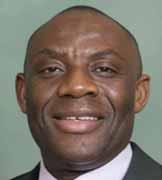
directly into their accounts yet neglect to inform the affected students or record the payments in their financial records, leading to unnecessary confusion.
(CAS), Air Marshal Hasan Abubakar, told troops of the Air Component of Operation Hadin Kai that Nigerians now slept with their two eyes closed because of their sacrifices and vigilance.
Abubakar also stated that the bravery and resilience of the troops in the face of adversity had not gone unnoticed.
The CAS spoke during a morale-boosting visit to the Air Component of Operation Hadin Kai in Maiduguri. He explained, “Your sacrifices are etched in the history of this nation, and in the hearts of millions of Nigerians who sleep safer because of your vigilance.”
A statement by Director of Public Relations and Information, Nigerian Air Force, Air Commodore Ehimen Ejodame, said the air chief's visit, marked by personal interactions with troops, underscored his deep appreciation for their dedication and the vital role airpower played in neutralising threats and protecting communities. Reaffirming the Nigerian Air Force's commitment to maintaining dominance in the battle space, the CAS pledged continued investment in cuttingedge technology to empower frontline units.
He was also briefed by commanders on recent operational gains, showcasing the strategic value of precision air strikes and close air support.
Ejodame said NAF remained steadfast in its mission, guided by leadership, strengthened by unity, and driven by the selfless service of its personnel.
gateway to some northern states, noting that it is very vital to socio-economic activities in the north. According to the governor, the road is a major artery, linking the Federal Capital Territory (FCT) with over 12 states across the North-central, North-west, and North-east geo-political zones. The governor lamented that the road had suffered neglect for several years, claiming lives and hurting economic growth, revealing that the road is the busiest in the north and second busiest in Nigeria, after the Lagos-Ibadan expressway. Sani recalled that while serving as a senator, he pushed for the completion of the rehabilitation of the road by mobilising fellow lawmakers, organising a town hall meeting, and engaging directly with the president.
intervene in the U.S. case, citing privacy over tax and law enforcement records. But the court had now ruled that at least some information must be released.
The case is still unfolding, with broader implications for transparency and international accountability. However, Howell held that the “Glomar responses” issued to FOIA requests must be lifted.
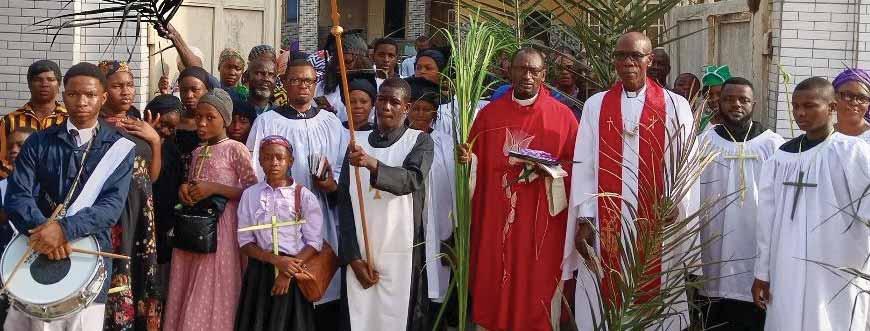
CELEBRATING PALM SUNDAY...
Deji Elumoye in Abuja
President Bola Tinubu has met in Paris, France, with Senior Advisor for Africa from U.S. President Donald J. Trump’s administration, Mr. Massad Boulos, to discuss deepening strategic cooperation between Nigeria and the US. This was made known on Sunday via a statement issued by Special Adviser to the President
on Information and Strategy, Bayo Onanuga.
According to the release, the high-level discussion held last Thursday centered on forging a robust economic and security partnership rooted in mutual respect, prosperity, and regional stability.
Mr. Boulos conveyed President Trump’s “strong interest in deepening direct engagement with
Nigeria,” describing the country as a cornerstone of America’s relationship with Africa.
He said the Trump team seeks to work closely with President Tinubu “to expand American investment in Nigeria and Africa, support energy and infrastructure development, and align trade and job creation efforts.”
The meeting also explored opportunities for actionable support in maintaining peace
and stability across the continent, with particular attention given to the ongoing crisis in the eastern Democratic Republic of Congo (DRC) and security challenges in the Sahel region.
Mr. Boulos acknowledged Nigeria’s “regional and continental leadership,” and expressed support for President Tinubu’s diplomatic efforts to restore stability in conflictprone areas of Africa.
Wale Igbintade
The Nigeria Inter-Bank Settlement System Plc (NIBSS), a key financial infrastructure provider regulated by the Central Bank of Nigeria, has approached the Federal High Court in Lagos to recover the sum of N4,190,101,636 (four billion, one hundred and ninety million, one hundred and one thousand, six hundred and thirty-six Naira) lost through unauthorized withdrawals caused by a system glitch.
In a suit filed before the court, NIBSS named forty-five financial institutions as defendants and is seeking an order mandating the banks to immediately place Post No Debit (PND) restrictions on all accounts identified as beneficiaries of the fraudulent transfers.
According to an affidavit deposed
by Patience Johnson, a litigation officer at Manifield Solicitors, NIBSS is a duly registered entity with the Corporate Affairs Commission and is licensed by the Central Bank of Nigeria to facilitate interbank clearing and settlement of electronic payments.
Johnson disclosed that on September 6, 2024, a glitch occurred in NIBSS’s Instant Payments (NIP) platform, which allowed customers of the listed financial institutions to initiate unauthorized transfers to multiple accounts.
The fraudulent transactions spanned from September 6 to September 9, 2024, and were discovered around 12:30 p.m. on Monday, September 9, during routine end-of-weekend settlement processes. The funds were routed to 176
accounts across the respondent banks. NIBSS estimates its total financial exposure from the incident to be approximately 13,662,138,920 (thirteen billion, six hundred and sixty-two million, one hundred and thirty-eight thousand, nine hundred and twenty Naira).
Following the discovery, NIBSS promptly reached out to the banks involved, requesting them to freeze the affected accounts. However, further investigations in collaboration with regulatory agencies and law enforcement revealed additional unauthorized transfers to a second group of unknown beneficiaries holding accounts within the same banks.
Out of the total sum, N4,190,101,636 was traced to the newly identified set of beneficiaries, while an additional
N8,151,388,207.70 was traced to the initial set.
NIBSS warns that without urgent court intervention, the funds may be permanently lost.
The organisation emphasized that its interests can only be safeguarded through an immediate restriction on the involved accounts, to prevent further dissipation of the funds.
Citing the CBN Circular of September 13, 2018, on the regulation of instant inter-bank electronic funds transfers, NIBSS maintained that it has the authority to block accounts and expects full cooperation from the banks to facilitate the recovery process.
As a result, NIBSS is seeking an order from the court to impose PND restrictions on the relevant accounts pending the final determination of the case.
Gideon Arinze in Enugu
The Central Bank of Nigeria has said that it remains committed to the growth of the Small and Medium Enterprises, (SMEs) sector which remains the engine of economic growth in the country.
Acting Director, Corporate Communications Department at the Central Bank of Nigeria, (CBN), Hakama Ali, made this known yesterday during the CBN’s Special Day at the ongoing 36 Enugu International Trade Fair 2025.
In his address, Ali said that the theme for this year’s fair, "Developing Nigeria Industrial Sector/SMEs for Economic Advancement & Global Recognition" is apt as it addresses the imperative of value addition and the links that would help to support industrial activities, to fully integrate the economy into the global industrial architecture. Ali said that the current management of the bank was committed to correcting identified challenges of the Nigerian economy to stimulate
productivity, especially the Small and Medium Enterprises (SMEs).
He noted that achieving an impactful industrial development for global recognition is premised on a tripod, including robust financial systems fundamentals, foreign, exchange market stability and strong collaboration between the monetary and fiscal authorities.
“The bank's efforts in these directions are already yielding the desired results, this has resulted in significant increase of inflow in foreign direct and portfolio investments and positive trade
balance in recent times,” he said.
He maintained that the improvement reflects the impact of wide-ranging macroeconomic reforms, stronger trade performance, and renewed investor confidence in Nigeria's economy.
“The CBN annually participates in the Enugu fair to raise awareness and sensitize teeming stakeholders on its policies and programmes which are key to driving economic activities, inclusiveness, and attainment of global recognition,” he said.
President Tinubu, in turn, reaffirmed Nigeria’s openness to productive partnerships with the US, emphasizing shared values and outcomes that elevate Africa’s role in global affairs.
“Our commitment is to build alliances based on transparency, opportunity, and mutual respect with a clear focus on results that strengthen Africa’s place in the global economy", the president said.
Kayode Tokede
United Bank for Africa (UBA) Plc has unveiled its vastly improved Point of Sale (POS) Terminal as well as the UBA MONI App to redefine the digital payment landscape and empowering Small and Medium Scale Enterprises across Africa.
The upgraded platforms form part of the bank’s ongoing campaign with the theme: Innovation for Progress: Empowering SMEs, Connecting Communities, Simplifying Banking.
The newly improved PoS, which provides customers efficiency and ease in transacting their businesses, boasts of exciting features designed to boost efficiency, transparency, and trust for merchants; including instant settlement, real-time monitoring, pay-bylink functionality, and a 100% transaction success rate.
With the new service, customers can enjoy flexibility, as the terminals have been equipped to serve businesses of all sizes, providing the speed, reliability and fast-paced services demanded by today’s merchants.
The UBA MONI App, which is designed to further strengthen UBA’s agency banking network, has also been modified with new features including instant settlement, pay-by-transfer options, secret question security, an enhanced inbox, and a redesigned homepage - offering agents and customers an even more intuitive and secure experience.
This is in addition to its core features of instant account
opening with BVN/NIN, real-time transfers, cash deposits and withdrawals, airtime/data payments with agent discounts, and instant POS deployment remain at the heart of the app. Speaking on the modified features of both platforms, UBA’s Group Head, Retail and Digital Banking, Shamsideen Fashola, said that as a forwardthinking financial institution, UBA is always on the look-out for modern ways to improve their services and offerings, to give customers top-notch experiences while conducting their daily businesses.
He said: “At UBA, we are constantly innovating to provide seamless and secure payment solutions for businesses of all sizes. The new UBA PoS and MONI App is designed to empower merchants and agency banking with instant settlements, real-time transaction tracking, and unmatched reliabilityensuring they can focus on growing their businesses with a trusted partner.”
Continuing, he said: “This next-generation PoS is not just a payment device; it’s a powerful tool that helps businesses stay competitive in a fast-paced economy. With UBA’s extensive reach and robust infrastructure, we are bringing convenience and confidence to every transaction.
“With the upgraded MONI App, we are equally equipping our agents, many of whom serve smaller communities, with faster tools, greater transparency, and an enhanced user experience that will help them grow their businesses while serving millions of underserved customers."


L-R: Oladele Adeyole, Country Manager, Beiersdorf Nigeria; Nathalie Gemayel, Regional Medical Manager, Africa & Middle East, Beiersdorf; Prof. Altraide Dandeson, Consultant Dermatologist, UPTH & President, Nigerian Association of Dermatologists; Victor Okafor, Commercial Marketing Manager, Central, East & West Africa (CEWA), Beiersdorf; Dr Ayesha Akinkugbe, Consultant Dermatologist, LUTH & Vice President, Nigerian Association of Dermatologists;
Levasseur, General Manager, CEWA, Beiersdorf; and Prof. Firas Al Niami, award-winning UK dermatologist and laser consultant, at the launch of Beiersdorf’s Eucerin in Ikeja, Lagos, last Friday
Seeks favourable financing terms from EU, others Says Tinubu committed to transforming power sector
The Minister of Power, Chief Adebayo Adelabu, at the weekend disclosed that Nigeria was finalising a $2.3 billion funding arrangement to revamp the country's electricity transmission lines and supply the country with reliable power under the Presidential Power Initiative (PPI), otherwise called the Siemens deal.
The government further called on member states of the European Union (EU) to continue to provide technical and financial support to Nigeria in the power sector, which is critical to the optimal performance of the economy.
Adelabu, who spoke in Abuja when he received the EU Ambassador to Nigeria, Gautier Mignot, also lamented the potential impact of declining international
oil prices on the nation's economy, but stated that despite the challenges, President Bola Tinubu was taking the issue of revamping the power sector very seriously.
However, the minister stated that there had been a lot of improvement in the sector since Tinubu took over the reins of governance in Nigeria, having initiated reforms that are yielding positive results and transforming the sector, a statement by his spokesman, Bolaji Tunji, noted. He noted the investment in the non-grid supply to the rural and semiurban parts of the country, exploring solar energy and hydro power supply, facilitated by the Electricity Act of 2023.
“The second intervention with regard to the transmission is the Presidential Power Initiative (PPI), and you will recognise it better when I say Siemens Project. So we are actually securing
NCDMB’s Ezeobi Unveils
Onyebuchi Ezigbo in Abuja
As stakeholders in the Nigerian oil and gas industry gear up to mark 15 years of the enactment and implementation of the Nigerian Oil and Gas Industry Content Development (NOGICD) Act, a new book that highlights some the epic milestones of the local content policy has just been unveiled to the reading public.
The book titled “Nigeria’s Local Content: A Journey of Strategic Communication and Economic Transformation” and written by a management staff NCDMB, Dr. Obinna Ezeobi, provides a detailed account of how communication initiatives, skillful stakeholders management strategies and effective collaboration among key players in the oil sector played pivotal roles in propagating and advancing Nigeria’s local content policy.
It brought out key efforts in making the local content policy a national agenda, and influencing several countries across the African continent.
Speaking while receiving a copy of the book in his office in Abuja, the Executive Secretary of NCDMB, Engr. Felix Omatsola Ogba commended the author for his efforts in documenting and projecting the local content story.
He particularly lauded the aesthetics and quality of the book, pledging the
Board would procure copies.
The book has 267 pages, split in five parts, each section focusing on different but related themes such as the evolution of oil and gas industry and local content, as well as contemporary issues like impact of oil companies’ divestments and Presidential Directives on local content development.
Written in fast-paced and easy to access vocabulary, the book has been endorsed by notable personalities in the Nigerian and African energy sector, including the pioneer Executive Secretary of NCDMB, Dr. Ernest Nwapa, who penned a riveting foreword for the book.
Another notable endorsement that appeared on the book’s blurb was from the Secretary General of the African Petroleum Producers Organisation (APPO), Dr. Omar Farouk Ibrahim, who recommended the publication to policy makers and local content enthusiasts across the continent and beyond.
Similarly, the Chairman of Oildata Group, and former Chairman of the Petroleum Technology Association of Nigeria (PETAN), Engr. Emeka Ene, lauded the work for chronicling some of the local content success stories, while mentioning how advocacy, and stakeholder management played important roles in Nigeria’s local content journey.
the finance of close to $2.3 billion to ensure that we revamp or transform our transmission segments.
“And the government of Germany has been very instrumental to ensure this works. Siemens is handling lots of the critical transmission projects there. We also have some reputable Chinese firms too, that are doing some distribution projects, based on each company's specialty and track records. That is working well.
“We have almost completed the pilot phase of that project, which involved importation, installation, commissioning, and energisation of 10 power transformers across the country and another set of 10 mobile substations.
“We have installed almost 90 per cent of this and they are working. And that has improved transmission capacity by over 700 megawatts, which is the result
of what we are seeing now in terms of relative stability in the transmission grid,” Adelabu added.
According to him, with an average of 5,000mw to 8,000mw, it's not by accident that the administration recorded two major milestones in the power sector in daily power consumption, with achievement of over 20,000 kilowatt hours and transmission as well as distribution of the highest energy volume of 5,801.63mw.
“We have also transmitted and distributed the highest energy in the volume of 5,801.63, which has broken the previous record, achieved in 2021. And lastly, we have achieved a valuable generation capacity of 6,003 megawatts in Nigeria,” he said.
Adelabu emphasised the need for more assistance from the partners, but stated that there are plenty of areas
of support where they are required, especially financial support “as the evolving economic landscape is not so favourable to us in this part of the world“.
“Just let's look at the recent disruptions of the reciprocal tariffs from the US and a lot of other things that are coming.
And look at the impact on the crude oil international price from $80 down to $64, and still going down further.
“That's a lot of risk on our revenues in Africa, especially in Nigeria, where we rely so much on crude oil for foreign exchange. Over 90 per cent of our foreign revenue is from crude oil. Non-oil exports are still very low here. So you can see the disruptions are causing even to our 2025 annual budgets.
“We have used $75 to one barrel as the benchmark price for the budget. We
have used 2 million barrels per day. And we are still at 1.7 million. You can see that gap, that hole is going to lead to a deficit. The major impact is that a lot of our quite laudable infrastructure transformation projects will be affected.
“There will not be enough money for capital projects. After you have paid salaries, you have paid pensions, you have made statutory reductions, have service debt. In fact, service debt will be a problem. And nobody wants to be insolvent as a sovereign. financing is putting a lot of pressure on us.
“So, I want the Western world to continue to fund us in friendly conditions. Friendly terms that will enable us to want to pay back as soon as we are able to get out of this quagmire. And again, it will help us to de-risk the investments in the power sector.
Emmanuel Addeh in Abuja
The Nigerian Association of Road Transport Owners (NARTO) at the weekend lauded President Bola Tinubu for his recent appointment of a seasoned technocrat, Bayo Ojulari, as the Chief Executive Officer of the Nigerian National Petroleum Company Limited (NNPC). scribing Ojulari and his team of technocrats as a round peg in a round hole, NARTO further called for the sustenance of the functionality of the state-owned oil refineries, noting that it is only then that the business of
the transport owners will be boosted. Tinubu had earlier this month appointed Ojulari as GCEO, Rowland Ewubare as Group Chief Operating Officer; Adedapo Segun as Group Chief Financial Officer; and Olalekan Ogunleye as Executive Vice President Gas, Power & New Energy of the national oil company.
The association also extended the commendation to the other members of the team: Udobong Ntia, who is Executive Vice President, Upstream; Mumuni Dangazau as Executive Vice President, Downstream; Sophia Mbakwe as Executive Vice President,
Business Services; and Adesua Dozie, as Company Secretary and Chief Legal Officer.
In a statement in Abuja, the NARTO National President, Alhaji Yusuf Othman, described Ojulari as a seasoned industry player, capable of sustaining the ‘enviable height’ his predecessor, Malam Mele Kyari steered the state-owned company to.
“With Ojulari's robust wealth of experience in the industry, it is glaring that President Tinubu made a befitting appointment to build on the present positive records of the NNPC.
“Assuming office at the time the
oil and gas industry is contending with different global challenges as low prices, output and infrastructure challenges, we urge the new NNPC management to be steadfast and innovative to weather the storm.
“With the national refineries restarting operations recently, we enjoin NNPC to sustain their functionality because NARTO thrives on product haulage. As we extend a hand of fellowship to the Ojulari led management, NARTO looks forward to the sustenance of its long-standing harmonious working relationship with company,” Othman stated.
Michael Olugbode in Abuja
The Republic of Korea has called for enhanced cultural exchange with Nigeria, emphasizing the importance of cross-fertilization to bolster diplomatic relations and share mutual experiences. Making the call at the weekend in Abuja at the second edition of the Hansik Contest, the Director, Korean Cultural Centre in Nigeria, Kim Changki, said his country is willing to build on the already existing cultural relationship with Nigeria.
On the cooking competition, he said the primary goal is to foster social and cultural interaction between Nigeria and Korea.
He noted that this year's contest was better organized and well attended than the first one held last year, disclosing that this will mark his final event as the director of the Korean Centre, which tenure conclude in May.
He said: “Nigerians have a deep appreciation for Korean Pop and Korean cuisine, and this concert serves as a celebration of culture
through various artistic expressions. The winner of the contest will receive a prize of N1 million along with a trip to Korea.”
The culture and events officer, Yunijin Lee, on her part, emphasized that the contest has received sponsorship from Korean food institutions (KFPI) and is specifically designed to bring the vibrant experiences of Korean culture and cuisine to Nigerians.
She also highlighted that the selection process for the winner was
both thorough and impartial, stating,
“The judging panel consists of Korean individuals, including the ambassador, director, and the embassy chef, who worked alongside a Nigerian chef to ensure fairness in the selection of the winner.”
The contest attracted a diverse group of 40 participants, all eager to showcase their culinary talents and knowledge of Korean cuisine. After a series of intense competitions and eliminations, the field narrowed down to 12 finalists.



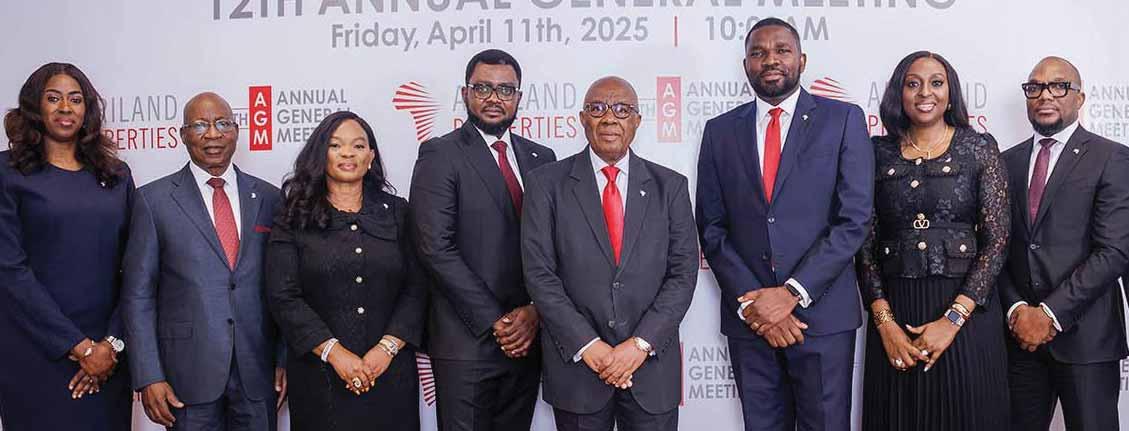
L-R: Olubunmi Akinremi, Independent Non-Executive Director, Afriland Properties Plc; Omomene Obanor, Company Secretary; Ayodeji Adigun, Non-Executive Director; Agatha Obiekwugo, Non-Executive Director; Emmanuel Nnorom, Chairman, Board of Directors; Azubike Emodi, Managing Director/Chief Executive Officer; Owen Omogiafo, Non-Executive Director; Obong Idiong, Non-Executive Director; and Olukayode Odebiyi, Executive Director, at the 12th Annual General Meeting of Afriland Properties Plc held in Lagos over the weekend
Opens window for digital asset market boom To sign a 'Digital R&D' with China Pact with China yields over $30bn
Sunday Ehigiator
Experts and policy makers at the ‘Digital Asset Markets Strategy Masterclass Series’ held over the weekend in Lagos, have opined that the Nigeria’s new Investment and Securities Act (ISA) 2025 recently signed into law by Present Bola Ahmed Tinubu, has placed the country as a major player in the 4th Industrial Revolution, and created a regulatory framework for digital assets market boom which will ‘revolutionise’ its economy, create wealth and lead the pack in blockchain technology.
This is just as the Director-General of the Nigeria-China Strategic Partnership (NCSP), Mr. Joseph Tegbe, revealed that Nigeria has received over $30 billion in investment commitments and 300 expressions of interest from different Chinese companies within the last five months and will soon sign a ‘Digital R&D’ with China to enable a direct conversion of Naira to Chinese Yuan, thereby reducing the
country’s dependency on the Dollar. According to him, “The relationship with China is focused on development rather than trade.
“The overview of our objectives in the Nigerian-China Strategic Partnership is to drive infrastructure development, scale up investments from China, strengthen Nigerian-China trade and economic relations, promote knowledge and economic transparency, and also advance cultural exchanges between the two nations.
“We all know that today, with the evolving trends, the new frontier of the world is the East, led by China.
“If I share some statistics with you, China's Belt and Road Initiative, which was launched in 2013, has seen substantial investments coming from China.
“Total community engagement between China and the rest of the world, between 2013 and today, starts at $1.175 trillion. Construction contracts with the rest of the world, from China, stand at $573 billion.
Cedar Group Hospital, a leading healthcare provider in Nigeria, has reaffirmed its commitment to delivering high-quality medical care at the Association of Nigerian Private Medical Practitioners (ANPMP) bi-monthly meeting recently held in Lagos, while also unveiling its state-of-the-art medical facility.
The event brought together medical practitioners from across the zone to discuss medical knowledge and patient care advancements.
As a dedicated ANPMP member, Cedar Hospital played a key role by inviting esteemed professors to educate attending doctors on critical medical topics.
Among the distinguished speakers were Professor of Neurosurgery, Prof Okezie Kanu, who delivered a lecture on brain injury, and Professor of Cardiothoracic Surgery, Prof Ezekiel Ogunleye, who spoke on bradycardia and the application of C-Arm technology.
In his address, Prof. Kanu provided an in-depth analysis of brain injuries, covering causes, early detection methods, and best treatment practices.
He emphasized the importance of rapid assessment using tools like the Glasgow Coma Scale and explored
innovative approaches to improving emergency care outcomes.
Professor Ogunleye’s lecture focused on bradycardia, examining its causes, diagnosis, and management strategies.
He also highlighted the role of C-Arm technology in cardiology, explaining how it enhances precision in minimally invasive procedures and improves treatment outcomes for heart-related conditions.
The hospital further demonstrated its commitment to medical excellence by showcasing its advanced healthcare capabilities.
The interactive event encouraged valuable knowledge exchange and strengthened professional relationships among medical practitioners. While the primary focus was on continuous medical education, it also provided a platform for collaboration and networking.
In an official statement from the management of Cedar Group Hospital, it noted: “Throughout the sessions, it engaged medical professionals by introducing them to its cutting-edge facilities, including a fully equipped Intensive Care Unit, A state-of-the-art radiology unit including 128 slice CT-Scan and C-Arm technology, while reinforcing the importance of timely patient care.
“Over $300 billion has been invested across key infrastructure projects, like seaports, railways, airports, and power plants across the globe.
These projects are mostly financed by China's State Department, funded by Chinese banks.
“Africa has become the largest recipient of Chinese engagement, overtaking Middle Eastern countries, and this presents an opportunity for Nigeria to be a bigger recipient of Belt and Road Initiatives.
“Digital R&D has become very productive. It's increasing the legitimacy and regulation of digital assets.
“Because when you have a country like China, which is state-backing digital transactions, it means it produces a lot of opportunities for digital assets.
“It also creates competition with all the stablecoins and reduces the dependency on U.S. dollars. Countries that have signed on to Digital R&D today are doing transactions faster than they've ever done before.
“Nigeria is about to sign on to Digital R&D. If we're working on that and agree before the end of the year, we will join that group. What it has also done is that it has transformed the cross-border payments between countries.
“We are currently talking to two commercial banks in China, setting up commercial activities in Nigeria, and working vice versa. If this happens with Digital R&D, it means you don't have to take Naira to Dollar to Yuan. You take Naira straight to Yuan, or
Yuan directly to Naira.
“That's a lot of implications. It lessens the pressure of the U.S. dollar, effectively. It makes businesses faster and swifter for us.
“To date, my office has received over 300 investment expressions of interest in Nigeria from Chinese companies in five months. We have commitments of over $30 billion from Chinese investors.
“Every week, I meet with over 35 to 50 Chinese investors in Nigeria. Several Nigerians have gone to the Canton Fair, which is happening in China this week.
“The Chinese ambassador told me that over 1,000 Nigerians have applied to participate in that Canton Fair, which means China, which is the next frontier, is a close partner in development, investment, and capital markets.”
The Masterclass, organised by the African Enterprise and Entrepreneurship Institute in collaboration with Anabel Capital and the Securities and Exchange Commission (SEC), brought together capital market operators, policymakers, investors, and tech-savvy youths to explore the future of digital assets in Africa.
Speaking at the event, Governor of Lagos State, Babajide Sanwo-Olu, revealed that the state was set to monetise idle assets and raise a green bond to fund infrastructural development within the state.
According to Sanwo-Olu, who was represented by the Commissioner of Finance, Abayomi Oluyomi, “We are
developing a securitisation policy to monetise and liquefy our idle assets.
“These are assets we used to call ‘Idle assets’. Now we want to use them to get liquidity to finance our infrastructure needs. In the next two to three months, we will be coming to the market to securitise some of them.”
He added that Lagos, as a pacesetting state, is set to raise a green bond to fund sustainable infrastructure projects, becoming the first sub-national government in Nigeria to do so.
Highlighting the state’s support for digital innovation, he said: “We are solidly behind the digital asset space and putting all the political will available to ensure its success. Regulatory bodies like the SEC are not here to block progress. They are here to help innovation grow safely by creating clear rules.
“Digital assets are no longer futuristic ideas. They are changing how we trade, invest and build financial systems. Let’s create safe spaces to test new fintech products and teach small businesses how blockchain can improve supply chains.”
Earlier in his address, Global Investment Advisor, and the Masterclass Convener, Dr Nicholas Okoye, noted: “The digital transformation that is driving the fourth industrial revolution has touched every industry and is projected to create monumental fortunes for wealth-conscious investors, institutions, Nations, and sub-nationals.
“In this regard, I believe that the most strategic ecosystem of this
digital transformation has got to be ‘Digital Asset Markets, which includes investment in cryptocurrencies as well as the tokenisation (digitisation) of traditional asset classes.
“The proposed full adoption of ‘Digital Asset Markets’ in Nigeria’s capital markets and subsequently across Africa is going to be a game changer for wealth creation and economic growth sustainability. In addition, it will completely redefine the future of African finance, investment and capital market industries.
“It will provide a golden opportunity for us Africans to create wealth for all our people, regardless of their vocation and regardless of wherever on the planet they may live.
“We expect that these digital asset markets will provide, for the first time in Nigeria and Africa’s history, a rare and unique opportunity for a true measure and a true reflection of Nigeria’s and subsequently Africa’s entire wealth position.
“We are committed to ensuring that our African people will be the owners and operators of this new digital asset markets ecosystem, as our digital assets will be listed as well as traded on the blockchain and they will be tied to underlying physical assets, which will reduce the volatility that is witnessed and prevalent in most other digital markets across the World. This is very powerful and nothing short of revolutionary.”
Onyebuchi Ezigbo in Abuja
To improve the abysmally low awareness about dangers posed by cancer and available remedies, the management of the National Hospital, Abuja, has embarked on sensitization campaign for communities and medical personnel on Colorectal Cancer.
The event which was the 5th Annual Colorectal Cancer in Africa Awareness workshop hosted by National Hospital, Abuja, in conjunction with Asokoro District Hospital attracted delegates globally, bringing together different medical experts that are involved in cancer treatment, management and research.
Addressing participants, the Chief Medical Director of the National Hospital, Abuja, represented by the Deputy Chairman, Medical
Advisory Committee, Training and Research, Dr. Batta Cephas, canvassed more private sector participations in tackling challenges in healthcare service delivery, adding there is the need to have a multi-disciplinary team on cancer management.
Consultant Gastroenterologist at the Asokoro District Hospital Abuja and the Chairman Local Organizing Committee, Dr. Chidi Nnabuchi, urged all participants to seize the opportunity of the presence of the international community to learn and enhance their effectiveness in healthcare delivery services.
A nurse and participant at the conference Ayedebinu Olusola spoke of the need for collaboration provide patients with the best healthcare service.
She said: “if there is rivalry or jealousy, the hospitals cannot attain
the best patient safety outcome, adding the Nigerian government should support a programme like this through funding.".
Earlier, gastroenterologists, Dr. Akwi W. Asombang and Dr. Ganiyat Oyeleke, in separate interviews with THISDAY said that colorectal cancer awareness effort in Africa need collaborative effort of the local communities, surgical society and some other international collaborators.
Ganiyat said: “We noticed the awareness is really low and that the focus of this conference is to sensitize the community, medical experts and bringing together different medical experts that are involved; the GI physicians, the general practice practitioners, the surgeons, the oncologist, the radiologists, the pathologists, the nurses, to let people
come together in a group that we call multidisciplinary team".
On her part, the Chairperson of Concerned Medics Foundation (CMF), Dr. Sadiya Gumi, highlighted the importance of collaboration and a patient-centred approach and disclosed the plan of signing a Memorandum of Understanding with NICRAT, Her words: “There is no single organization that can do it alone. We want to expand awareness and support in ways that complement, not compete with the great work already happening. We can join forces to treat cancer. We previously signed an MOU with National Hospital. “We don’t have all the answers, but what we do have is a commitment to collaborate to learn from others and to keep putting patients first.” she said.
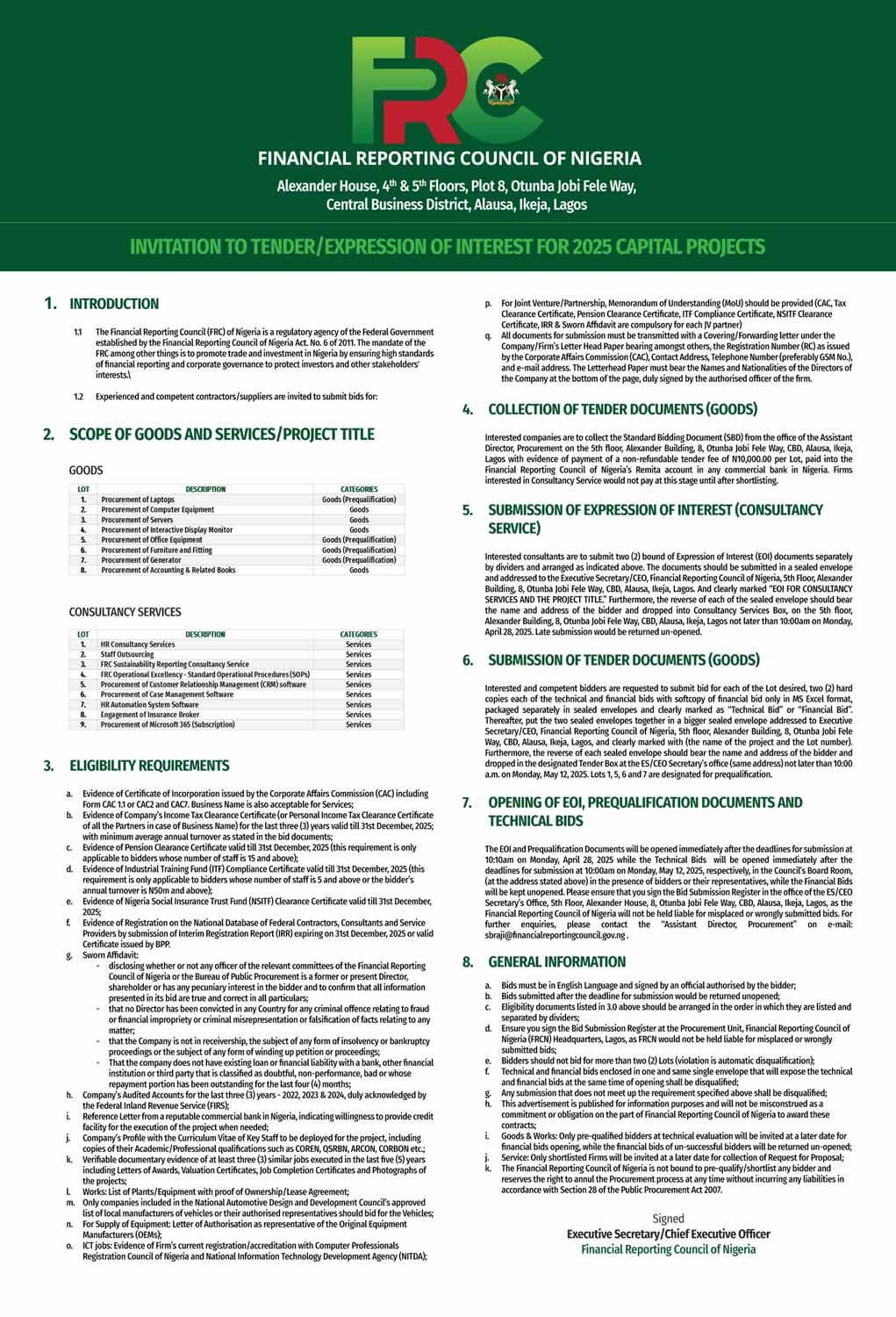
Your partners in property





Chief Emmanuel Chiejina Founder, Ashbard Energy Company Ltd.
All the Partners, Management and Staff of Knight Frank Nigeria heartily felicitate with Chief Emmanuel Chiejina on the celebration of his 75th birthday.
Your professional excellence and visionary leadership have left an indelible mark on Nigeria’s Corporate Governance, Oil & Gas, Financial Services, and Real Estate sectors. Your decades of dedication, integrity, and superior impact continue to inspire many.


We wish you a joyful celebration and many more fulfilling years ahead.
Congratulations on this remarkable milestone.
Signed,


Frank Okosun, FRICS, FNIVS, RSV Senior Partner/CEO


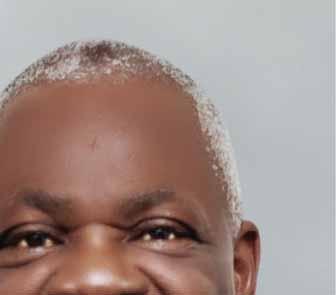
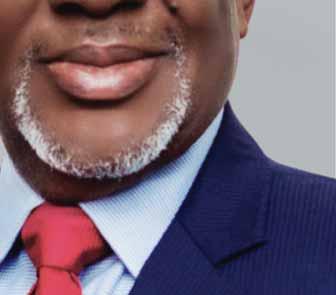






Growing concerns about the place of the opposition in the 2027 elections are valid, but not absolute, writes Olawale
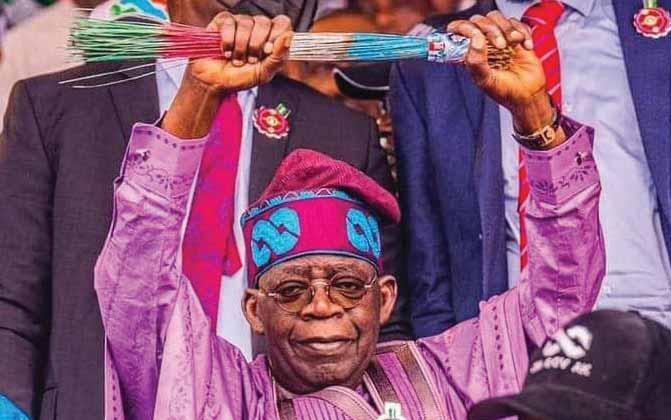
For as many that have concluded that the 2027 presidential run might be a walkover for President Bola Tinubu, there are sufficient grounds to support their fears. It’s not out of cowardice but a position also backed by some shifty facts and realities.
While nothing is cast in stone about the nation’s political theatrics, what is generally seen as depicting evident state capture a few months to the opening up of the next round of election calendar might have given fillip to this mindset.
A seemingly all-powerful president, who has at his whims every key institution of state, including the other arms of government that are meant to serve as checks for balance of power, against all democratic ethos, is not one to be taken for granted.
But is that enough for other stakeholders to walk away from the next presidential election or for the opposition to be written off since head or tail, they do not stand a chance at the poll? Maybe not.
The assumption that the president and the ruling All Progressives Congress (APC) are not keen about a credible electoral process and might likely “write results” is at best a figment of the imagination of an otherwise lazy opposition.
If the workings are right and the opposition is able to get its electoral mathematics correctly, the opposition
The assumption that the president and the ruling All Progressives Congress (APC) are not keen about a credible electoral process and might likely “write results” is at best a figment of the imagination of an otherwise lazy opposition.
would make no new history at the poll but reinforce the fact that elections are all about getting the homework right and the work done.
There are many things the opposition needs to do to demystify the creepy myth about President Tinubu’s alleged invincibility. But they must be done and done right with all sincerity and without letting unbridled ambition stand
in their way.
One of the routes to a successful opposition outing in 2027 is that a northern candidate is not an option because it will not fly. It, however, stems from two approaches, on account of the intrigues that shadowed the 2023 presidential bout.
Take, for instance, in the main opposition Peoples Democratic Party (PDP), the majority of the party’s governors are southerners. Out of the current
A seemingly all-powerful president, who has at his whims every key institution of state, including the other arms of government that are meant to serve as checks for balance of power, against all democratic ethos, is not one to be taken for granted.
PDP 12 states, the south controls seven: Akwa Ibom, Bayelsa, Delta, Enugu, Osun, Oyo, and Rivers. The northern five are Adamawa, Bauchi, Plateau, Taraba, and Zamfara States.
Thus, if after former President Muhammadu Buhari’s eight years in the saddle, and the succession battle was about power returning to the south, there is no way four years of Tinubu would be considered sufficient or having taken care of that void. That is the first leg to this consideration.
The second leg is that if the north shares this sentiment, which suffices from all rational thinking and equitable power distribution in Nigeria’s diverse and multi-ethnic society, then the options before the south are also limited, for the north to play along.
In otherwise, the north would either be pleased with a Tinubu running the two terms of eight years in spite of the challenges of governance and alleged overbearingness, or support the south with the choice of a candidate, who cannot run for more than a term of four years.
The reason for this particular option is that with a party like the PDP going north for a presidential choice after only one term of a southern president could create many more “Nyesom Wike” in the run-up to the exercise, who would not only openly object but do everything humanly possible to
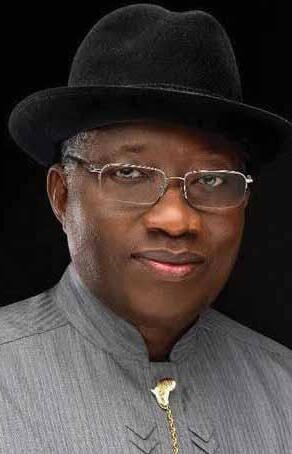
frustrate the party from winning.
For these people, especially the southern governors, this is beyond party affiliation or loyalty to their platform. It is about the place of their region in the political equation of the country vis-à-vis the survival of their respective zones.
Unfortunately, this prickly reality of the current political calculus forbids the thought of an Atiku Abubakar candidacy, either in the PDP or the coalition being proposed as an alternative platform for the 2027 elections.
The former vice-president’s best chances were unarguably between 2015 and 2023. He might have missed the last train, which left station in 2023. This, of course, has nothing to do with his age, but the prevailing materiality as dictated by the nation’s mercurial politics.
Thus, the more desperation the former vice-president exhibits in his quest for power, the more off-putting it is for other stakeholders, the governors especially, to want to trust him with any coalition let alone offering him the joint platform to chase his presidential bid.
Visiting Buhari of all persons – a man who would not lift a finger for himself much less someone else – is definitely not going to yield any result, much as the grounds for the visit was equally self-serving and ostentatious.
Otherwise, how many times did he visit him when he was president or before he was elected president, either for Eid-el-Fitr or Eid-el-Kabir? It’s obviously politics and ineffectively old-fashioned.
If at all a northern card is to be tossed up – just for some weird reasons – it would be from the liberal Middle Belt/ North Central axis, whose candidates could stand astride, with each leg on the northern and the southern podia and appeal to both interests evenhandedly. That would be the only northerner eligible for a presidential run in 2027.
Perhaps a more cursory look at this option suffices. See it this way. If former Senate President, Dr. Abubakar Bukola Saraki, decides to run in 2027, he only has between a Southeast and south-south ally to pick as a suitable choice for running mate.
In other words, the ace is in the south as a region in the next election. Even at that, it would still mean taking a more difficult route to wrest power from a politically shrewd Tinubu.
Against this backdrop, the options are, therefore, between candidates from the Southeast and the South-south, meaning the Southwest cannot be in any serious consideration by the opposition since the incumbent is from the zone already. It is, however, going to be one of the key battleground zones.
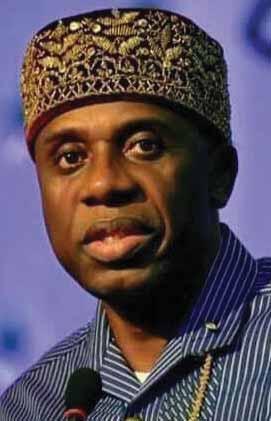
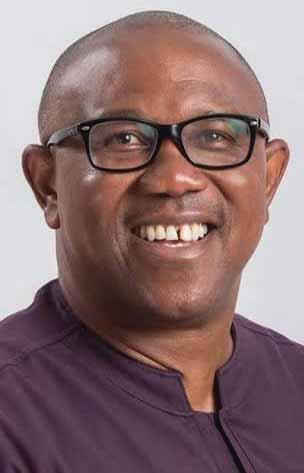
An opposition victory in 2027 is only feasible if the actors get their game right. But there is no shortcut to undoing the Tinubu presidency. It is a tough call. Not with his sprawling mischief and manifest highhandedness.
So, what are the options from these two zones? First is the presidential candidate of the Labour Party (LP) in the 2023 polls and former Anambra State governor, Mr. Peter Obi. Second is a former governor of Rivers State, one of the APC presidential aspirants in 2023, and erstwhile Minister of Transportation, Hon. Rotimi Amaechi.
The third unlikely consideration is the Oyo State Governor, ‘Seyi Makinde, and last but not least, former President Goodluck Jonathan.
With a northerner as running mate, perhaps one from the North West, three of these four could give a good run in 2027 and make Tinubu’s seeming invincibility evaporate in seconds.
Narrowing the four options to three is deliberate because Makinde, coming from the same zone as the incumbent, is already at a disadvantage. With Tinubu’s imposing stature, an average southerner would rather he was stuck with Tinubu and endured the discomfort as Makinde does not seem to have what it could take to route Tinubu in Southwest.
Although his unconfirmed presidential bid is already being discussed in hushed tones across many power centres, just as some of his recent political moves are being interpreted to mean an intending presidential projection, he would be a hard-sell against Tinubu
in this very contest.
Away from Makinde, both Obi and Amaechi, too, might give the north a huge concern. The north does not seem like it could wait another eight years after Tinubu’s first four years (and assuming he lost his re-election), no matter the pain they are currently going through. They would rather they endured his excesses until he was pushed out through the ballot.
This, therefore, makes Jonathan the most eligible, visible, likely choice, and major threat to the Tinubu presidency, because it is going to be a one term presidency, and could secure immense support from the Southeast and Southsouth and above all, the north.
The possibility, also, that some Southwest states, in addition to Osun and Oyo, that are currently being controlled by the PDP, might equally play ball, is quite high.
For a Tinubu presidency that has refused to respect or reckon with his APC governors and leaders in Southwest in nearly all appointments and decisions affecting their states, it would be sheer foolhardy to assume that their support is automatic, especially if they could do their mathematics differently.
Yet, for Jonathan, there is still another obstacle lying prostate in his path. It is the amendment to the law forbidding a president being sworn in three times. This didn’t stop him from running in 2015, though, as he already won the case at the appeal, the matter might be reawakened for the purposes of the 2027 elections.
Besides, with the current state of play, which finds the judiciary fast losing its place as the bastion of justice and the last hope for the common man, nothing is guaranteed if the matter is taken back to court, in the event that
Visiting Buhari of all persons – a man who would not lift a finger for himself much less someone else – is definitely not going to yield any result, much as the grounds for the visit was equally self-serving and ostentatious.
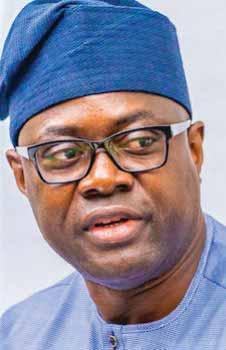
Jonathan caves in to pressure, decides to run and is seen to pose a huge threat to the re-election of the incumbent.
Finally, two more things further stand out in the Jonathan option. His acceptance to run, which is said not to be showing any positive signs at the moment. That is one. The other thing is how the same set of people, who travelled round the country to de-market him would take another trip to say the 2015 adventures were all lies or politics. Whatever that would say of them and their intention is better imagined.
Many of the claims at that time were not entirely false, the truth, however, is that as a brand, Jonathan has moved on progressively from the station the APC train left him in 2015, and has attained visible and impressive global acclaim as a decent leader, whose ideology is pro-people, hinged on peace and development.
He has earned the respect of many world leaders between then and now, with international assignments that have further acquitted him of the many darts slung at him in the name of power, politics, and election.
If the president and his team must know, there was nothing that was used as a campaign against Jonathan in the 2015 election that is not present today, even with higher propensity.
From Boko Haram’s unceasing attacks to the management of the economy, subsidy and corruption across all sectors, among others, Tinubu would have to double his stripes to get a convincing response in terms of support from the north.
Assuming, for example, that the only option open to the government of the day is to “write results”, who are those that will write the results? Are their lives better today? Do they have the privileges of purchasing cheaper goods at the same market than the others? Or is the government going to carve out a different city for them as compensation for a job well done?
The facts, at least, speak for themselves and what is evident in all of these is that President Tinubu is neither invincible nor mystical, particularly with his one-man approach to leadership and amateur foot-soldiers, favoured with curious appointments that appear to be beyond their capacities.
On the flip side, an opposition victory in 2027 is only feasible if the actors get their game right. But there is no shortcut to undoing the Tinubu presidency. It is a tough call. Not with his sprawling mischief and manifest highhandedness. The workings must be patent and the resolve unassailable. Otherwise, someone might as well grab, snatch, and run with it again in 2027.
Senior Special Assistant to the President on Media & Communications (Office of the Vice President), Mr Stanley Nkwocha, in this interview punctures reports about alleged rift in the presidency and also bares his mind on some other national issues, including the antics of the opposition lurking in the premature politics of 2027 to distract President Bola Tinubu from the business of governance. Deji Elumoye brings excerpts.
As the spokesman for the Vice President, you must have seen or read of certain publications especially in the social media concerning him. Are you concerned?
Well, it all depends on the kind of issues you’re talking about. If you say we appear to neglect them, then it is either you have not been following our approach to public commentaries or you’re still trying to fathom our mode of engagement with the public.
It is okay for people to speculate about things they don’t understand or lack knowledge of but as a spokesman in the presidency, there are certain things you cannot be in a hurry to do singlehandedly because if you respond to everything making the rounds in the media, you would be putting the presidency at risk of being misquoted, hence giving sponsors of such fake news an edge to further promulgate their falsehood.
If you know the Vice President very well, you would agree with me that he is not a hostile or confrontational leader.
As a spokesman whose primary duty is to manage, protect and maintain his image, I must do all I can to engage the public in a manner that befits his nature. If you have studied the position of Arthur W. Page, one of the pioneering figures in public relations, you will understand what I’m saying. One thing you should know is that, as a government spokesperson, you must sincerely listen to the public, taking into consideration that in a democracy there must be avenues for people to voice their concerns, dissatisfactions and opinions. In doing so most of the time, you don’t have to appear as if you’re on the defensive. You listen more and talk less if you must give the citizens a sense of belonging and make them feel heard.
More often, I do my best to explain, make clarifications when necessary and present the facts, even when it is obvious that what has been reported or insinuated is outright falsehood or has been misconstrued.
Most times, to such mischievious and malicious expressions we just label them fake news and allow the Vice President to continue his job and not be bothered or distracted. Be that as it may, I have had cause to take people on and address issues directly on some occasions. But in most cases, the decision to confront every issue frontally is not advisable. However, like I said earlier, it depends on the kind of issues and of course individual, groups or nature of issue being raised out there.
In the recent past, there have been unconfirmed reports suggesting a seeming rift in the presidency over claims that the office of the Vice President is being undermined and sidelined. What is the situation in Aso Villa?
I think you answered that question yourself when you referred to them as ‘unconfirmed reports’. It means you are also aware that these are fictitious narratives which all well-meaning Nigerians have continued to ignore. They know very well that these reports fly in the face of Vice President Kashim Shettima’s personal commitment to Nigeria’s economic growth, unity, national stability and the actualization of the Renewed Hope Agenda of the administration of President Bola Tinubu. Which office of the Vice President is being sidelined or undermined here? They are probably talking about those of their associations or groups. They certainly cannot be talking about the Vice President of Nigeria, and the citizens know this. Daily, Nigerians watch, see or read on social media, television screens, read on the pages of newspapers and listen to their radio sets how the Vice President’s office has always been a beehive of activities.
If Vice President Shettima is not holding meetings with government agencies or chairing discussions on the administration’s programme,

initiatives and interventions, he is in the states spearheading and championing these programmes on behalf of his boss, President Tinubu.
This is a Vice President who enjoys his principal’s trust 100 per cent. In the history of Nigeria, it is under this administration that we have seen the President asking his Vice to represent him at major global events where Presidents and Heads of State from countries of the world make key decisions. Last year, President Tinubu mandated Vice President Shettima to represent him at the United Nations General Assembly.
This is just one of the numerous crucial global gatherings the President has found his deputy to be trustworthy and reliable enough to stand in the gap.
Now, is this the kind of presidency anybody would want people to believe there is a rift that has led to the Vice President being sidelined or undermined? Throughout last week, Senator Shettima had almost all his official engagements in the states where he was representing the President in executing government projects and programmes.
He was in Kaduna and Cross River States where he performed the groundbreaking for the construction
of the Special Agro-Industrial Processing Zone (SAPZ), as part of the administration’s drive to transform the agricultural sector and stimulate inclusive economic growth across Nigeria. I think we have reached a stage in a democracy where our politicians, especially those of the opposition extraction, must understand that you don’t necessarily need to sabotage the government of the day by creating bad blood among our leaders in the selfish bid to grab power at all cost.
It is worthy of note to state here that while Vice President Shettima’s allegiance to his boss remains unshaken, the President is not in doubt about his deputy’s unalloyed loyalty and has not lost his trust in him. For the purveyors of marginalization, President Tinubu and his deputy are fully aware of the schemes of the opposition who think they can distract them from delivering democratic dividends to Nigerians.
There are also reports that the North is not happy with the Vice President. The region is reportedly feeling marginalized under this government, with no meaningful projects being executed in the region, and the Vice President who, by virtue of his position, is the supposed leader of the North is not doing anything to protect and push for their interest. How true is this?
Again, you just dispelled this particular claim by saying ‘reportedly’. Let me ask you;
If at all there is anything the presidency is considering regarding the next election, it is how these policies and programmes would impact positively on the lives of the citizens who are the ones to crosscheck properly whether President Tinubu deserves a second term or not. You can agree with me that the administration has done a lot in wriggling the nation out of the economic morass it was hitherto enmeshed in.
what is your observation in respect of this kind of report? Haven’t you noticed how well-intentioned and good-hearted citizens have overlooked these farcical news reports? Nigerians are aware that the unfamiliar and questionable online papers publishing them could easily be induced by the sponsorship of some unscrupulous political elements, and so the best thing to do is to confine such fake news in the garbage can of falsehood.
If you have been following the trend, you will understand why we have deemed it expedient not to lend relevance to thoughtless conclusions by these agents of division.
The recurrent pattern of themes of marginalization of the North and undermining of the Vice President’s office being put on display by the peddlers of these fictitious reports is understandable. We can see the character of their indolence. This divisive rhetoric of marginalisation of the North and undermining of the office of the Vice President is a futile ploy to pitch Senator Shettima against his boss, President Tinubu, as well as to malign the President ahead of the 2027 elections. Unfortunately, the sponsors of this cheap political propaganda are in the shadow of their own goalposts.
The facts clearly contradict these baseless claims. Looking at the leadership of key ministries, we can see significant Northern representation in critical sectors with substantial budgets. For example, the Ministry of Defence has a 2025 budget of N3.1 trillion, the Ministry of Agriculture and Food Security has N2.2 trillion, the Ministry of Health and Social Welfare has N2.4 trillion, and the newly created Ministry of Livestock Development has N12 billion. Other ministries with Northern leadership include the Federal Ministry of Water Resources & Sanitation headed by Hon. Joseph Utsev, the Federal Ministry of Foreign Affairs headed by Hon. Yusuf M. Tuggar, and the Federal Ministry of Humanitarian Affairs and Poverty Reduction headed by Dr. Nentawe Yilwatda. Additionally, numerous important government agencies are headed by Northern officials, including the Nigerian Communications Commission led by Aminu Maida from Katsina, NITDA led by Kashifu Inuwa Abdullahi from Jigawa, NMDPRA led by Engr. Farouk Ahmed from Kebbi, and NEMA led by Zubaida Umar from Kebbi, among many others.
It is also important to note that major development projects like the Sokoto-Badagry Superhighway, which begins in Sokoto and passes through several Northern states, and the Resettlement Scheme for Persons Impacted by Conflict launched in Kaduna State last year, directly benefit Northern communities. The administration has also initiated other significant projects in the North, including the rehabilitation of major dams across Northern states to boost irrigation farming and power generation, expansion of the National Social Investment Programmes with special focus on vulnerable communities in the North-East and North-West, revival of the Lake Chad Basin development initiatives to address both environmental and security challenges, and major investments in agricultural mechanization and processing facilities across the Northern agricultural belt to enhance food security and create employment opportunities.
We all know that this desperate wedgedriving propaganda is so far from accurate and it is laughable. It is being sponsored by the opposition to cause ill feelings between the President and his deputy, and weaken their very cordial working relationship in a desperate attempt to clog the wheels of governance. This, perhaps, explains why no credible media organisation like yours has found such reports newsworthy enough to get even a mention on their platforms.
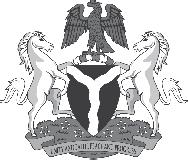



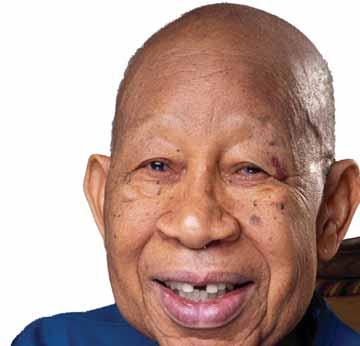
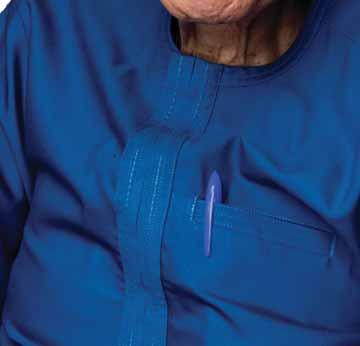



Given the dramatic restoration of Oando Plc from the abyss of failure to the pinnacle of performance, it won’t be out of place to describe the legacy of Wale Tinubu, the architect of the transformation, to include that of a company-restored, a brand reborn, and a future reimagined, writes Festus Akanbi
WGiven the current ascendancy of Oando Plc in the Nigerian oil industry, it is easy to see Wale Tinubu’s journey with the company as a testament to the resilience of vision, the force of audacity, and the healing power of strategic restoration. In an industry often fraught with volatility, where giants have stumbled and empires crumbled, Wale Tinubu has not only kept Oando on the curve; he has sculpted a new one.
This is because apart from a mouth-watering surge in revenue, Oando Plc has continued to be the investors’ first choice as it expands seamlessly in an ambitious effort that has continued reverberating beyond Nigeria’s shores.
Under Wale Tinubu’s watch, Oando has grown its revenue from N134 billion in 2010 to N4.1 trillion in 2024. Also, as of early 2025, Oando Plc’s oil reserves have surpassed one billion barrels. This significant increase is primarily due to the company’s $783 million acquisition of the Nigerian Agip Oil Company (NAOC) in August 2024, which doubled Oando’s stake to 40% and established it as the operator of key upstream assets. These assets include forty discovered oil and gas fields, extensive pipeline infrastructure, and the Brass River Oil Terminal, significantly boosting Oando’s total proved plus probable (2P) reserves to 1.0 billion barrels of oil equivalent (boe).
Certainly, oil industry watchers will not forget in a hurry that when dark clouds gathered and the company stood at the precipice of a crisis and many had thought Oando would fade into corporate obscurity, Tinubu, with the instincts of a seasoned general and the heart of a revivalist, chose not to retreat. Instead, he stepped boldly into the storm—not with trembling hands, but with a map of reinvention etched in his mind and courage burning in his chest.
He wielded bold decisions like a sculptor’s chisel, chipping away the debris of doubt and debt, and uncovering a leaner, smarter, and more agile Oando. He restructured. He realigned. He negotiated with the precision of a tactician and the tenacity of a warrior refusing to surrender his citadel. Under his leadership, the company didn’t merely survive — it was reborn.
Wale Tinubu turned the crisis into a catalyst. The ashes of yesterday’s turmoil became the fertile ground for today’s triumphs. He dared where others dithered, reimagining Oando’s role in a dynamic energy landscape, and placing it firmly back into the conversation of Africa’s oil and gas vanguards.
Now, Oando stands not as a symbol of recovery, but of renaissance — a living monument to a leader who refused to let failure write the final chapter. In Wale Tinubu, we witness a masterclass in staying ahead of the curve, not by luck or chance, but by the sheer force of will, clarity of vision, and an unflinching embrace of audacious action.
Wale Tinubu’s leadership style is characterised by his vision, strategic thinking, and innovative problem-solving. He has built strong subsidiary brands and businesses, specifically starting from the downstream to the midstream and upstream sectors. His ability to navigate complex business environments and make bold decisions has been instrumental in Oando’s success.
Overall, Wale Tinubu’s business leadership has been instrumental in shaping Oando into the successful company it is today.
His transformation of Oando Plc is a remarkable story of vision, strategic thinking, and bold leadership. Today, these qualities have cemented Oando Plc’s position as Africa’s oil giant.
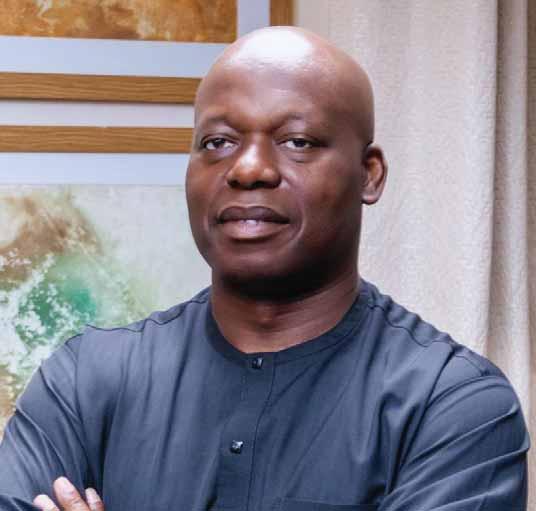
For a company that has been consistent with an improvement in its performance indicators, the rising shareholders’ appetite for Oando Plc’s shares cannot be misplaced. For instance, the company recently announced a strong financial performance for the full year 2024 with N4.1 trillion in revenue, about 45 per cent growth from N2.9 trillion reported in its 2023 results. From this performance, it shows that Oando has had revenue growth from about N134 billion (2010) to N4.1 trillion (2024).
The company also announced N65.5 billion as profit after tax, about 9 per cent growth from N60.28 billion reported in 2023.
Tinubu described 2024 as a year of transformation for Oando, pointing out that the key highlight included the successful acquisition and subsequent integration of NAOC Ltd, which significantly enhanced the company’s production capacity, attaining peak operated production of 103,206 boepd and net entitlements of 45,000 boepd.
“Despite a challenging operating environment, we achieved a 45 per cent increase in revenue to N4.1 trillion, reflecting the strength of our business model, and 9 per cent rise in profit after tax to N65.5 billion, notwithstanding the costs associated with the onboarding of NAOC,” Tinubu had said in a statement.
At the recent World Economic Forum (WEF) 2025 in Davos, Switzerland, Oando highlighted that it currently has over 1 billion in oil reserves, 300,000 barrels a day of oil processing capacity, 2 billion cubic feet a day of gas capacity, with the net present value of the oil in its facilities put at over $10 billion.
The company said that Nigerians have the skills and the capability to secure funding to
thrive in onshore operations.
At the event attended by world leaders, top executives of the 1,000 foremost global companies, leaders of international organisations, and relevant non-governmental organisations, Wale Tinubu underscored the immense prospects of indigenous energy companies taking over the divested assets by International Oil Companies (IOCs) in Nigeria.
“As a company, we have over a billion barrels of reserves, 300,000 barrels a day of oil processing capacity, and over 2 billion cubic feet a day of gas capacity. Effectively, the net present value of the oil we have in our facilities is well over $10 billion,” remarked Wale Tinubu.
Under Wale Tinubu’s watch, Oando Plc announced the completion of the landmark acquisition of a 100 per cent stake in the Nigerian Agip Oil Company from Italian energy firm, Eni, in a deal valued at $783m.
In a corporate notice filed on the Nigerian Exchange Limited, Oando noted the acquisition aligned with its strategy to bolster its upstream operations in the country’s oil and gas industry.
According to the firm, the transaction significantly increases its participating interest in key oil mining leases 60, 61, 62, and 63 from 20 per cent to 40 per cent, effectively doubling its stake in the NEPL/NAOC/OOL Joint Venture.
“We are pleased to announce the successful completion of the acquisition of 100 per cent of the shareholding interest in the Nigerian Agip Oil Company from the Italian energy company, Eni, for a total consideration of US$783m comprised of consideration for the asset and reimbursement.”
The newly acquired assets include 40 oil and gas fields, with 24 currently producing, as well as 1,490 kilometres of pipelines; 12 production
stations; three gas processing plants; the Brass River Oil Terminal; and the Kwale-Okpai power plants, with a combined capacity of 960MW. Oando stated that, as a result of the acquisition, its total reserves had surged by 98 per cent, from 505.6 million barrels of oil equivalent to one billion barrels of oil equivalent, based on 2022 estimates.
“Based on 2022 reserves estimates, Oando’s total reserves stand at 505.6MMboe and the transaction will deliver a 98 per cent increase of 493.6MMboe, bringing the total reserves to 1.0Bnboe,” It stated.
Wale Tinubu described the transaction as a culmination of a decade-long journey that began with the company’s 2014 entry into the Joint Venture through the acquisition of ConocoPhillips’ Nigerian assets.
“This is a major win for Oando and the entire indigenous energy sector. With full control of these assets, we are in a stronger position to drive Nigeria’s upstream growth while ensuring sustainable practices in our host communities,” Tinubu stated.
He added that Oando’s immediate focus would be on maximising the potential of the acquired assets, increasing production, and maintaining a balance between operational efficiency and environmental stewardship.
It would be recalled that Oando Plc, recently completed and won the bid for the operatorship of oil block KON 13 in Angola, a feat seen as major among industry operators.
After acquiring Eni of Italy’s oil assets in Nigeria, the company, undeterred, left the shores of Nigeria, going straight to take over the oil block located in Angola’s onshore Kwanza Basin, following a competitive bidding process by the country’s oil and gas sector regulator.
The asset, through its upstream subsidiary, Oando Energy Resources (OER), has estimated prospective resources of 770 to 1,100 million barrels of oil.
Last year, Oando announced the successful completion of the acquisition of 100% of the shareholding interest in the Nigerian Agip Oil Company (NAOC) from the Italian energy company, Eni, for a total consideration of US$783 million, comprised of consideration for the asset and reimbursement. This acquisition is a significant milestone in Oando’s long-term strategy to expand its upstream operations and strengthen its position in the Nigerian oil and gas sector.
Like a man who has set a definite goal for the company, Tinubu already has a plan for Oando in 2025. He said, “In 2025, our priority shall be to drive cost optimisation, operational efficiency, streamline processes, enhance procurement, and leverage technology to improve productivity across our operations. In parallel, we will intensify efforts to boost production through the dual approach of rig-less and workover initiatives while executing an aggressive drilling program across three rig lines.
Simultaneously, in collaboration with other stakeholders, we are proactively tackling aboveground security challenges by implementing a revamped security framework that integrates advanced surveillance technology and intelligencedriven initiatives to curb the perennial, unnecessary, and unjustifiable theft of oil to ensure the long-term integrity of our vast network.
“As we look ahead to an exciting and successful 2025, we recognise that achieving our goals requires the unwavering support of our host communities and partners. Through extensive engagement, we will foster a collaborative ecosystem that not only secures our operations but also drives shared prosperity and sustainable development for all.”
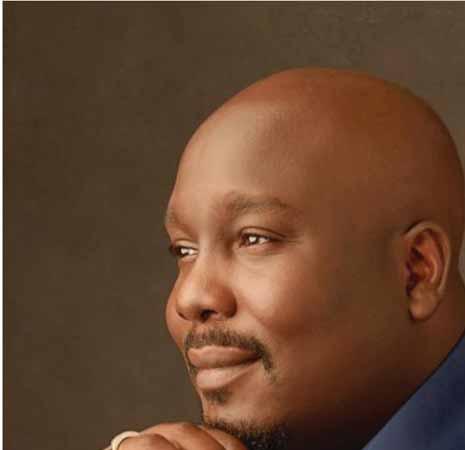
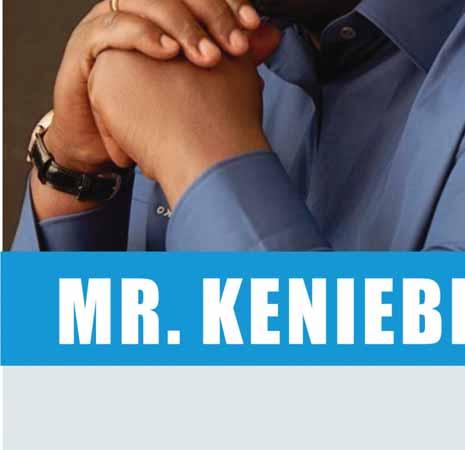

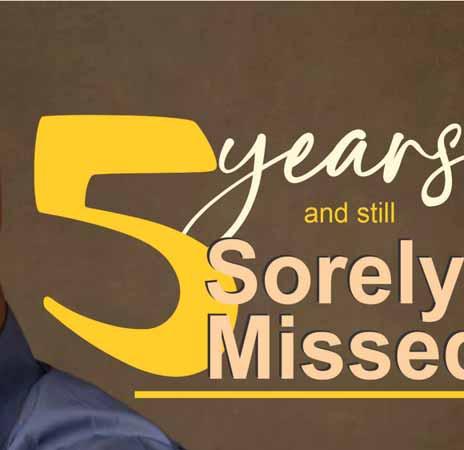
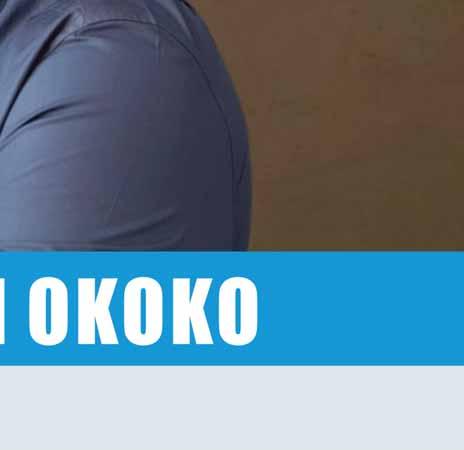
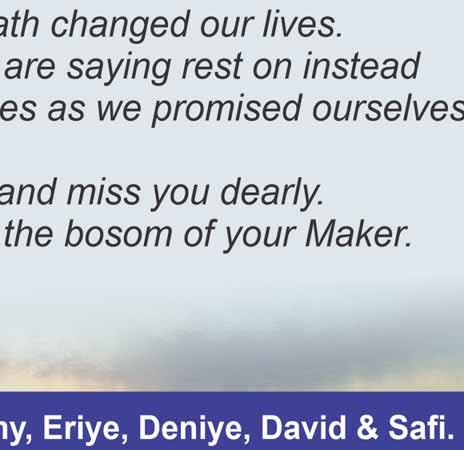

www.thisdaylive.com


opinion@thisdaylive.com
UCHECHI IJEOMA EDOSOMWAN writes how a leadership programme helped shift the training landscape in Nigerian aviation sector

It is a blueprint for employee empowerment, contends LINUS OKORIE
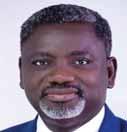


See page 21
OR BANE?
There is the need for leaders to balance economic growth with social responsibility, argues MARCEL MBAMALU
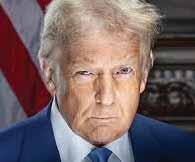
See page 21
CRITICAL ISSUES

The struggle to retain employees is growing. Many workers seek new opportunities due to inadequate raises, fewer promotions, and employers’ investment minimal investment in their growth, despite increasing demands and targets. While companies invest in various resources, they often neglect the team that drives success. As a result, employees leave for better opportunities, and those who stay become disengaged, leading to low productivity and stunted business growth. Traditional corporate structures often treat employees as replaceable assets rather than as future business partners, limiting both individual potential and organizational success.
Research shows disengaged employees cost companies billions in lost productivity.
A Gallup study found that only 32% of employees in the U.S. feel engaged at work, while the rest are either disengaged or actively resentful. This crisis affects not just businesses but the broader economy. When employees lack a clear path to leadership and ownership, they fail to invest fully in their work. What if a proven system existed that empowered individuals, transforming them from workers into business owners?
The Igbo Apprenticeship System (IAS) is a traditional African model that has created some of Nigeria’s most successful entrepreneurs. IAS is a blueprint for true employee empowerment, one that modern businesses can learn from and adapt. IAS (locally known as “Igba Boi”) is a structured business mentorship model in which young apprentices learn directly under an established business owner (the “Oga”). The system is deeply rooted in trust, discipline, and experiential learning, allowing apprentices to gradually take on greater responsibilities. After 5–7 years, the Oga helps the apprentice start their own business, often providing financial support. Unlike conventional corporate structures, IAS fosters a shared vision of growth. The Oga is invested in the apprentice’s success, knowing their own reputation and business legacy depend on it. This accountability ensures that the apprentice is trained to work, lead, and ultimately, own a business.
Modern workplace mentorships often lack depth, reduced to performance appraisals and monthly check-ins. IAS offers immersive learning experience. The Oga takes full responsibility for the apprentice’s development, teaching customer relations, negotiation, and financial management. Apprentices understudy the business, learn its intricacies, and gain from their mentor’s experience.
IAS follows a structured mentorship approach. Apprentices start with minor responsibilities like cleaning or assisting customers, then progress to inventory management and financial transactions.

By the time they “graduate,” they are fully equipped to manage their own enterprise. In contrast, many corporate employees feel like mere cogs in a machine, with no stake in the company’s success.
Trust is central to IAS. Apprentices handle finances, make business decisions, and represent the business. This builds confidence and problem-solving skills. If corporate organizations trusted employees similarly, engagement and investment in company success would increase.
Employers expect employees to take ownership of their roles but often fail to reciprocate with meaningful investment in their growth. In IAS, both parties have a shared interest. The Oga is committed to the apprentice’s success because their business legacy depends on it. Likewise, the apprentice is dedicated to their master’s success, knowing their entrepreneurial future is at stake.
IAS is built on learning by doing. Apprentices engage directly with customers, tackle real business challenges, and learn from both successes and failures. This mirrors what modern businesses need: empowering employees to solve problems rather than just follow instructions.
This structured mentorship ensures that leadership is a deliberate, well-planned journey. The success is evident in the dominance of Igbo entrepreneurs in various industries. From Alaba International Market in Lagos to major trading hubs across Africa, many business moguls started as apprentices. For example: Cosmas Maduka, founder of Coscharis Group, built his multi-billion-naira business empire after years of apprenticeship. Chief Cletus Ibeto, chairman of the Ibeto Group, transitioned from an apprentice to one of Nigeria’s most successful industrialists.
Unlike IAS, some corporate leaders hoard knowledge, fearing employee growth may
surpass their own. This insecurity stifles leadership development and succession planning. Instead of hiring externally, businesses can cultivate in-house talent, reducing hiring costs, strengthening company culture, and ensuring business continuity. Companies that invest in employee empowerment experience higher retention rates and greater innovation.
IAS thrives because it sees apprentices as future business owners, not just cheap labor. Imagine if companies treated employees as future business partners rather than disposable workers. Many employers subscribe to the belief that “soldiers go and come, but the barracks remain,” implying that no individual is indispensable. This mindset must change to elevate workplace culture, increase loyalty, and boost productivity. According to Kelly Services, promoting job mobility within an organization improves retention by allowing employees to advance without leaving the company.
Therefore, to adapt IAS principles to modern businesses, organizations should: · Invest in employees' long-term growth rather than short-term output.
· Encourage an ownership mentality through trust and accountability.
· Create structured mentorship programs where necessary.
· Provide support for career progression. By implementing these strategies, companies can build engaged workforces, just as IAS has done for generations. The question is, are you ready to embrace this approach?
Okorie MFR is a leadership development expert spanning 30 years in the research, teaching and coaching of leadership in Africa and across the world. He is the CEO of the GOTNI Leadership Centre.

UCHECHI IJEOMA EDOSOMWAN writes how a leadership programme helped shift the training landscape in Nigerian aviation sector
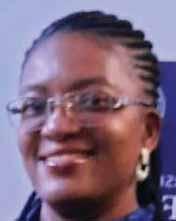







The Nigerian aviation sector has been in the spotlight this past year. Amid some turbulence – such as calls for greater maintenance of aircraft – the recent appointment of Aviation and Aerospace Development Minister Festus Keyamo has led to a wealth of opportunities. New routes and connectivity through recently inked international partnerships, a leap in our compliance ratings that will simplify aircraft leasing and financing, and private sector collaborations to build new maintenance, repair, and overhaul (MRO) facilities. It is an exciting time to be in this industry, especially for those of us passionate about skills development – which I believe is going to be essential to the success of these projects. More aircraft and communication, navigation and surveillance (CNS) systems will require more maintenance and safety checks, which in turn will require more skilled inspectors, engineers, and safety personnel. But how can we accelerate the training of these vital public servants?
In 2021, after more than 20 years in the sector, I came to the realisation that my own skills needed to become more diverse if I wanted to make a positive impact. Being an ardent learner – whose personal objective is to be change agent and enabler – I jumped at the opportunity to join the AIG Public Leaders Programme delivered by the Aig-Imoukhuede Foundation in partnership with the Blavatnik School of Government, University of Oxford. The programme offers public servants the chance to learn new skillsets, develop their leadership capacity, and drive change in the public sector. Even more importantly, alumni are tasked with completing a Capstone Project that will lead to a tangible, positive change in their institutions and directly or indirectly enhance service delivery to the public.
I work in an aviation agency which is a safety, knowledge, and hands-on-driven sector, and I noticed that we could improve efficiency in our training programmes. For example, every Air Traffic Safety Electronics Personnel (ATSEP) is required to be licensed and rated to work on any engineering equipment. The ATSEP is required to undergo a two-weeks On-the-Job Training (OJT) prior to being presented for such ratings, so they can be recognised as technical specialists who provide, install, and maintain the CNS facilities that enhance air traffic management.
My Capstone Project, Standardisation of On-the-Job-Training for ATSEP Communication Ratings, was an intervention for a procedural systematic change where an OJT Manual was developed to further improve the training standard, while monitoring and

effectively benchmarking the performance and achievement of the vision and mission of my directorate. Putting together this 125-page manual was far from easy, requiring a five-person team and the unflinching support of the Director of Safety, Electronics and Engineering Services and his Management team.
Since the manual was approved for use in 2022, all subsequent ATSEP cohorts, in the communication sector in MMIA, have used it during their training period, allowing them to quickly grasp the working principles of the communication facilities. It has improved training such that the supervisors are able to effectively monitor the progress of the training with more precision with the benchmark the manual provided. I was honoured to receive a letter of commendation from the Nigerian Airspace Management Agency for this work of improving ATSEP preparedness for the Nigerian Civil Aviation Authority Rating Examinations in Communication Systems.
The success of this project may have led to my appointment to chair a steering committee in my directorate in 2024; a committee that was given the task of producing a 4-year planner for the engineering directorate as well as recommend projects and strategies to positively impact the directorate’s ability to achieve its goals and objectives.
My training has had a trickle-down effect, and even if just one person has benefited, and is similarly inspired to originate new learning tools or develop their own leadership capabilities, then I can definitively say the AIG Leaders Programme’s thesis is correct. We were taught that informed leaders are the catalysts of positive change, and if there are enough of us, we can help to transform our respective sectors.
In aviation, we could introduce the policies that reduce import duties on tools and spare parts so that budgets can accommodate and provide for more. We could create the strategies to manage obsolescence and minimise downtime – even when we face supply shortfalls. But most importantly, we could change the way we interact with the public, the people who need our services; take on their feedback and implement it to become more compliant and efficient. We could be the cornerstone of Minister Keyamo’s bid to grow the Nigerian aviation sector.
With the right skills development, the right investment in leadership, the sky’s is just the beginning!
Edosomwan is Deputy General Manager & Head, Electronic Communications Department, MMIA, Nigerian Airspace Management Agency, and alumnus of the AIG Public Leaders programme
There is the need for leaders to balance economic growth with social responsibility, argues MARCEL MBAMALU
Donald Trump's proposed economic reforms aim to revitalize the US economy through tax cuts, deregulation, and eliminating wasteful spending. However, concerns arise about the impact on vulnerable populations, including the poor, elderly, and sick. Do these policies genuinely serve those in need or primarily benefit the wealthy and powerful?
These measures are presented as solutions to stimulate growth, create jobs, and reduce inflation. Then, a critical question arises: Do these policies genuinely serve America’s most vulnerable populations (the poor, elderly, and sick), or are they designed to benefit the wealthy and powerful?
These initiatives may appear beneficial on the surface, but their broader implications on income inequality and access to essential services warrant closer scrutiny. This article briefly explores how third-world countries might draw lessons from Trump’s model.
Could such reforms provide a road map for economic development in nations struggling with poverty and systemic inefficiencies? Or do they risk exacerbating inequality and marginalisation?
This global perspective adds depth to the analysis of Trump’s policies and their potential impact on vulnerable citizens.
Trump's economic agenda focuses on deregulation, aiming to cut red tape and stimulate business growth. Another initiative is the "Gold Card" residency programme, offering lifetime residency for $5 million, with an estimated $1 trillion in revenue from 100,000 buyers. However, its success depends on demand and U.S. stability.
Trump’s administration also promises to eliminate $1 trillion in government inefficiencies and implement tax cuts. Individuals earning below $150,000 would pay no taxes, and corporate taxes would drop from 21% to 15%, making the U.S. more competitive than many European countries.
From a global perspective, these policies offer both opportunities and challenges, and on the other hand, these policies could influence how thirdworld countries approach economic reform.
Do These Reforms Truly Protect the Weak?
Trump's rhetoric links economic efficiency to protecting vulnerable populations, suggesting that eliminating waste helps those in need. Is it possible that tax cuts for corporations and highincome earners will “trickle down” to low-income households, potentially widening income inequality?
Proposed spending cuts target programmes like Medicaid, Social Security, and food assistance, threatening essential support for millions.
Trump's tariffs on imported goods also pose a challenge. While intended to protect domestic industries, tariffs raise prices on essentials like cars, electronics, and clothing, burdening low-income families. This creates a contradiction between cutting taxes and raising tariffs, which may cancel out benefits for ordinary Americans.
The question remains whether these policies truly protect the weak or exacerbate their struggles. As such, the effectiveness of Trump's reforms in safeguarding the most vulnerable citizens remains a subject of debate.
European countries use tariffs strategically to protect domestic industries while maintaining economic equity. For example, the European Union imposes a 10% tariff on U.S. cars, compared to the U.S.’s 2.5% tariff on European cars. This disparity supports Trump’s claim of unfair trade practices but also reflects Europe’s broader approach to balancing protectionism with social equity.
While these tariffs shield European manufacturers, compensatory policies often mitigate their impact on low-income households, ensuring that vulnerable populations are not disproportionately burdened by higher costs.
Recent developments highlight Europe’s nuanced use of tariffs. In response to Chinese electric vehicle (EV) imports, the EU announced new tariffs of up to 38.1%, significantly higher than the existing 10%.
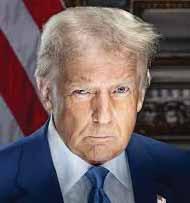
Therefore, Trump’s arguments about trade imbalances carry weight, but European tariffs are often paired with policies that support social welfare systems funded by higher taxes.
Mohamed Adany, in a recent social media post, articulated a vision of governance focused on efficiency and support for vulnerable populations. In his support for Trump, he stated:
"When you eliminate waste, the money can go where it is needed: to the elderly, to the sick, to the people who cannot work. That is the real purpose of government: to protect the weak."
Adany's remarks underscore the belief that streamlined governance can free up resources to bolster social support systems. He further questioned the commitment of global leaders to such reforms, asking:
"Do you have leaders in your country pushing for real reform? Or are they talking about nonrelevant side topics?"
These questions are particularly pertinent for developing nations facing economic challenges, with major economies like the United States potentially reducing foreign aid.
Adany's insights serve as a call to action for leaders in developing nations to prioritise meaningful reforms that address core economic and social issues, ensuring that governance structures are both efficient and responsive to the needs of their most vulnerable citizens.
What Can Third World Countries Learn?
As the U.S. reduces foreign aid, developing nations must adapt by improving tariffs on imported goods, reducing domestic tax collection and eliminating internal waste. This involves enhancing tax systems to reduce evasion and implementing robust auditing mechanisms to ensure resources are used efficiently. Attracting ethical investment through smarter regulation is also crucial, as it can foster local economic growth while aligning with national development goals.
Leaders should focus on public spending effectiveness, ensuring that funds are allocated to essential services like healthcare and education. While Trump-style reforms may not be fully applicable, the principles of efficiency and accountability are universally beneficial. By adopting these strategies, developing nations can build more resilient economies that are better equipped to address their unique challenges.
Mohamed Adany's insightful quote underscores the universal challenge for governments: to use public funds wisely to support those in need. His words challenge leaders worldwide to prioritise meaningful reforms over rhetoric.
Dr Mbamalu, a Jefferson Journalism Fellow, member of the Nigerian Guild of Editors and Communications Consultant, is the Publisher of

Editor, Editorial Page PETER ISHAKA
Email peter.ishaka@thisdaylive.com
Health insurance is the most efficient and sustainable means of ensuring access to healthcare A

T H I S D AY
EDITOR SHAKA MOMODU
DEPUTY EDITOR WALE OLALEYE
MANAGING DIRECTOR ENIOLA BELLO
DEPUTY MANAGING DIRECTOR ISRAEL IWEGBU
CHAIRMAN EDITORIAL BOARD OLUSEGUN ADENIYI
EDITOR NATION’S CAPITAL IYOBOSA UWUGIAREN THE OMBUDSMAN KAYODE KOMOLAFE

EDITOR-IN-CHIEF/CHAIRMAN NDUKA OBAIGBENA
GROUP EXECUTIVE DIRECTORS ENIOLA BELLO, KAYODE KOMOLAFE, ISRAEL IWEGBU
DIVISIONAL DIRECTORS SHAKA MOMODU, PETER IWEGBU, ANTHONY OGEDENGBE
DEPUTY DIVISIONAL DIRECTOR OJOGUN VICTOR DANBOYI
SNR. ASSOCIATE DIRECTOR ERIC OJEH
ASSOCIATE DIRECTOR PATRICK EIMIUHI
CONTROLLERS ABIMBOLA TAIWO, UCHENNA DIBIAGWU, NDUKA MOSERI
DIRECTOR, PRINTING PRODUCTION CHUKS ONWUDINJO
TO SEND EMAIL: first name.surname@thisdaylive.com
Letters in response to specific publications in THISDAY should be brief (150-300 words) and straight to the point. Interested readers may send such letters along with their contact details to opinion@thisdaylive.com. We also welcome comments and opinions on topical local, national and international issues provided they are well-written and should also not be longer than (750- 1000 words). They should be sent to opinion@thisdaylive. com along with photograph, email address and phone numbers of the writer.
A house does not make a home. It takes more than a building to make a home. But without a building, there can be no home and when a person is without a building where they can make their home, that person is said to be homeless. Homelessness goes to the heart of poverty. When a person does not eat constantly or has a few clothes, it is easier to get person’s head, and they have to live life on the streets, exposed to the elements day and night.
For what is does and represents, homelessness is simply one of the most heartbreaking situations anyone can encounprogram stemming and streaming out of proper planning is one which enlists for homelessness. When a country fails to plan for its growth, especially preparing for how growth will mean demands for more houses, it simply prepares its citizens for the streets.
With the rainy season gradually setting in, the rain, wind, cold and living things the season shakes out of their abode will abundantly remind the homeless that they lack one of
life’s basics. They will be reminded in stark, watery language that they belong to the precipice of Nigeria where life is unpredictable and uncharitable.
With the impending rains set to expose families to the elements, the homeless will feel the pinch and rue the citizenship of a country that has left them to be pounded by the rains.
In Nigeria, drawing from global indicators, the markers of poverty are many. Put simply, they manifest more in chronic lack of the basics of life, which are food, clothing, and shelter. About a hundred million Nigerians who live below the international poverty line lack these basics in addition to coming what it really means to be poor.
Why are many Nigerians still homeless or living in houses
housing despite the government’s many promises to tackle Nigeria’s housing crisis has been around for a while. It is
a much an infrastructure crisis as it is a social and human crisis. Any solutions must be integrated and tailored towards achieving maximum results, which would include taking
problems that homelessness breeds. To tackle the problem of chronic homelessness, the government should take the lead while seeking active collaboration with the private sector and philanthropists.
This is an urgent task because the fewer the homeless people it has, the faster it can move towards a crime-free, clean society where people live with dignity.
ing for those who are homeless already and those who are in danger of becoming homeless.
Tackling homelessness is a matter of justice. It deserves all the attention necessary.
Kene Obiezu, keneobiezu@gmail.com
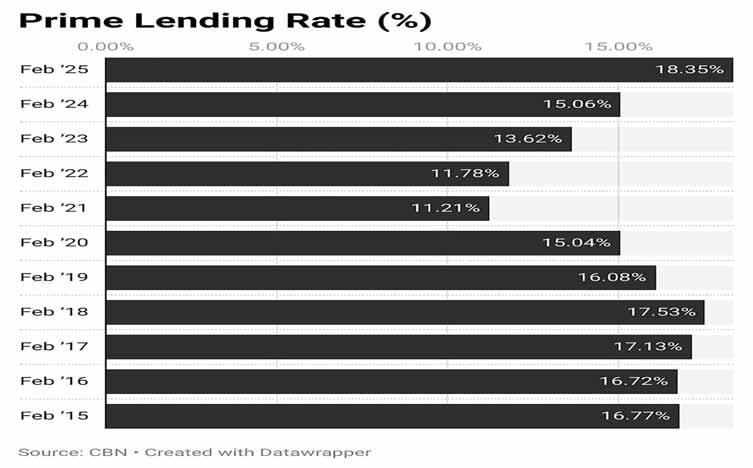
Kayode Tokede
Despite the Monetary Policy Committee (MPC) of Central Bank of Nigeria (CBN) retaining interest rate at 27.50 per cent, maximum lending rate in Nigeria’s banking sector increased to 30.50 per cent in February 2025 from 29.79 per cent in January 2025.
Maximum lending rate represents the average of the highest lending rates charged by deposit money banks in Nigeria and it is influenced by the CBN’s monetary policy adjustments aimed at controlling inflation and stabilising the local currency.
According to CBN statistics, maximum lending when compared to February 2024 was 26.55 per cent as it has gained
395basis points in one year.
Maximum lending rate at 30.50 per cent as of February 2025, signifies high cost of borrowing from financial institutions by bank customers.
The CBN since November 2024 retained its Monetary Policy Rate (MPR) or interest rate at 27.50 per cent from 27.25 per cent.
In December 2024, the maximum lending rate was 29.71 per cent, when the MPC voted to retain the MPR at 27.50 per cent
The steep increase in the MPR rate has sparked concerns regarding the potential impact on the cost of credit for businesses already facing economic hardships.
According to CBN data, the average maximum lending rate rose to 29.79 per cent in
January 2025 from 29.71 per cent in December 2024 when MP members of CBN voted to retain MPR to 27.50 per cent.
Early in 2024, the money market indicators of CBN showed a 27.07 per cent average maximum lending rate in January 2024 when MPR was at 18.75 per cent, while in March 2024, it closed at 29.38 per cent as MPR stood at 24.75 per cent in March 2024.
When the MPR increased from 26.75 per cent in August 2024 to 27.25 per cent, the average maximum lending rate also rose from 29.93 per cent in August 2024 to 30.21 per cent in September 2024.
The banking sector lending rate in Nigeria averaged 14.17 per cent from 1961 until 2024, reaching an all-time high of 37.80 per cent in
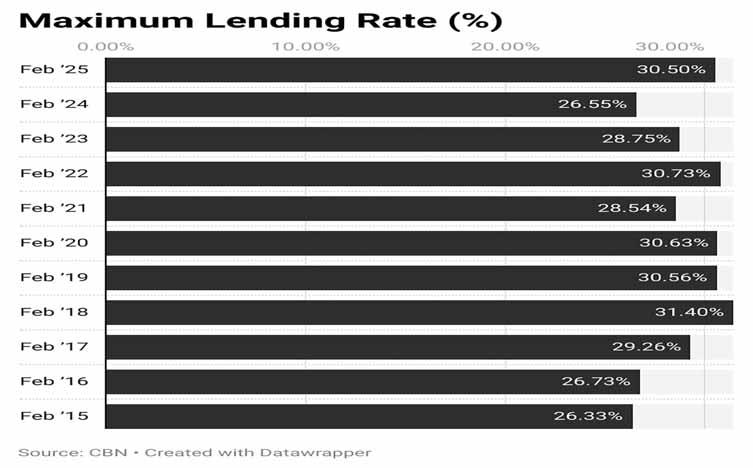
September of 1993 and a record low of 6 per cent in April of 1975.
In 2020, the average maximum lending rate reached a peak of 30.73 per cent when the MPR rate stood at 13.5 per cent
The CBN statistics revealed that the average prime lending rate dropped to 18.36 per cent in February 2025 from 18.49 per cent in January 2025.
The prime lending rate indicates the possible rate offered to the most creditworthy customers by Nigerian banks.
As gathered by THSIDAY, Nigeria’s average prime lending rate reached an all-time high of 19.66 per cent in November 2009 and a record low of 11.13per cent in March 2021.
The steady increase in MPR
reflected in the average prime lending rate last year as the CBN intensified its effort to tackle inflation rate and stabilise the local currency at the foreign exchange market.
However, analysts have predicted a further increase in the average maximum lending rate amid an unstable foreign exchange market and double-digit inflation rate.
The unanticipated rise in MPR in 2024 impacted the banking sector lending rate as the CBN sustained pressure in tackling inflationary pressure.
This unprecedented move has not only set the MPR at its highest level to date but also reflects the CBN’s determined effort to address the persistent pressure on foreign exchange and inflation.
Commenting, the Vice President
of Highcap Securities, Mr. David Adnori explained that commercial banks review their lending rates regularly, subject to their respective cost of funds and the direction of MPR, not necessarily using MPR as a distinct value. He stated that the MPR gives them the direction of interest rates in the market and the price they will pay if they have to borrow from or lend to CBN.
On his part, Investment Banker & Stockbroker, Mr. Tajudeen Olayinka said that banks review their lending rates on a regular basis, subject to their respective cost of funds and the direction of MPR, not necessarily using MPR as a distinct value.
Despite massive investor education and the use of technology in the capital market, about 13 listed companies on the Nigerian Exchange Limited (NGX), reported a sum of N68.7 billion outstanding unclaimed dividend in the 2024 financial year, about 7.7 per cent increase over N63.8 billion declared in 2023. At his first Capital Market Committee (CMC) meeting in Lagos, upon assumption of office, the Director General, Securities and Exchange Commission (SEC), Dr. Emomotimi Agama disclosed that the total unclaimed dividend in the Nigeria’s capital market stood at N215 billion as of March 2024.
THISDAY analysis of the companies’ audited result and
accounts for the period ended December 31, 2024 revealed that Zenith Bank Plc, followed by Nestle Nigeria have the highest amount of unclaimed dividend.
Zenith Bank’s unclaimed dividend stood at N30.6billion, representing an increase of 1.6 per cent from N30.12 billion reported in 2023., while Nestle Nigeria announced N8.97billion unclaimed dividend in 2024 a decline of 6.1 per cent from N9.6billion in reported in 2023.
Further analysis showed that while Stanbic IBTC Holding declared N8.41 billion unclaimed dividend in 2024 from N5.98billion in 2023, FCMB Group Plc reported N1.6 billion unclaimed dividend in 2024, a decline of 24 per cent from N2.1 billion in 2023, Stanbic Notable companies with
unclaimed dividend in 2024FY include: Dangote Cement Plc with N5.2 billion in 2024, about 11 per cent increase over N4.7 billion in 2023, Lafarge Africa Plc N2.95 billion, up by 42.3 per cent from N2.07 billion posted in 2023.
NB Plc that has not paid dividend for the second consecutive year announced N6.9 billion unclaimed dividend in 2024, up by 25.5 per cent from N5.5 billion in 2023.
On its part, Transcorp Incorporated declared N2.07 billion unclaimed dividend in 2024, representing an increase of 20 per cent from N1.73 billion in 2023, while Transcorp Hotel Plc declared N328.36million unclaimed dividend in 2024, a growth of 55 per cent from N211.96million in 2023.
Others are: Dangote Sugar Refinery with N39.54million; BUA Cement, N714.15mllion; NASCON, N635.9million; MTN Nigeria Communication announced N287.7million unclaimed dividend in 2024.
MTN Nigeria Communication in its 2024FY result and accounts stated that, “In line with SEC guidelines, Coronation Registrars Limited returned to the Group the sum of N287.7 million unclaimed dividend during the year ended 31 December 2024 (31 December 2023: N381.5 million).
“Replenishment notices from registrars amounting to N525.9 million were received and honoured during the period (2023: N657.5 million). The total amount of unclaimed dividends outstanding as at 31 December 2024 is N612.5
billion (31 December 2023: N1.38 billion).
According to capital market stakeholders, as these companies declared dividend payout in audited results for period ended December 31, 2024, unclaimed dividend in the Nigerian capital market is expected to soar in 2025.
They maintained that unclaimed dividends reported by these companies are accumulated amounts mostly constituted before SEC introduced Electronic-Mandate initiatives, targeted at tackling unclaimed dividend menace in the Nigerian capital market.
Over the years, the capital market regulating body has endeavored to curb the escalating issue of unclaimed dividends in the capital market, albeit with limited success as the amount continues to rise annually.
The former Director-General, SEC, Mr. Lamido Yuguda had announced that the commission this year successfully launched a new e-Dividend Mandate Management System (eDMMS), making it easier for investors to mandate their accounts for electronic dividends. The link to the portal can be found on
same. We are working with technology and that will deal with the issue about the increase.”
From the outset, Wema Bank Plc has been purposeful with the appointment of its Chief Executive Officers. This purposeful plan has entrenched its leadership position as each CEO follows with passion the bank’s vision and mission. Oluchi Chibuzor writes

Any business organisation needs leaders in management to help guide its growth trajectory. Leaders, not managers provide direction and vision, earn respect, motivate and inspire others, and help create an environment favourable to success by promoting communication and collaboration among team members. Scholars say leadership and strong management are essential for any organisation, especially the financial sector that wants to achieve its objectives and goals. These researchers say that an effective leader organises people, aligns and motivates them, promoting an environment where empowerment is key to quickly adapt to changes.
Effective leadership has been the hallmark of Wema Bank’s growth in the last 80 years of its existence. This path has contributed vastly to its gradual and consistent expansion within the period. While some organisations may harp on managers to achieve their set goals, Wema Bank since its Agbonmagbe Bank Ltd days, has a vision to mentor and retain leaders to deliver on its mission of “Empowering lives through innovation, continuously offering better products and services that give people greater control over their financial lives and paths.”
In order to work the talk, Wema Bank, about three years ago, set up a Leadership Development School as part of its Purple Academy, to help in the growth, development and transformation of its workforce. The school seeks to fuel current leadership, build resilience, drive succession planning with a high-performance pipeline and groom the next generation of leaders, not just for the bank, but also for the country. The management had said that the financial institution had a huge task to optimise performance and deliver value in contemporary times, pointing out that leadership was key in driving organisational success. The management believed that the school would be vital towards the transformation and imparting the necessary set of skills to the bank’s workforce. The management also agreed that it needed good leaders to blend the various skills of the employees for the advancement of an organisation, its business success and prepare them for leadership roles in the future. From its birth on May 2, 1945 in Lagos by late Chief Mathew Adekoya Okupe as a private limited liability company with branches in Ebute-Metta (Lagos), Sagamu, Abeokuta, and Ijebu-Igbo (Ogun) and operated as a regional bank to the current Managing Director, Mr. Moruf Oseni, Wema Bank has had 14 Chief Executive Officers, including those in acting capacities who have played key, positive and seamless roles in moving the bank and retaining it as a leader in the financial sector in Nigeria and beyond today. Each CEO recognised the value of strong leadership skills in the bank and incorporated leadership development into programmes of the bank in alignment with its vision of, “becoming the dominant digital platform in Africa, delivering seamless financial services and positioning itself as a leader in the African financial services market through digital innovation.”
THE BEGINNING
The first CEO and founder of Wema Bank was late Chief Mathew Adekoya Okupe who after several years of operating as a government certified money lender and because of increasing pressures from clients to expand
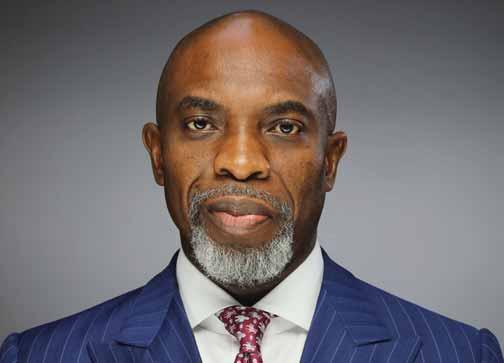
the reach and scope of the flourishing business, obtained a banking licence under the name of Agbonmagbe Bank on May 2, 1945. It was the first indigenous Bank in Nigeria and grew to about seven branches, located in Ebute Metta, Mushin, Ifo, Sagamu, Ago-iwoye, Ijebu-igbo and Zaria in Kaduna State. At birth, most of its customers were high net worth traders and forwarding agents of food and animals between the north and Lagos, Kolanuts traders, timber merchants and exporters.
Okupe positioned the bank as a leader in Nigeria and a model for others to follow. Due to its fast expansion, the bank became Wema Bank in 1969 through acquisition by Wema Board and in 1987, the bank later transformed to Wema Bank Plc as it is known till date. Okupe died on November 1, 1984 at the age of 86 years.
Mr. T.A Onigbanjo, was the second CEO of the bank, having emerged as its General Manager in 1971 and was at the helm of affairs till 1973. Onigbabnjo’s two years as the CEO of the bank was very eventful and impactful. He followed the footsteps of Okupe to put the bank on a strong footing. Mr. Abdulrahman Oyekanmi Adeleke, succeeded Onigbanjo in 1973 and was in charge of the bank’s management till 1974. Despite leading the bank for just one year, the impact of Oyekanmi in the development of the bank cannot not be underestimated in the annals of Wema Bank.
Besides, Mr. Y.A Akande, led the bank for seven years - 1974- 1981. His longevity at the helm of affairs, afforded him the opportunity to implement most of his policies for the bank, further stabilise it and lay strong footing for its present state. Apart from being the CEO, he was also a leader. Just like Akande, Mr. Samuel Adegbite who was the Managing Director of Wema Bank between 1984 to 1998, about 14 years, played a vital role in stabilising the bank. He remained the longest serving CEO of Wema Bank till date. He died at a Lagos hospital in March 2013 at the age of 73. Adegbite was born in Ibadan on January 3, 1940. Until his death in 2013, he was the chairman of multiple organisations and played active roles during the time. Alhaji Adewale Dosunmu, succeeded Adegbite and led the bank from 1999 to 2000. In spite of his brief spell in the saddle, Dosunmu did not deviate from the vision and mission of the bank.
Dosunmu died on Saturday, December 9, 2000 after a brief illness, at his residence in Gbagada, Lagos a few months after retiring as the CEO of the bank. Dosunmu was succeeded by Mr. Tunde Lemo. Lemo was the CEO of Wema Bank for three years – 2000 – 2003.
At Wema Bank, Lemo demonstrated his strategic leadership skills and put the oldest indigenous bank on the pedestal of growth. Lemo later went on to join the Central Bank of Nigeria (CBN) where he held a notable tenure as Deputy Governor, Operations Directorate; Financial Systems Surveillance at the apex bank. He played a crucial role in shaping the country’s financial stability and regulatory frameworks while at the CBN. He was groomed for the task ahead at Wema Bank. He is a Fellow of the Society for Corporate Governance Nigeria, Fellow of the institute of Chartered Accountant of Nigeria as well as Fellow of the Chartered Institute of Bankers. In 2011, Dr. Tunde Lemo was awarded
with the prestigious National honour of the Officer of the Federal Republic (OFR). Mr. Alade Adeleke, was appointed the Managing Director of Wema Bank in 2003, first in acting capacity and later as a substantive CEO. Adeleke held sway for two years and retired in 2005. Adeleke was succeeded by Mr. Adebisi Omoyeni between 2005 to 2008. Omoyeni was a product of pragmatic leadership at Wema Bank. He joined the bank in 1987 as the Head, Insurance and Pensions Department and spent 21 years of his career in the bank after his National Youth Service in the Nigerian National Petroleum Corporation (NNPC). He grew through the rank to be appointed its CEO in 2005. Within the 21 years period, he was elected the Deputy Governor of Ekiti State with Gov. Ayodele Fayose. He left the deputy governorship position to rejoin the bank and ensured its recapitalisation.
Mr. John Aboh, took over from Omoyeni in acting capacity between 2008 and 2009, and he made a mark during this period. Another CEO that took over the leadership of the bank in acting capacity was Mr. Mohammed Lai Alabi between 2008 and 2009. Alabi graduated with a First-Class Honors degree in Economics from University of Lagos in 1975 and a Masters degree in Economics from Yale University, USA in 1979. In September 2008, he was appointed Acting Managing Director and Chief Executive of Wema Bank Plc by the CBN. Besides, Mr. Olusegun Oloketuyi was appointed the Managing Director of Wema Bank in June 2009 to 2018, nine years period.
The board of directors gave him a task of returning the bank to profitability following the 2008 banking crisis which saw the collapse of many banks. It was one of the most difficult times of the economy, but he succeeded. Under his leadership, the fortune of the bank was completely turned around, leading to the recapitalisation of the bank and its return to profitability. As part of a turnaround plan, which Oloketuyi led, the bank also regained its national banking license from the CBN, which has allowed it to expand to the Northern and Eastern parts of the country, significantly increasing its market share and customer base in the process. Besides, he prioritised the use of technology to deliver improved service to customers, culminating into the launch of ALAT, which offers branchless banking services. The nine years period of Oloketuyi as the CEO of Wema Bank was exciting with numerous digital innovations, and retained the bank on the path of profit-making just like his predecessors and continuous positive public image and acceptance.
Oloketuyi was succeeded by Ademola Adebise on July 1, 2018, who until then was the Deputy Managing Director of Wema Bank. Adebise had been part of the bank’s executive management team since 2009 and played a pivotal role in the execution of the strategic turnaround plan of the bank.
Before his appointment, he had worked in various capacities in Information Technology, Financial Control & Strategic Planning, Treasury, Corporate Banking, Risk Management and Performance Management of Wema Bank. Under his leadership, he expanded the bank’s footprints to other locations in Nigeria, he improved the performance of the
bank and spearheaded the first dividend payment in 13 years. He also ensured consistent dividend payment in the next four years. Also, as a team player with leadership acumen, Adebise, grew the bank’s Total Assets by 155 per cent, from N470 billion to over N1.2trillion. Deposits also grew by 214 per cent from N350 billion to N1.1 trillion. He initiated the partnership with Bank of Africa to support its customers across the African continent, which increased the bank’s market share and customer base. He positioned the bank as a leading collection bank for state and government agencies due to its effective and efficient platform. The bank’s rating by agencies was upgraded to BBB investment grades under his tenure. Also, the bank significantly changed the digital landscape through the ALAT platform. The innovative platform also came tops in the KPMG Digital Scorecard for leading retail banks in Nigeria and this was based on in-depth insights into the state of user experience on retail banks’ digital channels. Under him, the bank launched the first SME Business School for capacity building and empowerment of SMEs, which benefited over over 20,000 small businesses at the time. The Bank also became one of the founding members of the United Nations Environmental plan for financial institutions (UNEP- FI) and continues to provide digital solutions for societal impact.
After five years of productive service as the CEO of Wema Bank, Adebise retired in 2023 and was succeeded by the incumbent, Mr. Moruf Oseni who until then was the Deputy Managing Director (DMD) of the bank. He was subsequently confirmed by the CBN. Oseni’s journey with Wema Bank began in 2012 when he joined as an executive director. Under his leadership, the fortune and opportunities of the bank have further grown. Oseni at the time, had over 25 years of cognate experience, with more than 16 years at senior to Executive Management levels. He has been part of the bank’s Executive Management team since the transformation programme began in 2012 and played a major role in the execution of the turnaround programme of the bank. Since his appointment about two years ago, Wema Bank has consistently adapted, positioning itself at the forefront of Nigeria’s banking revolution. His forward-thinking approach has redefined the bank’s role in society, transforming it into a driver of economic growth and innovation.
One of his major successes is the embracing of digital transformation in Wema Bank, while maintaining core values of trust and customer service. For instance, the modernisation of the ALAT digital banking platform, the first of its kind in Nigeria under Oseni, demonstrates this commitment, making banking more accessible and efficient for customers nationwide. By championing technological advancements and fostering a culture of innovation, Oseni has ensured that Wema Bank not only remains competitive, but continues to lead the industry. His initiative, ranging from forging partnerships that enhance financial inclusion to developing programmes aimed at empowering youth—demonstrate a deep understanding of the societal impact of banking. Oseni embodies the key qualities of effective leaders: resilience, foresight, and commitment to creating sustainable value.
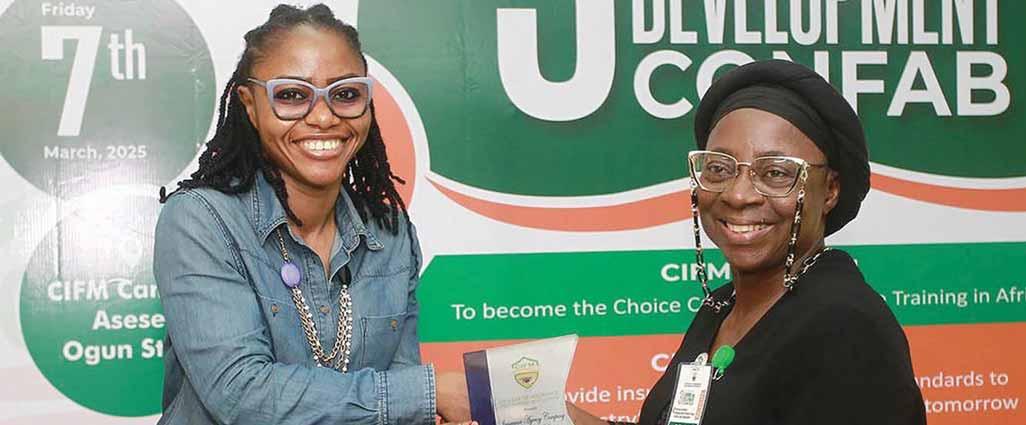
Insurance sector operators have been charged to effect a far reaching reforms to support the sector’s competitiveness and growth.
The Commissioner for Insurance, Mr Olusegun Ayo Omosehin who
stated this at the 40th anniversary celebration of RIMSON in Lagos observed that in Nigeria, the industry has witnessed how the lack of structured risk mitigation has hampered growth, from business disruptions to the socio-economic consequences of climate-related
Centre LGS2 Facility Will Attract FDI, Create Jobs’
Governor of Lagos State, Babajide Sanwo-Olu, has said the new Rack Centre LGS2 data centre facility, located in Ikeja, Lagos, will attract local and international technology companies operating in Nigeria, to host their data in the facility, thereby creating jobs and boosting Foreign Direct Investment (FDI) for Nigeria.
The governor said this at the weekend during the commissioning of the facility, which has a total IT capacity of 12 megawatts, designed and built as one of Africa’s key data centre hubs.
The governor, who was represented by the Deputy Chief of Staff for Lagos State, Mr. Sam Egube, said the state-of-the-art data centre facility would also boost economic activities in the state.
According to Sanwo-Olu, “As we unveil this new facility, we are setting
the stage for a wave of economic opportunities. The data centre industry is a catalyst for growth, creating jobs in various sectors from construction to IT services to financial services, among others. By investing in such advanced technology, we are attracting investors from across the globe that see Lagos, not just as a city, but as a hub of innovation and digital transformation.
“We have already seen partnerships with international tech companies that are leveraging available infrastructure to expand their operations in Africa. Moreover, the facility will enhance our capacity to manage big data, support cloud computing solutions, and provide essential services to businesses of all sizes. It will empower local enterprises and people to compete on a global scale, ensuring that they have the resources they need to thrive in today’s fast-paced digital landscape.”
disasters, cyber threats, and public health emergencies.
Speaking on the theme of the event, “Risk Management In Nigeria-Evaluating Impact And Relevance To National Development” he pointed out that the insurance industry, under the regulatory oversight of the commission, plays a pivotal role in fostering a robust risk management culture in Nigeria. He said insurance not only
provides a financial safety net but also promotes stability, investment, and innovation through risk transfer mechanisms.
“Our regulatory framework is focused on enhancing the capacity of insurers to underwrite risks while ensuring policyholders are protected. We are also working to expand insurance penetration, particularly among underserved communities so that risk mitigation is inclusive and equitable.
“As we evaluate the impact of risk management on national development, we must embrace a proactive data-driven, and forward-looking approach. Risk management should not be seen as measure but as a strategic tool embedded in governance, infrastructure planning, enterprise development, and public policy.” he said.
Hestressed that the theme could not be more significant as our
nation continues to navigate complex economic, social, and environmental challenge in its economic recovery journey. He said that risk management was one of the cornerstones of sustainable development, adding “In today’s interconnected world, the ability of public and private institutions to identify, assess, and respond to risks is central to national resilience and progress.”
Kayode Tokede
The management of CWG Plc has assured its shareholders of sustained growth, stressing that it has made significant strides in delivering innovative products and platforms in payments over the years.
At the Annual General Meeting (AGM) held in Lagos, shareholders approved a dividend per share of 4.0 kobo while commending the board and management of CWG for
improving the company’s fortunes, despite the challenges.
Addressing the shareholders, Chairman CWG, Mr. Philip Obioha, said the group recorded remarkable performance in 2022 as it consolidated the gains of its investments in its payment platform and subscription service businesses. He outlined that the group made significant strides in its businesses in the past year, including onboarding four new banks on its Finedge Core banking application platform on
a subscription service basis while also driving its “infrastructure as a service” business with the addition of new customers to its subscribers’ list. He said the company has continued to make significant investments in its Datacenter offerings to provide the required infrastructure needed to support its platform business, adding that the group has also been making giant strides in its energy metering business as it achieved a 600 percent
revenue growth when compared to the previous year. He also spoke about the newly established Dubai entity, which he said is a part of the group’s expansion plan that offers entry into a growing market with a supportive environment for innovation and development. “We are confident that the investments and efforts put into the new organization/ businesses will yield significant returns starting from the 2023 financial year,” Obioha said.
Reliance Infosystems has stressed the need for organisations and businesses to integrate Artificial Intelligence (AI) into their strategic planning, warning that negligence could render their organisations obsolete in a rapidly evolving digital economy.
At a recent AI masterclass in Lagos, organised by Reliance Infosystems in partnership with Lagos Business School, the company brought together C-suite executives across sectors to demystify AI and outline how decision-makers could drive value creation through its adoption.
A facilitator and member of Lagos Business School, Dr. Nkemdilim Iheanachor, who spoke at the event, advised business executives to responsibility for the implementation of AI strategy in their organisations, adding that AI strategy should not sit with the IT department alone, since it is a
business leadership imperative.
He stressed that companies must stop approaching AI as a one-off innovation project and instead integrate it into long-term value delivery models.
“The AI conversation is timely. According to a 2024 PwC Nigeria report, businesses and workplaces are expected to record a sharp increase in AI adoption by 2025 as firms look to improve efficiency and decision-making.
“However, Nigeria’s AI readiness remains uneven, with infrastructural limitations and fragmented digital policies slowing progress,” Iheanachor said.
Group Vice President, Digitank Technologies, Babajide Akande, who also stressed the need for AI adoption in organisations, said: “There is no scarcity of AI tools. What’s scarce is leadership that can identify problems worth solving and build a culture around execution.”
Nigeria’s economic landscape is undergoing rapid transformation, with inflation, policy shifts, and global uncertainties significantly altering consumer behaviour across Africa’s largest country. To critically understand the factors responsible for the changes in consumer behaviour in the country, SEID, a reputable Marketing Communications Firm in Lagos, Nigeria, has launched its firstof-a-kind report titled ‘Nigerian Consumer Outlook Report 2025
Cedar Group Hospital, a leading healthcare provider in Nigeria, has reaffirmed its commitment to delivering high-quality medical care in Nigeria It stated this at the Association of Nigerian Private Medical Practitioners (ANPMP) bi-monthly meeting recently held in Lagos, while also unveiling its state-ofthe-art medical facility.
(NCOR 2025)’. The report offers insight into consumer behaviour in one of the continent’s most dynamic markets with xx that can steer international investors in the right direction and help policymakers develop the right policies.
Speaking on the significance of the report, Managing Partner at SEID, Tubosun Akeju, stated, “The Nigerian consumer outlook report 2025 is a blueprint for decisionmakers who want to stay ahead. At
The event brought together medical practitioners from across the zone to discuss medical knowledge and patient care advancements.
In his address, Prof. Kanu provided an in-depth analysis of brain injuries, covering causes, early detection methods, and best treatment practices.
He emphasised the importance of rapid assessment using tools like the Glasgow Coma Scale and
SEID, we are dedicated to helping businesses make strategic decisions through contextualised insight. The market has experienced multiple layers of changes in recent years, from generational and cultural shifts to technological innovation to changes in government policies. The average Nigerian consumer today is different from that of about 10 years ago.
Recent policy changes have even made it more important to understand the realities of Nigerian
explored innovative approaches to improving emergency care outcomes.
Professor Ogunleye’s lecture focused on bradycardia, examining its causes, diagnosis, and management strategies.
He also highlighted the role of C-Arm technology in cardiology, explaining how it enhances precision in minimally invasive procedures and improves treatment outcomes for heart-related conditions.
consumers and how they are navigating the evolving economic realities. The Nigerian market holds tremendous opportunities; however, success in the market requires the right insight into the consumers’ uniqueness. NCOR 2025 delivers insights and spotlights some opportunities for brands, investors, and policymakers to navigate this transformation successfully. It offers a unique window into the challenges and untapped opportunities within the market.”
The hospital further demonstrated its commitment to medical excellence by showcasing its advanced healthcare capabilities.
The interactive event encouraged valuable knowledge exchange and strengthened professional relationships among medical practitioners. While the primary focus was on continuous medical education, it also provided a platform for collaboration and networking.
Farouk Mohammed
In a country where energy is not just an industry but a symbol of national potential, the recent announcement of Adesua Dozie as Chief Legal Officer and General Counsel of NNPC Limited signals a new chapter—not just for Nigeria’s energy behemoth, but for how trust, competence, and global corporate discipline are being redefined at the highest levels. Only just a few days ago, President Bola Tinubu, invoking the relevant sections of the Petroleum Industry Act, embarked sweeping changes in the board and management of NNPCL ushering in a new board led by Ahmed Musa Kida and a management team led by Bayo Ojulari. Industry experts have hailed the move with many describing it as arguably the most competent team ever put together for a government affiliated company. Amongst those appointed to the key management is Adesua Dozie
With over two decades of experience as a trusted legal advisor to some of the world’s largest and most demanding multinationals, including ExxonMobil, GE Africa, Coca-Cola, and Total Energies, Adesua Dozie has navigated boardrooms from Lagos to London, consistently proving her ability to balance complex legal frameworks with strategic commercial objectives. Her skills in negotiating intricate, cross-border deals and her rigorous approach to corporate governance are precisely what NNPCL requires as it transitions into a globally respected, commercially driven, publicly accountable entity.
Adesua Dozie arrives at NNPC not as a political appointment or a symbolic choice but as a strategic asset. At a time when NNPC is preparing for future capital markets engagement and restructuring under the Petroleum Industry Act, her mandate will be to embed corporate best practices, elevate investor confidence, and build a legal and governance architecture fit for global scrutiny.
Adesua’s career has long danced at the intersection of power, regulation, and corporate diplomacy. A graduate of the University of Buckingham, with an LL.M. from Cornell Law School and bar qualifications in Nigeria and New York, Dozie’s
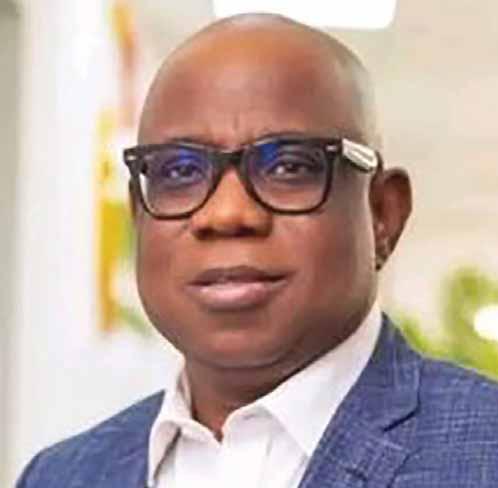
international credentials speak to her capability to manage the global investor expectations that will accompany NNPCL’s IPO journey. Her tenure at ExxonMobil, where she served as Vice Chairman and Regional General Counsel (Africa,
Upstream), saw her reinforcing transparency, corporate accountability, and compliance. These are some qualities NNPCL seeks to emulate as it positions itself for global investors. She played a key role in managing the
legal complexities of the landmark shallow water divestment from ExxonMobil to Seplat. This exercise was marked by significant regulatory challenges, intricate dispute resolution, and industrial relations sensitivities. That transaction, and the seamless handling it received under her stewardship, was a masterclass in legal strategy below the headlines. It showcased her ability to work across institutions, resolve long-standing legacy issues, and steer outcomes that preserved value while respecting national interests.
As General Counsel for GE Africa, she guided complex negotiations across over 20 countries while co-chairing the GE Women’s Network in Africa. At Coca-Cola, she managed legal operations and shaped social impact through her role as Legal Adviser and Secretary to the Board of the Coca-Cola Africa Foundation. These were not just side projects but early signals of her ability to balance hard-edged risk management with inclusive leadership. Now, at NNPC, she is expected to help guide one of Africa’s most critical institutions through a complete transition and transformation from a state corporation to a fully commercial, investorfacing national energy company in line with Nigeria’s PIA. Her role will span everything from managing compliance, governance, and contracts to strengthening the institution’s internal legal culture, investor relations, and global reputation. Quietly but decisively, Adesua will shape how the world reads the fine print on Nigeria’s energy future.
Educated at the University of Buckingham, with an LL.M from Cornell, and called to both the Nigerian and New York Bars, Adesua brings pedigree. Still, it’s her balance of clarity, discretion, and institutional loyalty that has earned her respect across the world.
She has spoken often about navigating the “complex dance between purpose, profit, and risk.” But perhaps her most potent credential is not always written in bios—deeply rooted in her heritage, globally respected in practice, and quietly rewriting what leadership looks like in the corridors of oil and power. Behind every successful transition is a figure who brings steadiness. At NNPCL, that figure might just be Adesua—bringing balance to the Bayo Ojulari-led team.
Sunday Ehigiator
The National Sugar Development Council (NSDC) has signed a major Memorandum of Understanding (MoU) with SINOMACH, a Chinese conglomerate, for the development of sugarcane cultivation and processing projects capable of producing one million metric tonnes of sugar in the country.
In a statement, the NSDC said
the MoU, which is an early fruit of the Nigeria-China Strategic Partnership, an initiative of President Bola Ahmed Tinubu, has the potential to attract investments of up to one billion dollars into the Nigerian sugar industry.
The Executive Secretary/CEO of NSDC, Mr. Kamar Bakrin, in the statement reiterated that 2025 represents a pivotal year for accelerated development in Nigeria.
“It is a critical period during which we expect to make significant strides in our national journey towards economic selfsufficiency and food security, especially given the fiscal pressure that Nigeria faces.
“A robust sugar industry will deliver several benefits to Nigeria. These include the creation of thousands of sustainable jobs across the value chain. Sugar, by its very nature, leads to
extensive rural infrastructure development. For Nigeria, it will also result in substantial foreign exchange savings, as it will substitute imports, which currently account for the bulk of the country’s sugar consumption.
“We envision a sugar sector, when fully developed, that will serve as a blueprint for Nigeria’s broader industrialisation strategy. And, of course, China, being the world’s leader in industrialisation,
can easily relate to this,” he said.
Also speaking, the Vice President of SINOMACH, Li Xiao Yu, acknowledged that, as Africa’s largest economy, the country’s vigorous implementation of the Nigeria Sugar Master Plan (NSMP) with the goal of achieving self-sufficiency in sugar production is laudable.
“We deeply admire this vision; it is not only an industrial policy but also a sweet revolution tied
to food sovereignty and economic dignity. We firmly believe that, through joint efforts, the success of the plantation and sugar mill project will enhance Nigeria’s sugar self-sufficiency, spur economic development in surrounding areas, create substantial employment, modernise the agricultural value chain, and generate long-term and sustainable social benefits,” he said.
Africa’s Global Bank, United Bank for Africa (UBA) Plc, has unveiled its vastly improved Point of Sale (POS) Terminal as well as the UBA MONI App to redefine the digital payment landscape and empowering small and Medium Scale Enterprises across Africa. The upgraded platforms form part of the bank’s ongoing campaign with the theme: Innovation for Progress: Empowering SMEs, Connecting
Communities, Simplifying Banking. The UBA MONI App which is designed to further strengthen UBA’s agency banking network has also been modified with new features including instant settlement, pay-by-transfer options, secret question security, an enhanced inbox, and a redesigned homepage - offering agents and customers an even more intuitive and secure experience. This is in addition to its core features of
instant account opening with BVN/NIN, real-time transfers, cash deposits and withdrawals, airtime/data payments with agent discounts, and instant POS deployment remain at the heart of the app.
Speaking on the modified features of both platforms, UBA’s Group Head, Retail and Digital Banking, Shamsideen Fashola, said, that as a forwardthinking financial institution,
UBA is always on the look-out for modern ways to improve their services and offerings, to give customers top-notch experiences while conducting their daily businesses.
He said, “At UBA, we are constantly innovating to provide seamless and secure payment solutions for businesses of all sizes. The new UBA PoS and MONI App is designed to empower merchants and agency
banking with instant settlements, real-time transaction tracking, and unmatched reliability - ensuring they can focus on growing their businesses with a trusted partner.”
UBA’s Group Head, Marketing and Corporate Communication, Alero Ladipo, emphasised the bank’s unwavering commitment to delivering innovative solutions that meet the evolving needs of its custom ers.
“We understand that speed,
transparency, and reliability are critical for business growth, and that’s exactly what the new UBA POS and Moni App delivers. At UBA, we are not just providing a payment device, we are offering a promise of efficiency, trust, and support to the thousands of businesses that rely on us daily. This solution is a testament to our dedication to helping our customers thrive in today’s digital economy,” she noted.
The stock market closed last week on a bearish note, as the market capitalisation dropped by N441 billion as investors continued to adopt a cautious stance amid an earnings season that has so far delivered mixed feelings Also, the market capitalisation reflected the bearish mood, dipped by N441 billion to close the week at N65.707 trillion.
Across the board, sectoral performance was largely negative, reflecting risk-off sentiment. The
NGX Insurance index led the losses, down 4.57 per cent in one week. The NGX Banking index followed closely, losing 2.20 per cent, while the NGX Consumer Goods and NGX Oil & Gas indices shed 0.61 per cent and 0.50 per cent respectively for the week. Also, the NGX Industrial Goods and NGX Commodity indices posted a weekly decline of 0.26 per cent and 0.10 per cent respectively.
The market breadth for the week was negative as 27 equities appreciated in price, 56 equities
depreciated in price, while 64 equities remained unchanged.
VFD Group led the gainers table by 53.86 per cent to close at N87.70, per share. Union Dicon Salt followed with a gain of 31.03 per cent to close at N7.60, while Abbey Mortgage Bank went up by 29.60 per cent to close to N6.13, per share.
On the other side, Royal Exchange led the decliners table by 20.79 per cent to close at 80 kobo, per share. Cornerstone Insurance followed with a loss of 15.15 per cent to close at N2.80, while Sovereign Trust Insurance declined by 15.00 per
cent to close at 85 kobo, per share.
Overall, a total turnover of 2.094 billion shares worth N52.967 billion in 64,612 deals was traded last week by investors on the floor of the Exchange, in contrast to a total of 1.183 billion shares valued at N28.868 billion that exchanged hands previous week in 42,397 deals.
The Financial Services (measured by volume) led the activity chart with 1.539 billion shares valued at N36.353 billion traded in 36,013 deals; contributing 73.49 per cent and 68.63 per cent to the total
equity turnover volume and value respectively.
The Agriculture industry followed with 98.884 million shares worth N 1.344 billion in 2,772 deals, while the Services Industry traded a turnover of 93.000 million shares worth N522.147 million in 3,012 deals.
Trading in the top equities; Access Holdings, Guaranty Trust Holding Company (GTCO) and Zenith Bank accounted for 629.327 million shares worth N25.820 billion in 12,742 deals, contributing 30.06 per cent and 48.75 per cent to
the total equity turnover volume and value respectively. Capital martket analysts anticipated mixed performance on the Nigerian stock market this week amidst portfolio rebalancing. Looking ahead to the new week, Cowry Assets Management Limited said, “short-term outlook for the market remains cautious. All eyes are now on the March CPI data and the Q1 2025 macroeconomic report, which are expected to offer more clarity on the direction of the economy and set the tone for risk sentiment.”
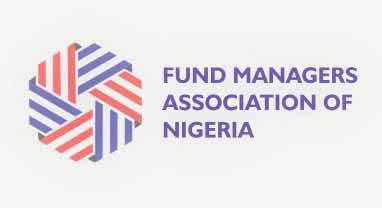
A Mutual fund (Unit Trust) is an investment vehicle managed by a SEC (Securities and Exchange Commission) registered Fund Manager. Investors with similar objectives buy units of the Fund so that the Fund Manager can buy securities that willl generate their desired return.
An ETF (Exchange Traded Fund) is a type of fund which owns the assets (shares of stock, bonds, oil futures, gold bars, foreign currency, etc.) and divides ownership of those assets into shares. Investors can buy these ‘shares’ on the
floor of the Nigerian Stock Exchange. A REIT (Real Estate Investment Trust) is an investment vehicle that allows both small and large investors to part-own real estate ventures (eg. Offices, Houses, Hospitals) in proportion to their investments. The assets are divided into shares that are traded on the Nigerian Stock Exchange.
GUIDE TO DATA:
Date: All fund prices are quoted in Naira as at 10 April-2025, unless otherwise stated.
Editor: Goddy Egene
Guaranty Trust Holding Company Plc (GTCO) has set a new record in the Nigerian financial services industry in terms of dividend payment, having recommended a total N8.03 per share to shareholders for the 2024 financial year, writes Kayode Tokede
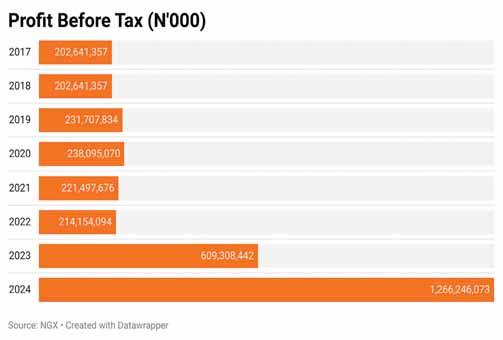
GTCO has surprised the capital market community with robust dividend payout in the financial year performance ended December 31, 2024. The lender after overcoming domestic and foreign challenges is expected to pay shareholders a total dividend of N8.03 kobo per share in 2024 financial year from N3.20 total dividend paid in 2023. The declared N8.03 is the highest dividend payout in the GTCO’s history and in the financial sector in Nigeria.
In the half year ended June 2024, an interim dividend of N1.00 per share was recommended and paid. Now, the board of directors has proposed a final dividend of N7.03 per share for the year ended December 31, 2024 ( 2023 was N2.70 per share) on the issued ordinary shares of 34,138,949,684 of 50k each.
The 2024 dividend payout translates to a dividend yield of 10.9 per cent based on the last closing price of N64.25/share (March 27,2025).
The dividend payout in 2024 was made possible when the Group reported profit before tax (PBT) of N1.266 trillion, representing an increase of 107.8per cent over N609.3billion recorded in the corresponding year ended December 2023, while profit after tax (PAT) closed 2024 at N1.02 trillion, an increase of 88.6 per cent from N539.65 billion declared in 2023.
The bank’s Nigeria operations accounted for 77.3 per cent of PAT; West Africa - 18.4per cent, East Africa - 1.5per cent, UK -1.7per cent and Non-Banking Businesses - 1.1per cent.
GTCO reported N1.34 trillion interest income in 2024, about 143.6 per cent growth over N550.76 billion in 2023, driven by higher income from key contributory lines. In nominal terms, the group generated higher revenue from investment securities (+228.8 per cent to N599.32 billion) and loans & advances to customers (+75.2 per cent to N509.25 billion), placements with other banks (+242.5per cent to N226.83 billion), which was sufficient to offset the decline in income from loans and advances to banks (-44.7per cent).
Elsewhere, interest expense moved to N283.22 billion in 2024, an increase of 148.3 per cent from N114.06 billion in 2023, primarily driven by the elevated interest rate in the environment, which led to increased funding costs.
Accordingly, the Holdco’s interest cost on customers’ deposit holdings rose by 114.5per cent to NGN220.47 billion, driven by deterioration in the group’s funding mix (CASA 2024: 83.6 per cent as against 2023: 88.6per cent).
At the same time, borrowing costs grew by 543.5per cent to N47.34 billion. Consequently, the net interest income rose by 142.4per cent to N1.59 trillion. Ultimately, the net interest income (ex-LLE) settled 176.2per cent higher at N921.92 billion, following an increase in
loan impairment charges (+32.7per cent to N136.66 billion).
The Group recorded a 60.9 per cent growth in operating expenses (OPEX) from N250.4 billion in 2023 to N403.0 billion in 2024 with non-controllable cost mix improving to 28.9per cent of the total operating expenses in 2024 from 33.3per cent in 2023.
The key OPEX growth drivers are: increase in regulatory charges - AMCON levy and Deposit Insurance Premium. AMCON levy increased by 34.2per cent (N36.6billion vs N27.4billion) due to growth in total asset and contingents base (N7.33trillion vs N5.46trillion).
Also, deposit insurance premium increased by 28.9per cent (N21.9billion vs N17.0billion) due to a 48.1per cent increase in underlying customers’ deposits volume (N5.26trillion vs N3.55trillion) and 84.3per cent growth in occupancy costs and repairs & maintenance (N35.2billion vs N19.1billion), driven by impact of exchange rate and increase in price occasioned by rise in diesel, fuel, and general maintenance costs as well ground and water rates.
Also, GTCO witnessed 48.4 per cent growth in technological and service related expenses to N88.0billion in 2024 vs N59. billion in 2023 is in line with the Group’s growth aspirations, necessitating increased spend on technology. The weaker Naira/ US$ conversion also had a major impact on the translation of subsidiaries’ OPEX balances.
However, the 2024 FY performance reflects not just strong earnings but also the quality and sustainability of GTCO’s earnings, underpinned by a well-diversified revenue base, robust risk management practice, and disciplined capital management.
The Group recorded growth across all financial and non-financial metrics, and continues to maintain a well-structured, healthy, and diversified balance sheet.
GTCO’s total assets closed 2024 at N14.8trillion, up by 53 per cent from N9.69trillion in 2023.
The group’s asset base is well diversified and well structured across all business verticals with loans accounting for 18.8per cent, investment securities 29.2per cent, cash & cash equivalent -31.6per cent, a testament to the Group’s strong liquidity position and robust earnings capacity.
The Group’s loan book (net) increased by 12.3per cent from N2.48trillion in December 2023 to N2.79trillion in 2024, while deposit liabilities grew by 37.8per cent from N7.55trillion to N10.40trillion during the same period.
The Group’s total equity at N2.7 trillion in 2024, an increase of 83.6 per cent when compared to N1.45 trillion reported in 2023.
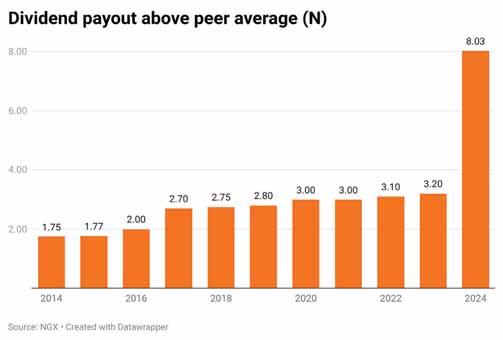
Overall, the group continues to post one of the best metrics in terms of key financial ratios. For instance, Pre-Tax Return on Equity (ROAE) stood at 60.5per cent in 2024 from 50.3per cent in 2023, Pre-Tax Return on Assets (ROAA) moved from 7.7per cent to 10.3 per cent.
GTCO’s Capital Adequacy Ratio (CAR) stood at 39.3 per cent in 2024 from 29.20 per cent in 2023. Cost to Income ratio emerged the lowest in the banking sector at 24.1 per cent in 2024 from 29.10per cent in 2023.
Capital Adequacy Ratio (CAR) remained very robust and strong, closing at 39.3per cent, likewise, asset quality was sustained as evidenced by IFRS 9 Stage 3 Loans which closed at 3.5per cent at Bank Level and 5.2per cent at Group in 2024 (2023: Bank, 2.5per cent; Group, 4.2per cent) and cost of risk (COR) closed at 4.9per cent from 4.5per cent in December 2023.
Liquidity ratio closed at 49.2 per cent in 2024 up from 31.1per cent in 2023 well above the regulatory minimum requirement of 30 per cent. Despite the pressure from competition and the need to cover for regulatory CRR debits, the Group maintained an average liquidity ratio of 44.3 per cent during the period under review.
The Managing Director/CEO, Globalview Capital Limited, Mr. Aruna Kebira stated that GTCO’s N8.03 per 50 kobo ordinary shares dividend payout to shareholders is massive.
“Even without factoring in the interim, the stock can still deliver a 10 per cent dividend yield. It goes further to establish the bank as a leader in the industry, offering deliverables higher than Stanbic IBTC Holdings Plc. It also shows that even if the price of the stock rises above what is trading now, their earnings and dividend payout will be able to sustain it,” he added.
On its part, Vice President, Highcap Securities, David Adonri, said that the lender’s 2024 financial year dividend is very fantastic distribution and it beats capital market community expectation.
Investment banker andstockbroker, Mr. Tajudeen Olayinka said that the dividend payout is a good one, to the extent that it could help some of their shareholders to either take their rights when they finally return to the market in the course of the year to issue additional shares or encourage prospective shareholders of the bank participate in any possible public offering.
“The sustainability of such a high dividend payout by GTCO is something that requires additional investigation,” he said.
Speaking from a shareholder view, President, Pragmatic Shareholders Association, Mrs. Bisi Bakare, commended the dividend payout by the management of GTCO, urging sustainability of policy.
“Shareholders want the dividend payout trend to continue. If N8.03 was declared in 2024 by 2025FY, we are expecting N10.00 total dividend payout. We (shareholders) are excited and happy with the board and management of GTCO for such a wonderful dividend payout.
“Mind you, we invested to get returns and paying N8.03 total dividend is something shareholders were not expecting.”
Analysts at Cordros Research in a report said: “GTCO’s performance was impressive, with financial indicators surpassing peers. First, the group continues to seal the title of the most efficient lender, with a CIR of 24.2per cent.
“Additionally, the group now holds the industry’s highest buffers relative to risky assets, with a CAR of 39.3per cent. Furthermore, following the sizable dividend proposed, GTCO boasts the highest dividend yield of 10.9 per cent.
“Looking ahead to 2025E, we expect continued positive momentum underpinned by improved credit creation. Although the stability of the naira may limit earnings growth, we expect the group’s strong operational efficiency to continue to support earnings.”
The Group Chief Executive Officer, GTCO, Mr. Segun Agbaje in a statement said: “Our strong performance for 2024 underscores the resilience and depth of our business, driven by a well-diversified earnings base across our banking and non-banking subsidiaries, all of which are P&L positive.
“Our capacity to generate sustainable highquality earnings, maintain strong asset quality, and drive cost efficiencies reflects the soundness of our long-term strategy and disciplined execution. We have also prudently provided for all our forbearance loans, well ahead of the June 2025 timeline, whilst fully accruing for the windfall tax, further strengthening our balance sheet and enhancing financial resilience.
He added:“The total dividend of N8.03k for the 2024 FYE is underpinned by the quality of our earnings and is in line with our long tradition of increasing dividend pay-out year-on year. Looking ahead, we remain committed to building a Financial Services Group that thrives on innovation, operational efficiency, and sustainable profitability.
“We will continue to deepen our relationships with customers, leverage technology to deliver cutting-edge financial solutions, and accelerate the growth of all our business verticals—Banking, Funds Management, Pension, and Payments—to unlock new opportunities and create more value for our shareholders.”
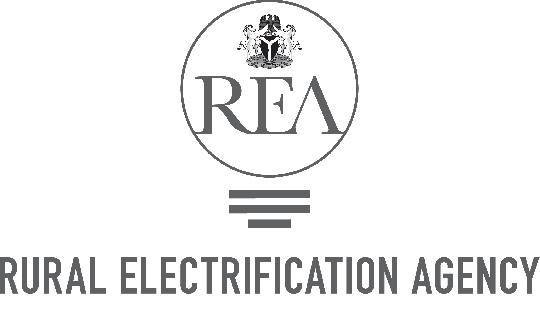
1. INTRODUCTION
Plot 121,
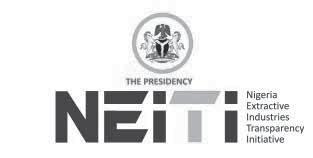
The Nigeria Extractive Industries Transparency Initiative (NEITI) is mandated by law to promote transparency and accountability in the management of Nigeria’s oil, gas and mining revenues. NEITI is the national version of the Extractive Industries Transparency Initiative (EITI), which is a global movement aimed at ensuring that extractive resources aid sustainable development.
In view of the above and in compliance with the provisions of the Public Procurement Act (PPA) 2007, NEITI now invites experience and competent contractors/suppliers to submit bids under its 2025 capital appropriation.
2. SCOPE OF SUPPLY
GENERAL DESCRIPTION OF THE PROPOSED PROJECTS
LOT 1Purchase of Office Furniture and Fittings
LOT 2Purchase of Communication Equipment’s
LOT 3Purchase of Photocopying Machines
LOT 4Purchase of Shredding Machines
LOT 5Purchase of Computers
LOT 6Purchase of Library Books and Equipment
Maximum of 2 Lots Per-Bidder
3. ELIGIBILITY REQUIREMENTS.
a. Evidence of Certificate of Incorporation issued by the Corporate Affairs Commission (CAC) including Forms CAC1.1 or CAC2 and CAC7;
b. Evidence of Company Income’s Tax Clearance Certificate (or the last (3) years valid till 31st December, 2025;
c. Evidence of Pension Clearance Certificate valid till 31st December 2025 (applicable where number of staff is at least 15);
d. Evidence of Industrial Training Fund (ITF) compliance certificate valid till 31st December 2025. (applicable where number of staff is at least 5 or at least N50million turnover).
e. Evidence of Nigeria Social Insurance Trust Fund (NSITF) Clearance Certificate valid till 31st December 2025;
f. Evidence of Registration on the National Data Base of Federal Contractors, Consultants and Service Providers by submission of Interim Registration Report (IRR) expiring 31/12/2025 or valid certificate issued by BPP.
g. Sworn Affidavit: disclosing whether or not any officer of the relevant committees of the Nigeria Extractive Industries Transparency Initiative or the Bureau of Public Procurement is a former or present Director, shareholder or has any pecuniary interest in the bidder and to confirm that all information presented in the bid are true and correct in all particulars
h. Company Audited Accounts for the last three (3) years- 2022, 2023 and 2024;
i. Evidence of financial capability to execute the project by submission of Reference Letter from a reputable commercial bank in Nigeria, indicating willingness to provide credit facility for the execution of the project when needed;
j. Company profile with Curriculum Vitae of Key Staff to be deployed for the project, including copies of their Academic/ Professional qualifications such as (For Lots 2 & 5 NITDA/CPN/ Information Technology is required;
k. Verifiable documentary evidence of at least three (3) similar jobs executed within the last five (5) years, including letters of awards, valuation certificates, jobs completion certificates and photographs of projects;
l. List of plants/Equipment with proof of ownership/ Lease (where applicable);
m. For Joint Venture/Partnership, Memorandum of Understanding (MOU) should be provided (CAC; Tax Clearance Certificate, Pension Clearance Certificate, ITF Compliance
Certificate, NSITF Clearance Certificate, IRR & Sworn Affidavit are compulsory for each JV Partner);
n. All documents for submission must be transmitted with a covering/forwarding letter under the Company/Firm’s Letterhead paper bearing amongst other things the Registration Number (RC), as issued by the Corporate Affairs Commission (CAC), Contact Address, Telephone Number (preferably GSM No.), and e-mail address. The Letterhead must bear the Names and Nationalities of the Directors of the Company at the bottom of the page, duly signed by the authorized officer of the company.
4.
Interested companies are to collect the Standard Bidding Documents (SBD) from the office of the Director, Procurement, First Floor, Wing B, Room FF 03 at NEITI House, Plot 121, Danladi Kifasi Close, off Ngozi Okonjo Iweala Street, Wuye, Abuja on evidence of payment of non-refundable tender fee of N10,000.00 per Lot paid into the NEITI ‘s REMITA account in any reputable commercial bank in Nigeria.
5. SUBMISSION OF TENDER DOCUMENTS
Prospective bidders are to submit bid for each of the Lot desired , two (2) hard copies each of the technical and financial bids with softcopy of financial bid only in MS Excel format, packaged separately in sealed envelopes and clearly marked as “ Technical Bid” or “Financial Bid”. Thereafter, put the two sealed envelopes together in a bigger sealed envelope addressed to The Executive Secretary, NEITI, NEITI House, Plot 121, Danladi Kifasi Close, Off Ngozi Okonjo Iweala Street, Wuye, Abuja and clearly marked with (with name of the project and the Lot number). Furthermore, the reverse of each sealed enveloe should bear the name and address of the bidder and drop in the designated Tender Box at First Floor, Wing B, Room FF 03 not later than 12:00pm on Monday 26th May 2025
6. OPENING OF TECHNICAL BIDS
The Technical bids will be opened immediately after the deadline for submission at 12:00pm of Monday 26th May 2025 at NEITI’s Conference Room, Ground Floor in the presence of bidders or their representatives, while the Financials bids will be kept un-opened. Please ensure that you sign the bid submission register in the office of the Director, Procurement, first Floor, Wing B, Room FF 03 as NEITI will not be held liable for misplaced or wrongly submitted bids. For further enquiries, please contact the Director, Procurement on e-mail: aahmed@neiti.gov.ng
GENERAL INFORMATION
o. Bids must be in English Language and signed by an official authorized by the bidder.
p. Bids submitted after the deadline for submission would be returned un-opened
q. Bidders should not bid for more than two (2) Lots;
r. All cost will be borne by the bidders
s. The bids opening will be covered by video recording (link will be sent to bidders) with the representatives of private sector professional bodies and civil society organization in the areas of Anti-Corruption/Transparency;
t. Bid documents can also be collected in soft copies and Bidders can submit through Post (Courier Services);
u. Only pre-qualified bidders at technical evaluation will be invited at a later date for financial bids opening, while the financial bids of un-successful bidders will be returned un-opened.
v. The NEITI is not bound to pre-qualify any bidder and reserves the right to annul the Procurement process at any time without incurring any liabilities in accordance with Section 28 of the Public Procurement Act 2007.
The Executive Secretary/CEO, NEITI
Momentum is growing across Nigeria for women’s empowerment and inclusive development, driven by the leadership of Hajiya Imaan Sulaiman-Ibrahim, Minister of Women Affairs. Over the weekend in Lagos, key stakeholders, philanthropists, and women leaders gathered at an event hosted by Women in Philanthropy and Impact Africa (WIPIA) to celebrate the Ministry’s strides and pledge continued support. With impactful programmes already transforming lives, the message was clear: investing in women is essential to national progress. Chiemelie Ezeobi reports
Across Nigeria, momentum is building behind a growing movement to empower women, uplift girls, and protect vulnerable populations. At the forefront of this transformation is the Federal Ministry of Women Affairs led by the Minister of Women Affairs, Hajiya Imaan Sulaiman-Ibrahim, who has launched a suite of impactful programmes aimed at economic empowerment, gender equality, and inclusive development.
Therefore, over the weekend in Lagos, prominent women leaders, philanthropists, and stakeholders came together to celebrate this progress—and to commit to doing more.
Hosted by Women in Philanthropy and Impact Africa (WIPIA), the event brought together powerhouse voices from business, development, media, and civil society to recognise the work being done under the Renewed Hope Agenda of President Bola Ahmed Tinubu, and to throw their weight behind the leadership of the Minister of Women Affairs, Hajiya Imaan Sulaiman-Ibrahim.
Real Progress, Tangible Impact
Under her stewardship, the Ministry has introduced ambitious initiatives focused on women’s economic empowerment, improving access to finance, providing capacity-building opportunities, and creating mentorship platforms. A major component of the Ministry’s work is dedicated to advancing girls’ education through scholarships, school retention programmes, and partnerships with stakeholders to scale impact nationwide.
She highlighted a number of key programmes, including the revitalisation of the Nigerian for Women Project, which is directly empowering women across local communities with training, grants, and support to grow sustainable businesses. Another is the establishment of high-level committees to review and update the 18-year-old Child Rights Act, aligning Nigeria’s laws with global standards on children’s protection and welfare.
Efforts to address sexual and gender-based violence (SGBV) have also been expanded, just as she noted that the ministry is working with state governments, security agencies, and advocacy groups to support survivors, strengthen the justice system, and provide psychological services.
“These programmes are not just about policy—they’re about people,” she said. “We are building systems that allow women and girls to thrive, to be safe, and to lead. Nigerians can build a brighter future for women and girls, enabling them to reach their full potential and contribute to the country’s growth, prosperity, and the Renewed Hope Agenda of President Tinubu”. Powerful Voices, United Purpose
In a show of solidarity, some of the country’s most influential women praised the Minister’s leadership and called for greater support for the Ministry’s work. Among them was renowned business magnate and philanthropist, Bola Shagaya, who described the Minister’s approach as both strategic and compassionate.
“The minister’s commitment to creating opportunities for women is truly commendable,” Shagaya said. “As someone who has always supported women’s empowerment, I pledge to stand with her and the Ministry in this important work.”
Shagaya, the founder and CEO of Bolmus Group International, highlighted the centrality of economic empowerment to gender equality, noting that inclusive development must prioritise women-led businesses and financial access for underserved groups.
Erelu Abiola Dosunmu, a respected royal and elder stateswoman, also lauded the Minister’s vision. “Her efforts in promoting women’s welfare are remarkable. This is a legacy of true service, and I believe her impact will be long-lasting.”
From the private sector, Bola Adesola, Chair of Ecobank Nigeria, commended the Ministry’s work and emphasised the need for collaboration. “The private sector must be intentional in supporting the gender agenda. We have a responsibility to stand beside leaders like the Minister and amplify their work.”
Claire Omatseye, Founder and Managing Director of JNC International, added: “Sustainable development cannot happen without empowering half the population. It’s time for us to collaborate across the board.”
Also present were Dr. Kemi Ibru Da Silva, Founder of WARIF, who praised the Ministry’s response to gender-based violence; Dr. Princess Kelechi, Chief Executive of City FM; and Mabel Makun, alongside
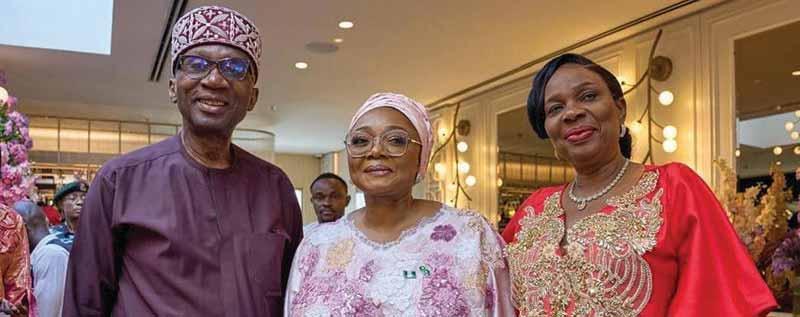


other notable figures who echoed their commitment to the cause.
Bridging Policy and Philanthropy
The gathering was not only a celebration but a strategy session—anchored in the belief that progress must be accelerated. Chair of WIPIA, Dr. Anino Emuwa, delivered a address that called for deeper partnerships between government, philanthropy, and the private sector.
“It is an honour to be here with such a powerful room of leaders from government, business, philanthropy, and civil society to celebrate the Honourable Minister—Honourable Imaan
Sulaiman-Ibrahim—for her visionary leadership and to support her critical work to advance women and girls in Nigeria,” Emuwa said.
“This is not the time to retreat. It is the time to push forward—boldly, collectively, and with greater resolve,” she continued. “Let us not leave here with just ideas. Let us leave with commitme nts. WIPIA stands ready to partner with the government, private sector and philanthropists—to catalyse the mobilisation of funding, to convene decision-makers, and support Nigeria’s leaders and policymakers on this journey.”
A National Agenda with Global Relevance Also pledging their support were MTN Nigeria Chairman, Engr Ernest Ndukwe; Mark Okoye, CEO of the South East Development Commission; Allen Doja of City FM; and Hajiya Sa’adatu, wife of the late Senator Shehu Musa. Their presence reflected a broad coalition of support for women-centred policymaking across sectors and regions.
In turn, Ahunna Eziakonwa, UN Assistant SecretaryGeneral and Director of the UNDP’s Africa Bureau, underscored the international community’s support for the Ministry’s work. “Her leadership exemplifies the kind of home-grown solutions that work. The UN is watching and supporting such transformative efforts,” she said.
The energy in the room signalled that Nigeria’s gender movement is entering a new phase—one of action, scale, and deeper collaboration. With programmes already creating meaningful change, and with prominent Nigerians pledging continued support, the outlook for women and girls in Nigeria is more hopeful than ever. The Ministry of Women Affairs, under the guidance of Hajiya Imaan SulaimanIbrahim, is not only shaping policy but also shifting perceptions—redefining what it means to lead with purpose and serve with empathy.
“Investing in women is investing in the future of our nation,” one participant said, summing up the spirit of the event. As the Minister continues to build bridges between policy, people, and progress, one thing is clear: the future is female—and it is already unfolding. But before the curtains went down, Dr. Ifeyinwa Nwakwesi called for women to shift from a mindset of marginalisation to one of empowerment through faith, just as she charged them to celebrate their strengths, pursue personal growth, and live authentically by balancing dreams, health, relationships, finances, and purpose.
Kayode Tokede
InfraCredit, a ‘AAA’-rated specialised infrastructure credit guarantee institution, has announced the successful equity investment by the UK Government-backed MOBILIST programme, alongside other institutional investors, further strengthening its institutional shareholder base following the completion of its equity private placement.
This strategic investment, it said in a statement, marks a major milestone in it’s journey, reinforcing its commitment to unlocking long-term, local currency infrastructure financing in Nigeria, and creating sustainable value for its stakeholders.
“This equity raise involves InfraCredit’s formal transition to a Public Limited Company (Plc) and its listing by introduction on the NASD OTC Securities Exchange (“NASD”). These developments reflect InfraCredit’s continued efforts toward transparency, market development, and the attraction of long-term domestic capital for sustainable
Keystone Bank Limited has been recognised for its outstanding contributions to service excellence, emerging as the Best in Customer Experience at the 14th Edition of the West Africa Innovation Awards held in Lagos. The prestigious annual awards ceremony celebrates brands and professionals that exemplify excellence, creativity, and innovation across various sectors in West Africa, with a special focus on organizations that are pushing boundaries and setting new benchmarks.
According to the organisers, Keystone Bank was recognized for its unwavering commitment to delivering cutting-edge financial solutions and world class customer service in the
infrastructure.
“The equity raise of N27 billion ($17.7 million), comprising investment from MOBILIST and domestic institutional investors, will significantly strengthen InfraCredit’s guarantee issuing capacity, enabling greater support for creditworthy infrastructure projects. It will also result in the diversification of InfraCredit’s ownership structure in line with its envisioned capital structure. The NASD listing is expected to broaden investor participation, provide financial flexibility, enhance price discovery, and improved transparency for InfraCredit among a wider pool of institutional investors,” it said.
Commenting on this milestone, Chief Executive Officer of InfraCredit, Chinua Azubike, stated; “This moment marks the beginning of a new chapter for InfraCredit. We are pleased with the confidence reposed in us by our new domestic institutional investor shareholders alongside the UK Government through MOBILIST, and our transition to a listed public company with access
banking sector.
“The bank’s continuous investment in digital transformation, customer feedback and staff training, has significantly enhanced its service delivery and customer satisfaction,” it said.
Speaking at the ceremony, Group Head, Service Management, Keystone Bank, Mr. Bukola Fodeke, who received the award on behalf of the bank, noted that: “At Keystone Bank, we are driven by a relentless passion to place our customers at the heart of everything we do. This award is not just an accolade, it is a reminder that when innovation meets service excellence, the result is a truly differentiated customer experience. We dedicate this recognition to
to equity capital markets. This reflects our ambition to build a deeper, more inclusive capital market for domestic resources that accelerates infrastructure delivery in Nigeria in line with our mission to unlock long-term local currency infrastructure finance.”
British Deputy High Commissioner in Lagos, Mr. Jonny Baxter, commented: “InfraCredit’s success highlights the power and impact of long-term partnerships, and the UK via the Foreign Commonwealth and Development Office (FCDO) is proud to have played a key role in not just the creation of InfraCredit but its continued growth. This transaction illustrates the potential of public markets to mobilise domestic capital at scale. By listing with the backing of MOBILIST, InfraCredit will enable local institutional investors to benefit from the growth opportunities presented by sustainable infrastructure development in their own market while ensuring that the local firms driving these projects can access the capital they need.”
our customers and the teams who work tirelessly to serve them better every day.
“As we move forward, we remain committed to not only sustaining these high standards but also continuously evolving to meet the dynamic needs of our customers. We will continue to strengthen and grow our customer base by deepening relationships, expanding access to inclusive banking solutions, and embracing forward-thinking technologies that empower and delight our customers at every touchpoint. Our focus is clear, to be the bank of choice for individuals and businesses seeking reliability, innovation, and exceptional service.”
Parallex Bank reaffirmed its commitment to fostering a savings culture among Nigerians with the live draw of its Save and Win Promo in Abuja. The event, held on Thursday, excited customers as multiple winners emerged in the presence of members of the public and representatives from the Federal Competition and Consumer Protection Commission.
The raffle draw produced a total of 154 winners as 50 customers received airtime worth N5,000 each, another 50 won N10,000 each, while 30 customers took home N20,000 each. Additionally, twenty lucky winners won N50,000 each, three
lucky winners were awarded N100,000 each, and the grand prize of N1 million was won by Blessed Barnabas.
Speaking on the bank’s initiative, Preye Ojeme, Head of the Public Sector Department at Parallex Bank Abuja, stated, “The Save and Win Promo is designed to reward our retail customers for saving with us and to encourage a savings culture in the country.”
Ojeme emphasized the bank’s dedication to supporting customers through various financial products tailored to meet personal and business needs. “We offer a range of retail products, including microloans
and other financial solutions, to assist our customers, whether they are individuals, SMEs, or corporate clients. Our digital platform is robust, providing seamless banking experiences,” she said.
Highlighting Parallex Bank’s long-term vision, Ojeme added, “Our mission is to be the preferred financial solutions provider, redefining customer experiences through innovation. We are committed to achieving this vision every day.”
The grand prize winner, Blessed Barnabas, expressed her delight at winning N1 million, describing it as an unexpected yet pleasant surprise.
Ethiopian Airlines has announced that it will launch a new passenger flight service to Sharjah, United Arab Emirates (UAE), effective June 1, 2025.
This new route will operate four times weekly, connecting passengers to one of the UAE’s vibrant cities, known for its rich culture and economic opportunities. The new service will be operated by the state-of-the-art Boeing 737 MAX aircraft, ensuring a comfortable and efficient
travel experience. The flight schedule is as follows: ET 622 will depart from Addis Ababa (ADD) every Tuesday, Wednesday, Friday, and Sunday at 10:05 p.m. and arrives at Sharjah (SHJ) at 03:25 a.m. ET 623 will depart from Sharjah (SHJ) every Monday, Wednesday, Thursday, and Saturday at 04:25 a.m. and arrives at Addis Ababa (ADD) at 07:45 a.m.
Regarding the launch of the new service, Mesfin Tasew,
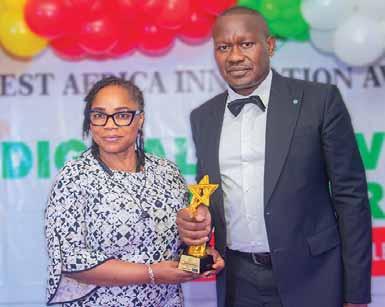
L-R: Department Head, Customer Experience, Keystone Bank Limited, Mrs
Ethiopian Airlines Group CEO Stated, “We are excited to expand our passenger flight network in the U.A.E. with the addition of Sharjah, a key economic hub in the United Arab Emirates. This new service complements our existing cargo operations and strengthens our connectivity to the Middle East. With enhanced travel options, our customers can now explore the UAE’s rich cultural heritage and dynamic business landscape with greater convenience.”
Kayode Tokede
Afriland Properties Plc has delivered another year of outstanding financial results, reinforcing its reputation for consistent growth and value creation amid a challenging economic climate.
For the financial year ended December 31, 2024, the company recorded a Profit Before Tax (PBT) of N3.7 billion, representing a 53per cent increase from the N2.41 billion reported in
the previous year. Profit After Tax (PAT) also rose by 51per cent to N2.6 billion, while operating profit climbed by 47per cent to N3.5 billion, reflecting sustained momentum in project development, project management, rental income, and revaluation gains on investment properties.
In line with its commitment to delivering shareholder value, the Board of Directors has proposed a total dividend of N865.56 million, equivalent to
63 kobo per ordinary share, a remarkable 152per cent increase from the N343.5 million paid out in the previous year.
These results were shared at the company’s 12th Annual General Meeting (AGM), which was held virtually in Lagos.
Chairman of the Board, Mr. Emmanuel Nnorom, in his remarks at the AGM, described the company’s performance as a reflection of strategic clarity and execution discipline.
“Afriland’s exceptional 2024
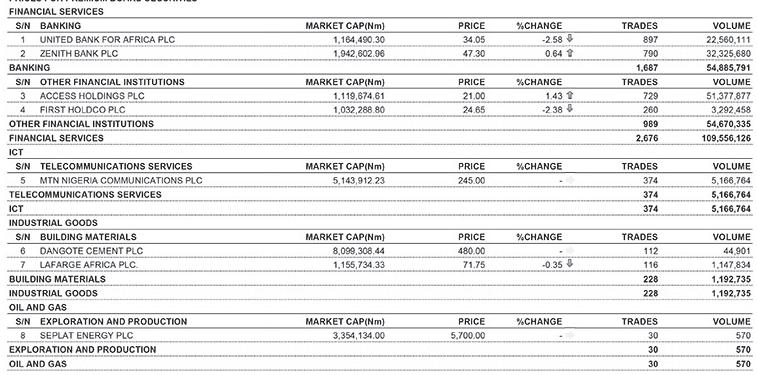
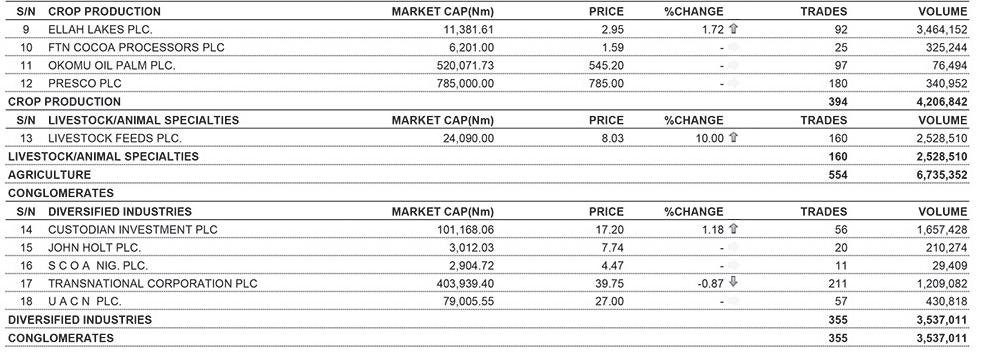
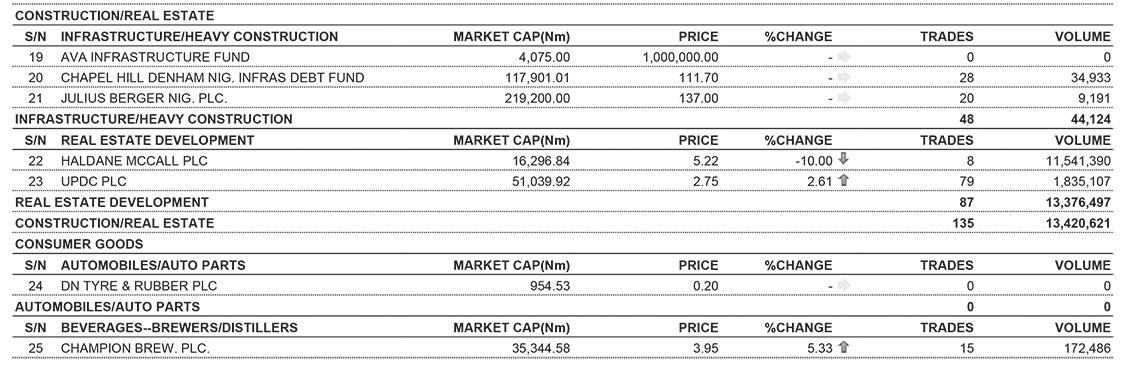
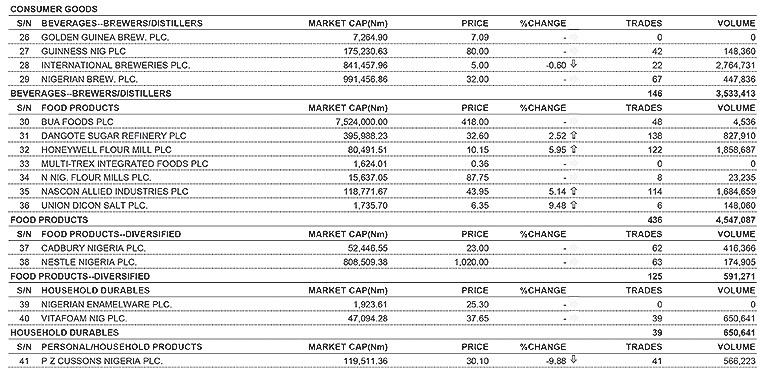

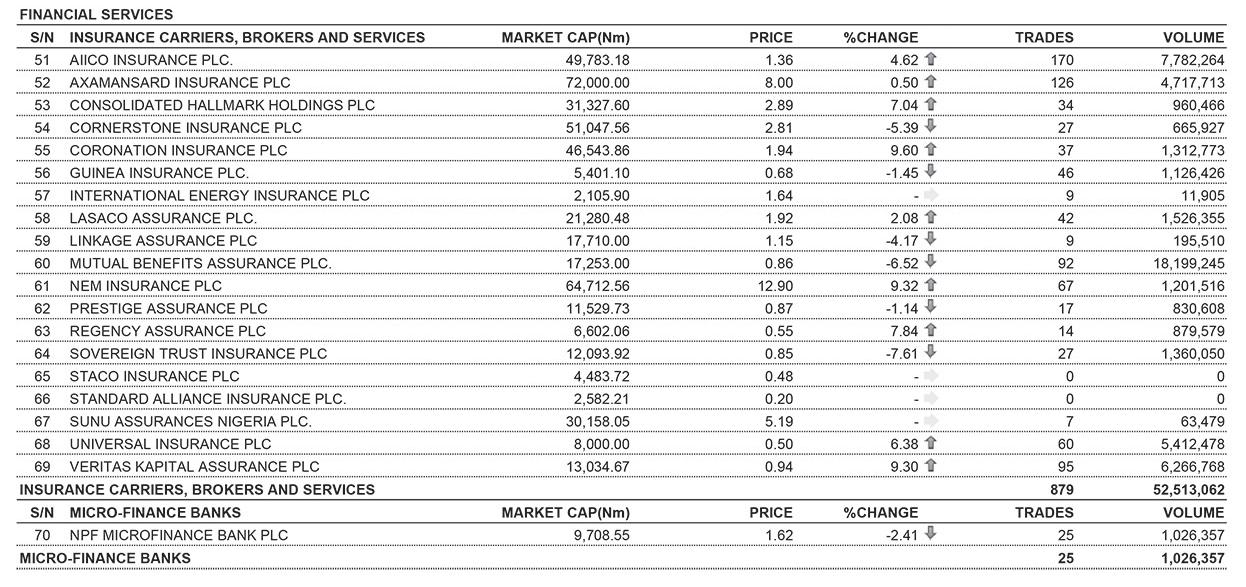
financial year was driven by deliberate execution and disciplined growth. These results speak to the strategic initiatives implemented throughout the year and the relentless efforts of our management team.
“We scaled operations across core business areas, enhanced asset value, and delivered meaningful returns despite macroeconomic headwinds. This performance underscores our commitment to shareholder value and long-term sustainability.”
Also commenting on the results, Managing Director/CEO, Afriland Properties, Mr. Azubike Emodi, attributed the strong performance to operational efficiency and team excellence while expressing confidence in the company’s future direction.
“These numbers clearly demonstrate the strength of our business model and the dedication of our team. We are sharpening our execution, accelerating project turnaround, and deepening market relevance
through smart, scalable developments.
A prime example is Afriland Estate, Karmo, a thoughtfully designed residential community in Abuja. It embodies our capability to deliver modern, efficient, and sustainable living environments aligned with Nigeria’s evolving housing needs. As we look ahead, we’re focused on unlocking new opportunities across the real estate value chain, and our project pipeline reflects this ambition.”


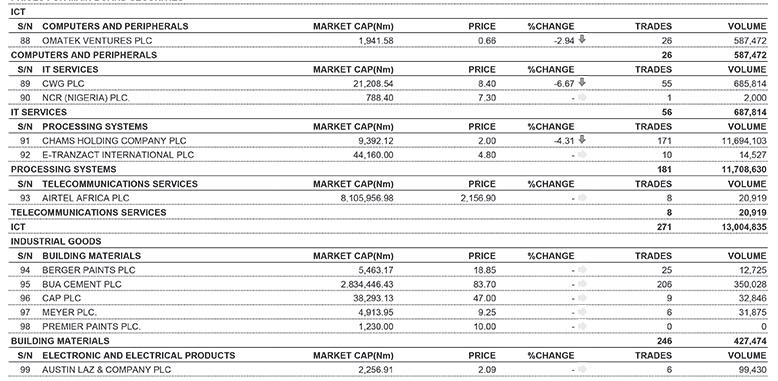
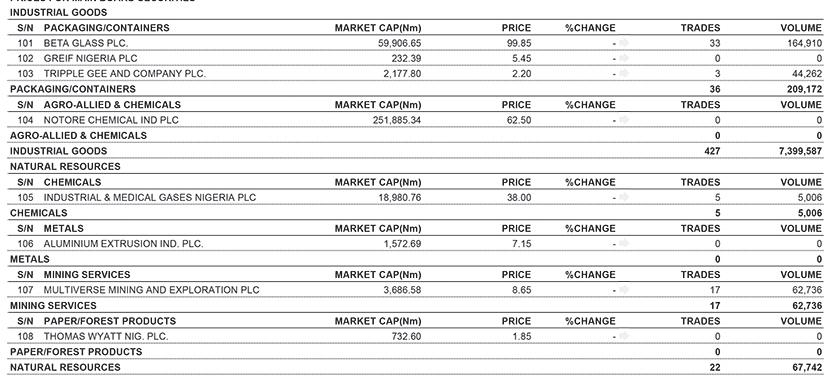
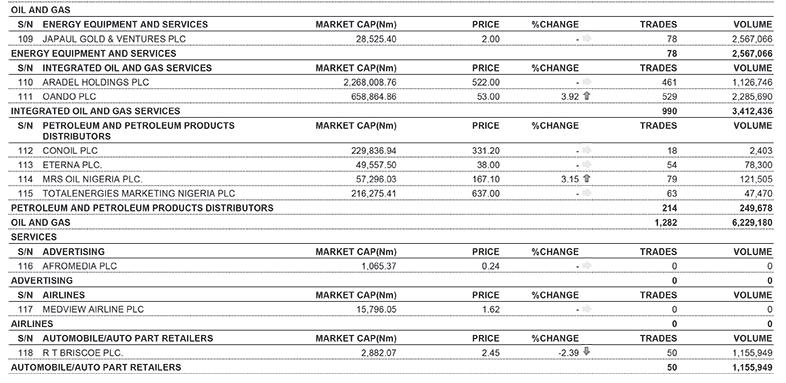
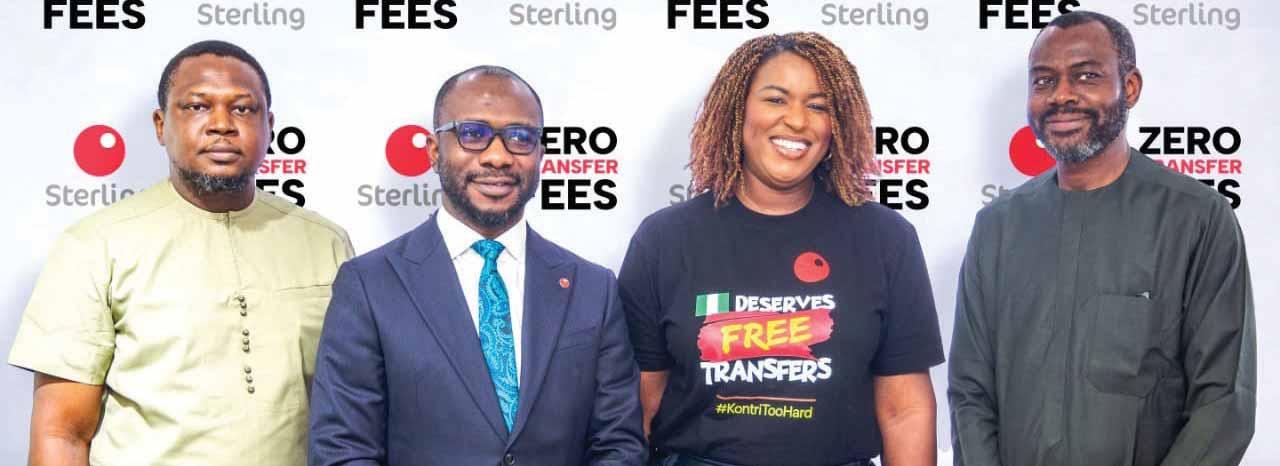
L-R: Maurice Igugu, Chief Marketing Officer, Sterling Bank; Obinna Ukachukwu, Growth Executive, Consumer and Business Banking Directorate, Sterling Bank; Uti Ellu, Group Head, Customer Experience Strategy, Sterling Bank; and Abubakar Suleiman, MD/CEO, Sterling Bank, at the official press conference to unveil the Zero Transfer Fee Policy in Lagos, last Friday
James Emejo in Abuja
Minister of Agriculture and Food Security, Senator Abubakar Kyari, had assured the North-East, and Nigerians in general, that the current administration remained committed to equitable agricultural transformation across the country.
The minister emphasised that the federal government's Special Agro-Industrial Processing Zone (SAPZ) programmes are meant for all Nigerians, assuring that "each and every state of the federation will be brought on board".
Kyari's assurances came against the backdrop of recent concerns by the members of the National Assembly Caucus of the North-East, that the region had been completely excluded from the SAPZ programme.
Speaking at a media briefing over
the weekend in Abuja, the minister said the federal government will continue to "listen, and we’ve heard the statements of the representatives of the North East and we assure you all that the SAPZ programme is for all Nigerians".
He said, "From the plains of the North-East to the riverine belts of the South-South, and from the cocoa-rich soils of the South-West to the food baskets of the NorthCentral, our agenda is one of shared prosperity, food security, and national development as envisioned by the Renewed Hope agenda of President Bola Ahmed Tinubu."
Kyari added that the Green Imperative Project (GIP) which was recently signed by the current administration remained another landmark programme that would deliver services to all states of the federation with planned agricultural
Says Abia
mechanization service centres across the 774 Local Government Areas.
While faulting the National Assembly caucus stance in the issue, the minister said, "On April the 8, we commenced the groundbreaking ceremony for the Design-Build-and Operate of the Kaduna Agro-Industrial Hub, and the Cross River AgroIndustrial Hub on the 10th of April 2025, which was the reference point for their worry and concern. But how did we get to this point of doing a representative signpost of a milestone in the project?
"We are glad that they acknowledged the very innovative nature of the SAPZ as a groundbreaking change in the agricultural development agenda and priority of President Bola Ahmed Tinubu.
"The SAPZ programme was launched in 2022 based on its
conceptual design of Phase 1 in 2019. This project is a federal government enabled initiative with subscription by the State Governments of the Federation."
Therefore, he explained that all state governments were expected to individually express interest in the programme.
Further clarifying the selection process, Kyari stated that in 2019, each state governor was notified in writing to express interest with an attached eligibility criteria that will enable them to participate in phase 1 of the programme.
Upon receipt of their expression of interest, a joint team comprising the Federal Ministry of Agriculture, Federal Ministry of Finance, and the Development Finance Institution, in this case the African Development Bank conducted a mission to each of the states to verify the fulfillment
Emmanuel Ugwu-Nwogo in Umuahia
Nigeria's former president, Chief Olusegun Obasanjo, has embarked on campaign for revalidation of the mandate of Governor Alex Otti come 2027, saying that Abia people should not let him go after his current tenure.
He launched his personal campaign for Otti's re-election, weekend, when he inaugurated a 46.36km highway linking Umuahia to the northern part of Abia, reconstructed by the Abia Governor after years of abandonment by past administrations.
of the eligibility criteria as a selection process.
He said at this stage eight states including Kaduna, Kano, Kwara, Oyo, Ogun, Imo, Cross River, and FCT qualified.
However, he noted that upon assumption of office by the Tinubu administration, "We reviewed development potential of this programme under the renewed hope agenda of Mr. President and decided that no state will be left behind.
"Consequently, the Vice President’s first international mission was to Rome, Food System Summit where he galvanizes more funding to enable us take more states.
"He also embarked on a second mission to the World Food Price meeting in Des Moines, Iowa, USA where he obtained a commitment of
$1 billion from the President of the African Development Bank (AfDB) for the sole purpose of bringing on board more states."
Therefore, the minister declared that the sweeping statement by the Caucus that “the North East was completely excluded” was not correct. He said, "We are also confident that more States will do the needful to fulfill the eligibility criteria to enable us capture them in the second tranche funding of Phase 2.
"I therefore also want to appeal to the legislators especially the North East NASS Caucus to appeal to the other governors of the North East namely Taraba, Yobe and Adamawa to reinvigorate their interest in the programme and to ensure they fulfil the eligibility criteria for the second phase."
NDLEA Arrests Malaysian Returnee with Illicit Drug in Music Speakers Meant for Sale in Adamawa, Cameroon
Michael Olugbode in Abuja
He reminded Abia people that they had been having leaders that didn't make impact before the coming of Otti hence they must bear in mind that one good turn deserves another.
"One thing you must know is that good leaders don't flock and when you get a good leader, like you have got in Dr. Alex Otti, you must maximise good use of him," the former President told Abia people.
The former President, who is a frequent visitor to Abia, especially the northern part of the state, testified to the hitherto unimaginable condition of the 46.36 - kilometre Umuahia - Uzuakoli
In his characteristic audacity Obasanjo said: "When the time comes for elections, my advice to the people of Abia State is, don't change a winning horse".
- Akara- Alayi - Abiriba highway.
"This road you are all talking about, I traveled on it to Abiriba. It was hellish," he said, adding that when he was told that the now reconstructed road "will get me from Umuahia to Abiriba in 35 minutes, I said this man called Alex Otti is a miracle worker".
The foremost Nigerian statesman profusely praised Otti, who had emerged from then unpopular Labour Party to become Abia's governor in 2023 and has proved that political party doesn't determine the performance of an elected leader.
"I am a witness to what you (Otti) are doing and urge you to keep doing what you are doing. If you look hard
Hammed Shittu in Ilorin
The Elites Network for Sustainable Development (ENetSuD), an anticorruption Civil Society Organization (CSO) in Kwara State at the weekend lauded the Supreme Court’s ruling that extended Freedom of Information Act to the 36 states of the federation and 774 local government councils in the country.
and wide, you will see that this governor does not lack a good team," he said.
Obasanjo recalled the condition of Abia before the emergence of Otti and how he has positively impacted on governance within a short period, noting that the Abia turnaround is a big lesson for Nigeria.
"This is a proof that whatever bad situation we are seeing today (in Nigeria), can be made good tomorrow (with good leadership)," Obasanjo stated.
"You (Gov. Otti) are a man of your word, a goal getter, a performer. You are a man who says no to what is bad and yes to what is good. You are an example of a leader," he added.
Operatives of the National Drug Law Enforcement Agency (NDLEA) have arrested a 41-year-old ex-convict and Malaysian returnee, Ndubuisi Udatu (aka Richard) with two giant music speakers used to conceal four large parcels of methamphetamine weighing 2.7 kilogrammes meant for distribution in two Adamawa’s town of Yola and Mubi, and across the border in Cameroon.
According to a statement on Sunday by the spokesman of the anti-narcotics agency, Femi Babafemi, Udatu was arrested inside a commercial transport bus at an NDLEA checkpoint at Namtari along Ngurore -Yola Road, Adamawa last Monday.
He was found with two new music speakers used to conceal four packages of methamphetamine and monetary exhibit of N22,300.
Udatu, in his statement, claimed he returned to Nigeria to continue his illicit drug trade after serving out his jail term in Malaysia where he had been arrested, convicted and sent to prison for drug trafficking offences.
injection, 2,160 ampoules of pethidine injection, and 330 ampoules of midazolam injection.
In Kano, NDLEA operatives last Friday arrested 27-year-old Aliyu Ibrahim with 20 ATM cards and 25,600 pills of tramadol 225mg and 250mg at Bachirawa area of Kano, while 48-year-old Gambo Lawan was nabbed in a follow up operation at Wazobia motor park, Gwagwalada FCT Abuja following the seizure of a consignment of 8,960 pills of tramadol by NDLEA officers on routine check along Gwagwalada expressway last Monday.
Not less than 124 kilogrammes of skunk, a strain of cannabis, packaged in 11 jumbo bags were last Friday recovered from the boot of a Lexus car marked KTU 54 CU driven by a suspect, Ademiluyi Adedapo, 58, along Mokwa-Jebba road, Niger State. He said the NDLEA commands across the country continued to balance their drug supply reduction operations with War Against Drug Abuse (WADA) social advocacy campaigns to schools, markets, worship centres and communities in the past week.
A statement issued in Ilorin and signed by the ENetSuD Coordinator, Prof. Alagbonsi Abdullateef, however called on the state government to be prepared to account for all its past, current, and future expenditures under the Freedom of Information (FOI) Act 2011 or be ready to always face legal actions.
not obliged to obey the FOI Act as it needs to domesticate the Act in the state.
the KWHA in the last 6 years.
ENetSuD expressed its difficulties in tracking projects executed by the successive KWSG due to the government’s position that KWSG is
The statement said: "This KWSG position led ENetSuD to pursue the domestication of the Act in the State, which Governor AbdulRahman AbdulRazaq-led KWSG and Danladi-led KWHA have conspiratorially killed for about 6 years.
"Now, we are very glad that the Supreme Court has terminated the conspiracy between the KWSG and
"The KWHA failed to make the minor amendment to the already-passed bill before the governor could assent to it, and the KWSG also failed to question the KWHA for not completing the minor amendment requested by the governor.
"This conspiracy succeeded for 6 years because it was a calculated attempt to prevent open governance, transparency, and accountability from the KWSG to Kwarans".
In another interdiction exercise, NDLEA officers in a joint border operation with Customs personnel at the Nigeria/Cameroon border, Mfum, Cross River State, arrested a trans-border drug trafficker, 35-year-old Odoh Ikechukwu, with 8,740 ampoules of assorted opioids, weighing 395 kilogrammes.
They include: 1,080 ampoules of fentanyl injection, 2,160 ampoules of morphine sulphate injection, 3,010 ampoules of phenobarbital sulphate
Meanwhile, the Chairman/Chief Executive Officer of NDLEA, Brig. Gen. Buba Marwa (Rtd), while commending the efforts of the officers and men of Adamawa, Cross River, FCT, Kano and Niger State commands of the agency for job well done, tasked them and their compatriots nationwide not to rest on their oars but continue to raise the bar in their offensive action against drug cartels with an equal measure of drug demand reduction efforts.
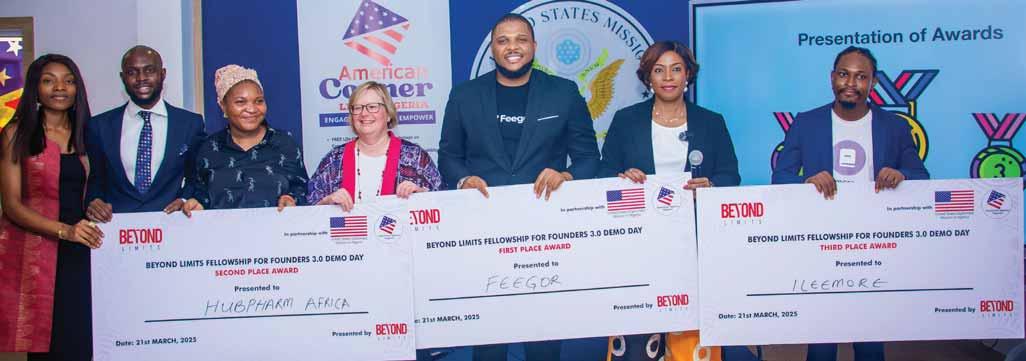
and
for
A 35-man delegation of Chinese business leaders have visited Nigeria with the purpose of investing in the country and establishing partnerships with Nigerian businessmen.
The visit facilitated by the PanAfrican Expansion Industrial Nigeria Ltd, saw the Nigeria-China Strategic Partnership (NCSP), hosting the delegation.
NCSP had earlier visited China to
promote Nigeria and invite Chinese investors to the country.
A statement by the NCSP at the weekend, read: “In line with the comprehensive strategic partnership between the Federal Republic of Nigeria and the People’s Republic of China, the Nigeria-China Strategic Partnership (NCSP) hosted a 35-man delegation of Chinese business leaders interested in investing and establishing partnerships in Nigeria.
“The delegation, whose visit was
facilitated by Pan-African Expansion Industrial Nigeria Ltd, comprised of companies with interests in Science and Technology, Mining, Construction, Real estate, Healthcare, Tourism and E-commerce.
“They were received by the Director-General of the NigeriaChina Strategic Partnership (NCSP), Mr. Joseph Olasunkanmi Tegbe. Mr Jason Zhu, the delegation lead, highlighted areas of desired investments in Nigeria, leveraging on
China’s industrial and technological advancements.
“While welcoming the delegation, the Director-General of the NigeriaChina Strategic Partnership (NCSP) noted that Nigeria offers a dynamic and increasingly attractive business environment, marked by significant growth and abundant opportunities for investment.
“As the largest economy in Africa, Nigeria significantly contribute to the continent's GDP, boasting a vibrant
Wale Igbintade
An Ogun State High Court sitting in Abeokuta has awarded N500 million in aggravated and exemplary damages against the traditional ruler of Ososa, Oba Adetoye Mojeed Alatishe, for defaming prominent businessman and Chairman of Rite Foods Nigeria Limited, Alhaji (Dr.) Sulaiman Adebola Adegunwa.
Justice E.O. Osinuga, who delivered judgment in the 2020 libel suit, held that no financial compensation could fully restore the damage done to Adegunwa’s reputation which the court found had been severely injured by defamatory publications that portrayed him as a felon, instigator, and saboteur.
In addition to the N500 million award, the court directed Oba Alatishe to publish retractions in three national dailies - ThisDay, The Punch, and
The Nation.
The suit stemmed from a 2019 petition authored by the traditional ruler and addressed to then-Governor Ibikunle Amosun, which was also sent to seven other senior state officials, including the Ogun State Commissioner of Police.
The petition accused Dr. Adegunwa of plotting to demolish the Oba's palace to build a market and convert the town’s market into a town hall - allegations the court found to be unsubstantiated and malicious.
The petition was later published in City People Magazine and Obanta Newsday, prompting Dr. Adegunwa to demand a public retraction - an appeal Oba Alatishe allegedly ignored.
In his suit, filed by senior advocate Mr. Sola Ojutalayo, Dr. Adegunwa contended that the defendant's petition and its publication in widely circulated media outlets were deliberately crafted
to damage his reputation among business partners, associates, and the general public.
Dr. Adegunwa, who holds the national honour of OFR and is recognized as a major employer and philanthropist in Ogun State, argued that the statements labeled him as a felon, saboteur, and a threat to peace in the community - descriptions the court found to be defamatory.
The defendant, through his counsel Otunba Kunle Kalejaye, SAN, argued that the contents of the petition were covered by qualified privilege and that he was not responsible for their publication in the media.
He also contended that the suit was defective for failing to join the publishers of the magazines as parties.
However, the court rejected these arguments. Justice Osinuga held that the defence of qualified privilege did
not apply, especially since the Oba admitted under cross-examination that his petition was motivated by personal disagreements with the claimant.
The court also noted the monarch failed to substantiate the claims in his petition, as he did not call any witnesses to corroborate the allegations.
Justice Osinuga remarked that as a community leader, Oba Alatishe should have sought dialogue or issued a retraction when requested, rather than allowing the dispute to escalate into litigation.
While the court agreed that the failure to join the publishers rendered the published articles inadmissible as direct evidence, it held that the act of sending the defamatory letter to multiple influential parties was sufficient to hold the monarch liable.
Hammed Shittu in Ilorin
General Overseer of House of Prayer Assembly (Basilica) Ilorin, Kwara State, Pastor Joseph Omorinoye, yesterday, distributed 1,000 bags of 10kg rice to church members in order to cushion the effect of current economic hardship in the country. Speaking in Ilorin during the church service to mark the Palm Sunday, Pastor Omorinoye, said that, the rice was a gift for Easter package and as well as to cushion in the effect of economic hardship in the country.
According to him, church members deserved special package to celebrate the Easter.
He said: “Today is Palm Sunday and I deem it necessary to support my members towards the upcoming Easter celebration.
“We have 1,000 bags of 10kg rice to distribute to members today because they deserve special package.
“We want every member to celebrate the resurrection of Christ Jesus with smile and hope".
He however advised members to always emulate Christ’s love and
not to be selfish with the multiple blessings they enjoy from Christ the savior.
The cleric also called on other men of God and religious leaders to always support their members and not just seek their financial support for church projects.
One of the church members, Mrs. Alice Abolarin, who spoke with THISDAY, commended the man of God for the rice gift.
She added that the cleric has always being supportive to every member.
“Omorinoye has been trying
for us every time. He always surprises us when we least expect. May God continue to bless Baba for us,” she said.
Another beneficiary, Mr. Emmanuel Afolabi, said the rice gift came at the right time as he was expecting his relatives to come and celebrate Easter with him.
“I am the happiest man. I am expecting my family members from Lagos to come and celebrate with me and have been thinking on how to get money for rice.
Thank God for Baba,” he said.
and resilient market and a business climate that benefits from a large and youthful population, a strategic geographic location, and a government dedicated to implementing reforms that enhance economic stability and investor confidence.
“He highlighted policies and programmes that investors can key into, including investment in Free Trade Zone to boost exports from Nigeria.”
Responding to questions, the DG emphasized that Nigeria is positioned to serve as the gateway to business across the African continent.
However, he urged the investors to prioritize local production, stating that Nigeria seeks to move beyond merely exporting raw commodities. Instead, the focus is on upgrading exports to value-added products.
He encouraged the delegation to bring advanced technology and manufacturing capabilities to support this goal, which aligns with the nation's industrialization aspirations.
The statement added that:
“Nigeria’s thriving technology sector stands as a beacon of opportunity.
The country has produced several tech unicorns, such as Andela and
Flutterwave, and continues to attract global investments.
“With China leading the way in technological innovation, deeper collaboration in this sphere offers immense potential. Strengthened cooperation between Nigeria and China would yield mutual benefits, including increased trade and investment, job creation, enhanced infrastructure and knowledge transfer.
“The Nigerian Investment Promotion Commission (NIPC) represented by Mrs. Victoria Aigbedion outlined the entry protocols for the investors to register their businesses, and the incentives they can take advantage of. She noted that the NIPC is committed to making the process timely and hitch-free.” Nigeria-China Strategic Partnership was established to drive Nigeria's socio-economic transformation through targeted Chinese investments, aligning with Nigeria's Renewed Hope Agenda and China's Belt and Road Initiative.
The event marked another significant step in deepening the Nigeria-China business relationships and is expected to foster a mutually beneficial cooperation between the two nations.
Adibe Emenyonu in Benin City
Edo State Government has said that all illegally acquired farmlands by some companies in the state would be revoked
The state deputy governor, Dennis Idahosa, who stated this in Benin City, when he received members of the Association of Cocoa Farmers, added that some of the farmlands were acquired through proxies.
In a statement by his Chief Press Secretary, Mr. Friday Aghedo, the deputy governor assured that due process would be followed at retrieving such lands back to the owners.
He particularly commended members of the association from Ovia South-West and Ovia North-East Local Government Areas of the state for being law-abiding in spite of the seeming challenges.
Idahosa reaffirmed the campaign promise of Governor Monday Okpebholo to farmers, maintaining that their welfare would be of topmost priority to the government.
This was just as he reminded them that having campaigned in the 18 local government areas of the state, the governor was aware of farmers' socio-economic contributions to their local government areas and the state in general.
He stated that by paying their taxes regularly to the state government, nobody would be able to take away their lands and due dividends. Idahosa highlighted that the government was putting things in place to minimise farmer/herder clashes as well as doing everything possible to make sure the lives of its citizens are secured.
Earlier, the cocoa farmers led by Mr. Bello Osaretin alleged that some civil servants from the ministry of agriculture and food security were conniving with some Chinese to sell the Ohosu and Okomu forest reserve. He claimed that over 40 major communities presently occupied by farmers in Ovia South West, would no longer be in existence if the present administration failed to intervene.
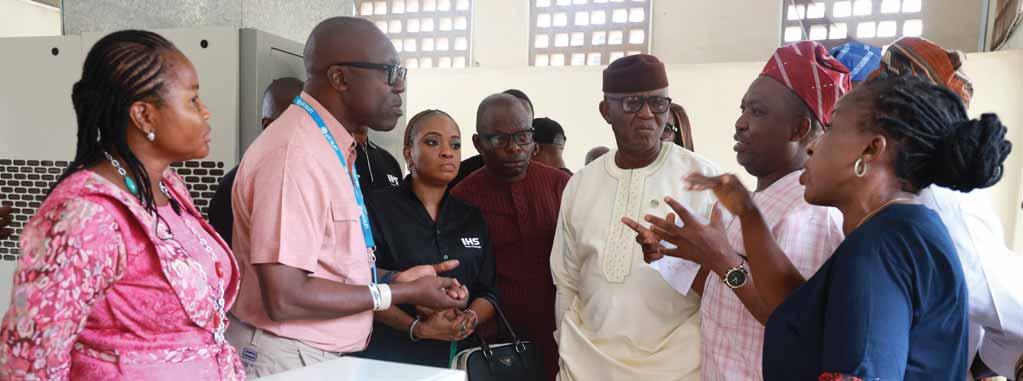
L-R: Dr Oluwakemi Shotayo, Head of Anaesthesia and Intensive Care Department, Olabisi Onabanjo University Teaching Hospital (OOUTH); Dr Olufemi Adeyemi, Health Specialist, UNICEF
Oguntuga, Director, Sustainability, IHS Nigeria; Ola Oresanya, Honourable Commissioner for Environment, Ogun State; Dr Oluseun Adeko, Chairman, Medical Advisory Committee (representing the Chief Medical Director); and Olukemi Fatukasi, Biomedical Engineer and Oxygen Plant Operator, OOUTH, during a courtesy visit and inspection of the oxygen plant donated by IHS Nigeria in collaboration with UNICEF to OOUTH in Sagamu, Ogun State… weekend
Folalumi Alaran in Abuja
The prevailing barrage of tariffs initiated by the United States of America may well be a blessing in disguise for African countries, the Minister of Solid Minerals Development, Dr. Dele Alake, has said.
Alake made the remark at a fireside chat session on Foreign Direct Investment (FDI) titled:
“The Alchemy of Foreign Direct Investment - Turning Policies into
Prosperity for Emerging Global Markets,” during the 14th edition of the AIM Congress held in Abu Dhabi, United Arab Emirates(UAE).
In his contribution to the chat on the impact of the tariffs on Africa’s economic climate, Alake called on African countries to adopt an introspective approach by looking inwards and adjusting their domestic policies to focus more on intra African trade, with little dependence on external forces.
“We need to organise our
economic imperatives to ensure a balance of trade and strengthen intra African trade among ourselves. The time is now,”he stated.
Referring to the bane of African countries whereby rare mineral resources are carted offshore without value addition, he said the past approach of “pit to port, when resources were extracted and siphoned outside of the continent,” can no longer prevail.
He added: “Interested investors who wish to come into Africa are
welcome to set up their factories in Africa, add value to our mineral resources and create jobs here, rather than just shipping our wealth out of our shores.”
His position on protecting Africa’s mineral wealth was adopted by many African countries, especially the minerals producing countries, of which he serves as the pioneering chair of the African Minerals Strategic Group (AMSG). Nigeria’s policy on the minerals sector development, he said, is strictly geared toward
Author and Public Affairs Commentator, Reno Omokri, yesterday urged Nigerians to trust recent data from Fitch Ratings, which upgraded the country's economic standing to Stable B, rather than believe Peter Obi’s pessimistic views.
In a note, Omokri explained that contrary to recent comments by the presidential candidate of the Labour Party (LP) in the 2023 general elections, the country's economy was gradually recovering.
“In the last 48 hours, Fitch Ratings upgraded Nigeria's economy to a Stable
B and cited the continued success of President Bola Tinubu's reforms as the rationale for that improvement. This comes 48 hours after Peter Obi said Nigeria's economy 'has collapsed'.
“There could not be a better response to ‘Agbotikuyo Bitter’ Obi than Fitch Ratings, the world's premier ratings agency. The last time Fitch adjusted our economic rating was on Friday, November 11, 2022, under General Muhammadu Buhari, when we were downgraded from a B to a B-.
“If you read the actual bulletin of the upgrade, Fitch listed the indication rate,
which reduced seismically from 34.80 per cent to 24.48 per cent in February 2025. They also hinted at our new and improved net foreign reserve position, which increased from an all-time low of $3.99 billion under General Buhari in 2023 to $23.11 billion,’’ Omokri stated.
He added that the fact that the Central Bank of Nigeria (CBN) declared a ‘record-breaking’ surplus of $6.83 billion for the fiscal year 2024, whereas the same bank reported a N488 billion ($1.7 billion) deficit in the first quarter of 2020, is a sign that Tinubu is doing well.
Additionally, he stated that Fitch traversed Nigeria's 3.84 per cent Gross Domestic Product (GDP) growth in 2024, which he argued was one of the world's best.
“ Also taken into effect was the phenomenal increase in foreign exchange inflow, which went from $3.68 billion in the last quarter under Buhari to $27.81 billion in Q4, 2024. So, my question to Peter Obi is this: Can Agbotikuyo cite the data he has that led him to conclude that Nigeria's economy has collapsed?” Omokri asked.
Onyebuchi Ezigbo in Abuja
Ahead of the November 8 governorship election in Anambra state, former governor and Minister of Labour and Employment, Senator Chris Ngige has expressed support for the incumbent governor, Prof Chukwuma Soludo.
This came just as the Anambra state government has said that it is working on a deal with a Chinese Construction firm for the building of modern intercity railway infrastructure in the state.
While endorsing governor Soludo for election as governor for the second term, Ngige said: "I came, I saw and I confirmed, Soludo has performed well".
Ngige who made the endorsement at the Town Hall meeting with Anambra state indigenes in Abuja yesterday, humorously told Soludo to "Carry Go".
In his own endorsement, former National Publicity Secretary of the Peoples Democratic Party (PDP),
Chief Olisa Metu, said he confirmed from the development strides made by governor Soludo in Anambra state that he's the best of the best.
He also praised the governor's efforts at ensuring security and peace in the state. "For me and my family, we are for you now and forever "he said.
Ex-minister of Police Affairs, Simon Okeke while pledging support for the governor's second term bid, promised to help attract investors to the state.
Many notable indigenes of Anambra state, including industrialist, Chief Emak Offor, presidents and executive members of town union branches in Abuja graced the event. In his remarks, Offor enjoined the people of the state to eschew partisan politics and support the governor in his quest for genuine development of the state.
Anambra state governor, Soludo who used the opportunity to reel out his government's achievements
during a Town Hall meeting with indigenes of the state in Abuja, said that he is implementing five pillars of development agenda for Anambra state.
He said that there are plans for the development of three smart cities in Awka, Onitsha and with all the requisite infrastructure.
According to Soludo, the administration has so far exceeded the promises made to the people and has cut the cost of governance by 80 per cent, giving value for every fund it spent.
"We envision turning Anambra state from a departure lounge to a place of destination through well planned infrastructure development. We are implementing five key pillars of the development agenda in Anambra state,” he added.
The governor said that his government deliberately decided to eschew politics with the development needs of the people, adding that
the strategy is to connect various communities with quality access roads and other basic infrastructure.
Three new cities are already designed and awaiting infrastructural development namely; Awka, Onitsha and New Onitsha in newly acquired land across the Niger River towards Ogbaru to build a commercial logistic hub, he added.
He invited wealthy businessmen from Anambra state who are interested to invest in the state and spoke of the redesigning of the area harbouring the old Governor's Lodge in Amawbia into a modern ICT hub in the coming months.
“After three years of steady progress, it is fair to say that Anambra is on the rise. The road ahead is challenging but brighter. We are changing gears and accelerating. This summary report highlights some nuggets and points in the direction we plan to change,” he stressed.
value addition and boosting the local economy through job creation.
Other participants who spoke at the fireside chat included: Zaher Al Qatarneh, Secretary General of Jordan Ministry of Investment, Goncalo Terenas, Co-founderDiaspora Prime Portugal, and Vadim Tretyakov, Minister of Investment and Development of the Sverdlovsk Region.
During the Congress, Alake toured the exhibition platform where Nigeria was represented by the Solid Minerals Development Ministry, Solid Minerals Development Fund (SMDF), and Zamfara State government.
He also visited the booths of the private business groups from Nigeria, such as the Women Enterprise Alliance and Ghana’s
Jant’s Fashion Collection. The AIM Congress welcomed thousands of top government leaders from around the world, including corporate leaders, technology innovators, and sundry financial institutions and experts.
The aim of the yearly congress is to “ignite positive transformation by creating investment opportunities, upholding solidarity and developing economic relations among nations.”
The yearly AIM Congress took place at the impressive Abu Dhabi National Exhibition Centre under the broad theme: “Mapping the Future of Global Investment: The New Wave of a Globalized Investment Landscape - Towards a New Balanced World Structure.”
Withdraw ‘Repressive Bill to Regulate Bloggers or Face Legal Action’, SERAP tells Akpabio, Abbas Chuks Okocha in Abuja
Socio-Economic Rights and Accountability Project (SERAP) has urged the Senate President, Godswill Akpabio, and Speaker of the House of Representatives, Tajudeen Abbas “to immediately withdraw the repressive bill for an act to amend the Nigeria Data Protection Act 2023, which seeks to regulate the activities of bloggers operating within the ‘territorial boundaries of Nigeria.’”
SERAP urged Mr. Akpabio and Mr. Abbas “to ensure that any amendment to the Nigeria Data Protection Act promotes and protects the rights of bloggers and other journalists and does not undermine the fundamental human rights of Nigerians.”
SERAP also urged Mr. Akpabio and Mr. Abbas “to end the imposition of unnecessary restrictions on the rights of Nigerians online and Internet-based content.”
There is currently a bill titled “A Bill for an Act to Amend the Nigeria Data Protection Act, 2023, to Mandate the Establishment of Physical Offices within the Territorial Boundaries of the Federal Republic of Nigeria by Social Media Platforms and for Related Matters” (the “bill”).
The bill among others seeks to regulate bloggers including by requiring all bloggers to register local offices and join recognised national association for bloggers. The bill has passed its first and second reading in the Senate.
In the letter dated 12 April 2025 and signed by SERAP deputy director Kolawole Oluwadare, the organisation said: “This bill is a blatant
attempt to bring back and fast-track the obnoxious and widely rejected social media bill by the back-door.
“If passed, the bill would also be used to ban major social media platforms - including Facebook, X (formerly Twitter), Instagram, WhatsApp, YouTube, TikTok, and independent bloggers if they ‘continuously fail to establish/register and maintain physical offices in Nigeria for a period of 30 days.’”
The letter, read in part: “Lawmakers should not become arbiters of truth in the public and political domain. Regulating the activities of bloggers and forcing them to associate would have a significant chilling effect on freedom of expression and lead to censorship or restraint.
“The bill may also be used to block access of Nigerians to social media platforms. Blocking access to social media platforms is a flagrant violation of fundamental rights.
“In addition to infringing on Nigerians’ right to access to information and digital technology, the proposed bill would also severely hamper business operations in the country, as many are reliant on foreign tools, services and technologies for their operations, as well as other sectors that rely on online information.
“The bill would force international tech companies out of the Nigerian information landscape by requiring them to establish/register and maintain physical offices in the country. It would violate the requirement that the right to freedom of expression applies ‘regardless of frontiers.

Farah drags Tinubu, Akpabio, Ibas, others to court over Fubara’s suspension FHC grants substituted service orders, fixes hearing for May 12 HURIWA condemns systematic pulling down of democratic structures in state
The House of Representatives will tomorrow inaugurate a 19-man ad-hoc committee on Rivers State oversight in furtherance of its constitutional mandate and commitment to transparent governance. Spokesperson of the House, Hon. Akin Rotimi, said this followed the resolution of the National Assembly approving the proclamation, with amendments, of President Bola Tinubu, declaring a State of Emergency in the state.
The decision came as a Federal High Court sitting in Port Harcourt, the Rivers State capital, fixed May 12 for substantive hearing in a suit filed by former national and state assembly member, Dr Farah Dagogo, against the suspension of both Governor Siminalayi Fubara and the state Assembly members.
To forestall difficulties in serving the defendants personally, the court also granted an order for substituted services and fixed May
12 for hearing. At the same time, Human Rights Writers Association of Nigeria (HURIWA) lambasted the Rivers State sole administrator, Vice Admiral Ibok Ete-Ibas (rtd), for allegedly demolishing al democratic structures in the state.
The House said the proclamation presented to the National Assembly by Tinubu was subjected to rigorous legislative consideration and duly amended to strengthen democratic safeguards and uphold the principles of checks and balances.
Rotimi stated, “One of the most consequential amendments was the designation of the National Assembly – rather than the Federal Executive Council – as the oversight authority for all regulations issued under the emergency arrangement.
“In line with Section 5 of the State of Emergency (Rivers State) Proclamation, 2025, and pursuant to Section 11(4) of the Constitution of the Federal Republic of Nigeria, the House has constituted a dedicated Ad-Hoc Committee
Yinka Kolawole in Osogbo
Osun State Governor, Ademola Adeleke, has directed the state Commissioner of Police, to stop ongoing imposition of illegal taxes on market operators and forgery of council documents by some court-sacked Yes/No council chairmen, describing the development as inimical to sustenance of law and order at the grassroots.
The governor further instructed the police Commissioner to invite the affected council chairmen for questioning for falsifying council documents, collecting dubious revenue through illegal documents and for imposing and collecting illegal revenue from market operators.
Citing various reports of such illegality especially from Boripe local government, the governor said such activities not only breached clear provisions of the law but also constituted an affront to the judiciary, to which the APC has filed an appeal over the sacking of its Yes/ No chairmen.
The governor, in his directive to the police commissioner, cited Boripe Local Government where the
court-sacked chairman inaugurated a revenue taskforce which forged and printed out some council documents purportedly for internally generated revenue (IGR).
The governor noted that the same illegal taskforce officials had begun to issue the fake documents like local government Identification letters, market revenue receipts etc. to the members of the public, directing the police commissioner to intervene before any breakdown of law and order.
Adeleke has further directed his Special Adviser on Security to liaise with the police Commissioner for the implementation of the directive as he expressed shock at the brazen imposition of hardship and pains on the people through illegal revenue and tax collections.
“Is this the reason for illegal occupation of local government secretariats? Is this all about extorting the people and imposing pains and suffering on them? This should stop forthwith.
“We alert the public to this new round of illegality on a subjudiced matter. I have directed the police authorities accordingly.
to monitor implementation and ensure that governance in the state remains within the bounds of constitutionalism and rule of law.”
The spokesperson stressed that the development underscored the resolve of the House to uphold the supremacy of the constitution and ensure that the extraordinary measures undertaken during the emergency period remained subject to legislative oversight, guided by transparency, accountability, and the best interest of the people of Rivers State.
Rotimi said members of the committee included Professor Julius Ihonvbere, as Chairman, and Hon. Ali Isa, as Deputy Chairman.
Others were Hon. Isiaka Ibrahim, Hon. Idris Wase, Hon. Aliyu Betera, Hon. Sada Soli, Hon. James Faleke, Hon. Igariwey Enwo, Hon. Shehu Rijau, Hon. Wole Oke, Hon. Akarachi Amadi, Hon. Patrick Umoh, and Hon. James Barka.
Also on the committee were Hon. Alex Egbona, Hon. Isa Anka, Hon. Amos Daniel, Hon. Erhiatake Ibori-Suenu, Hon. Onuh Blessing, and Hon. Fatima Talba, while the head of secretariat was Professor Jake Dan-Azumi.
Farah Drags Tinubu, Akpabio, Ibas, Others
A Federal High Court sitting in Port Harcourt fixed May 12, 2025 for substantive hearing in a suit filed by Dagogo against the suspension of Fubara and the Rivers State House of Assembly members.
In the case with Suit No: FHC/PH/CS/50/2025, before Honourable Justice Adamu Turaki Mohammed, the plaintiff, Dagogo, who was a governorship aspirant in the 2023 elections, had on Wednesday, April 9, 2025 approached the court.
He sought reliefs connected to actions bordering on the declaration of a State of Emergency in Rivers and consequent suspension of the governor and members of the state House of Assembly, involving President Bola Tinubu, the senate president, Senator Godswill Akpabio, the Senate of the Federal Republic, Speaker of the House of Representatives, Hon Tajudeen Abass, and Vice Admiral Ibok-Ete Ibas (Rtd), the recently installed sole administrator for Rivers State.
In the motion ex-parte filed on April 8, 2025, the plaintiff’s legal team, led by C. I. Enweluzo, a Senior Advocate of Nigeria (SAN), requested the court to grant
permission for substituted service of the originating summons and other related court processes. This was necessitated by difficulties in serving the defendants personally.
Mohammed, after reviewing the affidavit sworn by Solomon Ayotamuno, a litigation assistant at Liberty Chambers, and hearing arguments from the plaintiff’s counsel, including Femi Adegbite Esq, Monday Dayi Esq, Daso Jack, and D. Bakweri Esq, granted the application and further directed that a hearing notice be issued, and the case adjourned till May 12 for substantive hearing.
The court also ordered that all relevant court documents be served on the defendants through DHL courier service to their last known addresses.
HURIWA Condemns
Demolition of Democratic Structures in Rivers
Human rights group, Human Rights Writers Association of Nigeria (HURIWA), reprimanded Vice Admiral Ibok Ete-Ibas (rtd) for demolishing democratic structures in Rivers State.
HURIWA said the unlawful act included tearing down the official
portraits of the democratically elected governor, Siminialayi Fubara, from public buildings.
HURIWA stated that the attempt by the military administrator to sneak his way into the office of the civilian elected and inaugurated executive head of the government of Rivers State should be resisted by all the good people of the state who voluntarily and willingly donated their democratic mandate to Fubara, who remained the validly elected governor of Rivers State.
In a statement by HURIWA’s National Coordinator, Emmanuel Onwubiko, said, “We in HURIWA and about 36 other registered nongovernmental organisations, reject this unconstitutional overreach and the systematic power grab effort by someone, who proudly told us that he served Nigeria for 40 whole years and was unblemished before he left the military as the nation's naval chief.
"We in HURIWA and our 36 affiliates, are by this media advisory asking the retired Naval General Ibok Ete-Ibas to preserve his good name and reputation by rejecting his current politically charged assignment that is completely against the spirit, the principle and the essence of the Grundnorm. We urge him to stop being used to destroy democracy in Rivers
He sacrificed all for sports, country, Obi declares
Chuks Okocha and Sunday Aborisade in Abuja
President of the Senate, Godswill Akpabio has described the death of a former captain of Nigeria's Men's National Football team, the Green Eagles, Mr Christian Chukwu, as the loss of a national and international football icon.
At the same time, presidential candidate of the Labour Party in the last general election, Peter Obi, said he sacrificed all for football and country.
Akpabio stated in a statement by his Special Assistant on Media, Mr Jackson Udom, said, "We mourn the loss of a Nigerian football icon; Christian Chukwu. As a pioneering
defender and former Green Eagles captain, he etched his name in the annals of Nigerian football history.
"His leadership, skill, and dedication inspired countless fans and paved the way for future generations. I'm deeply saddened by his passage. He was a legendary Nigerian footballer. His contributions to Nigerian football are immeasurable.
"As a pioneering defender and former Green Eagles captain, he etched his name in the annals of Nigerian football history. His leadership, skill, and dedication inspired countless fans and paved the way for future generations.
Obi in his X post, said, the late captain of Green Eagles sacrificed
for football and in service for his country, Nigeria.
''I am deeply saddened by the news of the passing to the greater glory of Christian Chukwu, one of Nigeria’s greatest football icons.'
''Fondly known in football parlance as 'Field Marshal' and ‘Chairman’, he was not just a remarkable footballer but also an extraordinary leader who captained and coached the national team and his beloved club, Rangers International of Enugu, with distinction.
''His skill, discipline, and dedication to the beautiful game brought pride to our nation and joy to millions of fans across Africa and beyond.
''Beyond his playing days, Christian Chukwu continued to serve the game as a coach and mentor, nurturing young talents and contributing immensely to the development of football in Nigeria.
''His life was marked by resilience and patriotism, and his legacy will remain a shining example of what it means to represent one’s country with honour and integrity,'' he stated He also lamented the death of another footballer, saying, ''Just a few weeks ago, Rangers suffered another profound loss, with the death of another Captain, Christian Isiadinso, who passed away in March. ''Christian Chukwu and Christian Isiadinso sacrificed everything for sports and our nation, both embodying the spirit of resilience and patriotism.”
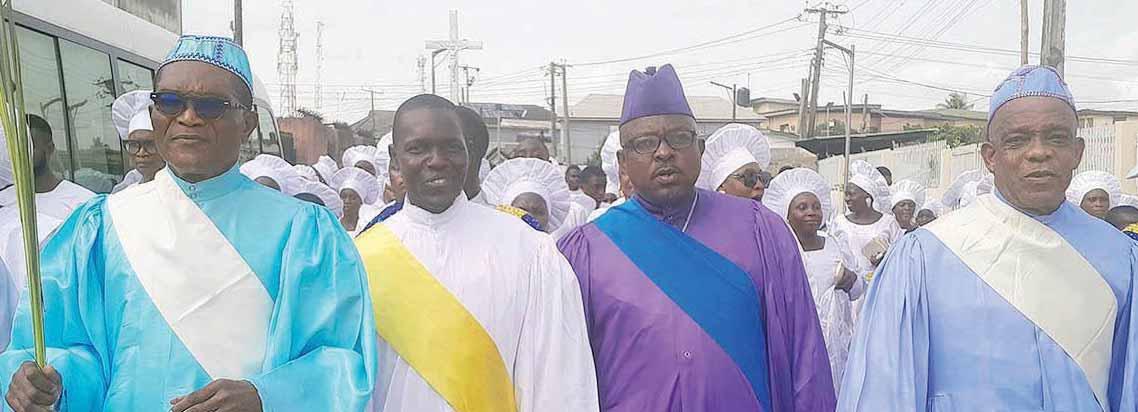
Deji Elumoye in Abuja
The presidency has disclaimed several campaign billboards promoting President Bola Tinubu and Vice President Kashim Shettima ahead of the 2027 general election, warning that such actions violated the nation’s electoral laws.
featured images of President Tinubu and Vice President Shettima.
Special Adviser to the President on Information and Strategy, Bayo Onanuga, in a statement, expressed dismay over the billboards, especially in cities like Abuja and Kano, which
Alex Enumah in Abuja
The International Press Institute (IPI) Nigeria, has announced the appointment of prominent media personalities into its standing committees, as part of efforts aimed at promoting Press Freedom and responsible journalism in Nigeria.The committees, according to a statement by the IPI's Secretary, Ahmed Shekarau, include Fundraising, Programming, Advocacy, and Membership, with each comprising seasoned industry professionals.
The statement noted that among the appointees are; Minister of Information and National Orientation, Alhaji Mohammed Idris; Senior Special Assistant to ex-President Muhammadu Buhari on Media and Publicity, Garba Shehu; former President of the Nigerian Guild of Editors (NGE), Funke Egbemode; former Managing Director of Champion Newspapers, Mr Emma Agu; and former Provost of the Nigerian Institute of Journalism (NIJ), Mr Gbemiga Ogunleye.
The statement added that the Fundraising Committee has Egbemode as chairperson and Yusuf Alli, Managing Editor, Northern Operations, The Nation, as secretary, while minister of Information and National Orientation, Idris, Shehu and four others are members.
Also, the Programming Committee has Mr. Oladotun Oladipo as
chairman and Hajia Sani, Director, Digital Media at Voice of Nigeria (VON), as secretary. The Advocacy Committee has Mr Tobi Soniyi, Media Adviser to the Chief Justice of Nigeria (CJN) as Chairman and Peoples Daily Newspaper Features Editor, Ochiaka Ugwu, as secretary.
Similarly, the Membership Committee is chaired by Ruqayyah Yusuf Aliyu, Associate Professor at Bayero University Kano with Linda Dooyum Kpum, IPI Nigeria’s Administrative Secretary, as secretary.
According to the statement, while the Fundraising Committee will plan, coordinate, and execute fundraising activities to support IPI Nigeria’s programmes, the Programming Committee will design initiatives and develop compelling programmes aligned with IPI Nigeria’s objectives.
"The Advocacy Committee will provide strategic direction for IPI Nigeria’s advocacy efforts, promoting press freedom and engaging with public officials on key policy issues.
"The Membership Committee will focus on attracting new members, assessing applicants’ qualifications, and enhancing member engagement", the statement read in part.
IPI Nigeria President, Musikilu Mojeed, stated that the reconstitution of the committees aims to accelerate efforts in safeguarding press freedom and promoting responsible journalism practices in Nigeria.
“While President Tinubu and Vice President Shettima greatly appreciate their teeming and loyal supporters… the two leaders do not support any campaign that breaches the laws of the land,” the release stated.
Onanuga stresseded that the Electoral Act forbids premature campaigns ahead of elections, warning that such activities could
erode the credibility of the democratic process and confer unfair advantages.
“As law-abiding leaders, President Tinubu and Vice President Shettima do not support any action that undermines our institutions and the electoral process,” he stated.
The presidency clarified that President Tinubu has not endorsed or authorised any individual or group to commence campaign activities in any form — including billboards,
print, digital, radio, or television platforms — and urged those behind the unauthorised promotions to desist immediately.
The statement reiterated the administration’s current focus on governance, noting that President Tinubu and Vice-President Shettima remained committed to their mandate, with emphasis on economic revitalisation, human capital development, infrastructure
renewal, social investment, and national security.
“Until the Independent National Electoral Commission (INEC) sets the timetable for the 2027 elections, the president has not authorised any campaign for his re-election,” Onanuga said. The release added that President Tinubu would communicate his political intentions at the appropriate time, in accordance with the law.
Emmanuel Addeh in Abuja and Peter Uzoho in Lagos
Seplat Energy Plc, a Nigerian independent company, has said it will raise gas supply to the domestic market from its over 850 Million Standard Cubic Feet Per Day (MMSCFD) of gas installations currently, after the acquisition of Mobil Producing Nigeria Unlimited (MPNU).
The company also restated its commitments to energy sustainability as it impacts people, environment and corporate governance, stressing that its focus is long-term with dividends accruable beyond today.
The Chief Operating Officer, Seplat Energy, Mr. Samson Ezugworie, stated this at the Society of Petroleum Engineers (SPE) Nigeria Council 2025 Oloibiri Lecture Series and Energy Forum (OLEF) held in Abuja, according to a statement issued yesterday.
Ezugworie, who spoke on the forum’s panel session titled:
"Driving Energy Sustainability Through Technology, Policy, and Supply Chain Excellence", maintained that business sustainability is about vision and building a future one may not benefit from.
He likened sustainability to the human race and many challenges that have confronted it; amongst which is energy poverty in Nigeria, which he stressed had limited the potential of the country and its people.
Speaking on Seplat Energy’s effort at addressing energy poverty in Nigeria, Ezugworie noted that over 850 MMscfd of gas installations have been achieved in-country, excluding capacities from the recently acquired MPNU assets.
“Over the years, we have currently installed over 850MMscfd of gas geared towards supplying gas to domestic users in Nigeria. With the recent acquisition of the MPNU assets, we will now begin to explore and exploit other growth options. We are going to go into the mass gas
reserves of that asset and still ensure that we use a significant part of that to power Nigeria,” the Seplat Energy COO said.
He said the panel’s theme which was around energy sustainability, technology, policy and supply chains was centred around human beings and building the right capacities to drive growth and developmental progress.
“Early this month at Seplat Energy, 50 young graduates just resumed employment and they are undergoing diverse training at the moment. For us, this is capacity development; making sure that we have the funnel of talents that will replace us in due course. This is sustainability,” Ezugworie affirmed.
Highlighting what Seplat Energy had done in the deployment of technology in Nigeria’s gas space, the Seplat Energy COO said the company’s various interventions have been transformational.
He said Seplat has implemented its end of routine flaring roadmap, which includes
investments across its production facilities to minimise Scope 1 & 2 greenhouse gas emissions and improve overall energy efficiency.
"For instance, the first module of Seplat’s Sapele Integrated Gas Plant (SIGP) has commenced operations and is now producing. Once the plant is operating at capacity, expected during 2025, it has the potential to materially reduce the Group Scope 1 emissions.
"Other ongoing key flare-out projects, including the Western Asset Flares Out (installation of vapour recovery unit compressors), Sapele LPG Storage & Offloading Facility, Oben LPG Project and Ohaji Flares Out Project. The Company is on track to end routine flaring of gas across its onshore assets in 2H 2025", Ezugworie recounted.
He also highlighted Seplat Energy’s strong commitment in delivering Corporate Social Investment initiatives in health, education and access to energy sustainably in Nigeria.
Blessing Ibunge in Port Harcourt
Troops of 6 Division, Nigerian Army, have arrested 28 suspected oil thieves, thwarting several attempts at reestablishing new illegal bunkering camps in the Niger Delta region.
This is as the Nigerian Army has encouraged youths of the region to enroll into its regular courses, especially Rivers State indigenes.
In a statement yesterday, by the Acting Deputy Director, 6 Division
Army Public Relations, Lt Col. Danjuma Jonah, the troops disclosed that they had dismantled 18 illegal bunkering sites, and recovered over 72,000 litres of stolen products across the region.
Danjuma, who stated that the achievement was made between April 7 to 13, 2025, explained that it was an effort aimed at sustaining the crackdown against economic sabotage and associated crimes in the region.
He stated: "In Rivers State, troops scaled up operational activities,
which effectively thwarted attempts by the criminals to set up new illegal bunkering sites. This was evident around Joinkrama 4 Forest in Ahoada West Local Government Area, where welding and cutting machines, with several newly constructed drums were recovered".
The Army spokesperson explained also that following credible intelligence, troops raided De Tropicana Hotel in Ahoada West LGA and intercepted two Toyota Camry vehicles with over 1,300 litres of illegally refined Automotive
Gasoline Oil (AGO) in sacks, adding that the drivers abandoned their vehicles and fled.
"Around Krakrama Wellhead 12 at Bille in Degema LGA, 3 suspects were arrested at the site in an attempt to compromise the facility. Furthermore, troops combed the area and recovered three wooden boats loaded with over 1,500 litres of stolen crude.
In the follow-up operations conducted at the Wellhead 12, four suspected vandals were arrested. Several operations
were also conducted in Okarki, with a number of equipment used for illegalities demobilised."
Similarly, clearance operations were said to have been conducted at the fringes of Imo River with 6 illegal refining sites deactivated, 41 drum pots, 18 drum receivers destroyed and 540 sacks filled with over 11,000 litres of stolen products recovered.
It was learnt that troops also thwarted several attempts by the economic saboteurs to re-establish
their nefarious hubs at the fringes of the Imo River, with seizures as well as various newly constructed drum pots and receivers destroyed. Danjuma said: "In Delta State, along Koko - Obitigbo road, troops intercepted canter trucks, Ford bus and fuel tanker conveying over 25,200 litres of stolen products. Additionally, in a separate operation conducted, a fuel tanker conveying over 10,000 litres of stolen crude was intercepted at Koko.

L-R: Governor of Edo State, Monday Okpebholo; National Chairman, All Progressives Congress (APC), Umar Ganduje; National Publicity Secretary, APC, Felix Morka; Senator representing Delta North Senatorial District, Ned Nwoko, and Deputy President of the Ninth Senate, Ovie Omo-Agege, when members of Delta Unity Group defected to APC in Agbor, Delta State…recently
Linus Aleke in Abuja and Yinka Olatunbosun
Nobel Laureate, Prof. Wole Soyinka has frowned on the ban declared by the National Broadcasting Service (NBC) on rapper, Eedris Abdulkareem’s song, “Tell Your Papa.”
But the National Broadcasting Commission (NBC) had, on Wednesday, April 9, 2025, directed radio and television stations operating in the country to stop airing the protest song.
However, Soyinka in a press release dated April 13, 2025, described the action by NBC
In the song, Eedris is sending a message to son of President Bola Tinubu, Seyi Tinubu, urging him to tell his father that Nigerians are suffering because of his economic policies.
Yinka Kolawole in Osogbo
A Chieftain of the All Progressives Congress (APC) in Osun state, Hon. Olatunbosun Oyintiloye, has appealed to President Bola Tinubu to urgently tackle the recent upsurge in kidnapping and other security challenges confronting the country.
Oyintiloye made the remarks while speaking with newsmen yesterday in Osogbo.
He said that the gains that the security agencies had recorded in the fight against
insecurity under the present administration should not be allowed to slide away.
Oyintiloye, a member of the defunct APC Presidential Campaign Council (PCC) said that the recent upsurge in kidnapping across the country was now a source of concern to Nigerians.
While commending the president and the security agencies in the fight against insecurity in the country, Oyintiloye said that the recent wave, especially kidnapping needed urgent attention.
Ayodeji Ake
Industry leaders across banking, insurance, and financial technology have underscored the imperative of strategic partnerships and technological integration to enhance financial accessibility in Nigeria.
The call to action was a focal point at the 14th West Africa Innovation Awards, where stakeholders convened to explore solutions for advancing digital transformation in the region’s financial ecosystem.
The theme of the gala award: “Digital Innovation in West Africa: A Challenge for Business Leaders,”
which highlighted the pivotal role of open banking in fostering seamless data exchange among financial service providers.
Experts posited that such interoperability not only streamlines operations but also unlocks opportunities for more inclusive and customer-centric financial solutions.
Open banking, heralded as a revolutionary framework, is redefining the sector by enabling secure data sharing between institutions while granting consumers greater autonomy over their financial data.
Mary Nnah
Former Governor of Cross Rivers State, Donald Duke, and Dr. John Esin, developer and chief executive officer of AfriTrivia, have applauded the launch of the AfriTrivia Games, a revolutionary new platform aimed at promoting African cultural awareness and unity among Africans and the diaspora community.
This was made known at
the official launching ceremony of AfriTrivia Games, held last Monday in Lagos. According to Professor Soji Adelaja, chairman, Advisory Board of Jesin Games, “AfriTrivia is a unique game designed to promote facts about the African continent, improve awareness about Africa, even among Africans themselves, and to better connect the African diaspora from all over the world to their continent of origin.”
as a return to censorship in Nigeria, adding that abuse of fundamental rights is no longer a closet affair but one that
attracts international limelight in the present day.
In his view, the ban only succeeds in making the song
more popular. “The ban is a boost to the artist’s nest egg, thanks to free governmental promotion. Mr.
Abdulkareem must be currently warbling his merry way all the way to the bank. I envy him,” he stated.
Michael Olugbode in Maiduguri
Borno State Governor, Prof. Babagana Zulum, has ordered the immediate prosecution of Bukar Modu, a man seen in a viral video molesting a minor (Bashir Gaji).
The man was subsequently
arrested on Saturday night at Umarari in Maiduguri, following the governor’s directive.
Zulum gave the order when he met with little Bashir Gaji at Government House, Maiduguri.
The video which has sparked outrage across social media platforms, highlights a grave
violation of children’s rights and the urgent need for a robust response from law enforcement and judicial authorities.
Zulum, while giving the order, emphasised that his administration would not tolerate any form of abuse or exploitation of minors and directed swift action to bring the perpetrator to justice. He said: “This heinous act is an affront on our values and a betrayal of our duty to protect our children, students and minors who are under our guardianship. We cannot tolerate such actions perpetually repeating itself.”
Adibe Emenyonu in Benin City
Private school owners in Edo, at the weekend, staged a protest in Benin City, the state capital over what they described as an “alarming increase” in personal income taxes imposed by the state government.
The school owners, under
the umbrella of the Coalition of Associations of Private Schools (CAPS), during the protest, carried placards and banners, and converged on the premises of the Ministry of Education to register their grievances.
The coalition includes:
Association of Private School Owners of Nigeria (APSON),
Association of Formidable Education Development (AFED), National Association of Proprietors of Private Schools (NAPPS) and Association of Model Islamic Model Schools.
The protesters called on the state government to reverse what they termed a 200 to 4,000 per cent increase in tax rates on school proprietors.
Chairman of the coalition, Dr. Ohis-Olakhe Emmanuel, who led the protest, described the tax hike as punitive and economically damaging to the education sector. According to him, the group has exhausted all channels of dialogue with no result, prompting the need for the protest.
David-Chyddy Eleke in Awka
Operatives Anambra State Police command have arrested a 49-year-old man, Mr Nnamdi Anyaji, for killing his 69 years old mother, Mrs Dorathy Anyaji.
Anyaji was said to have killed his mother over a disagreement about sales of cassava and withholding parts of the proceeds from him.
The man was also arrested for attempting to commit suicide after he had committed the act, using an axe to kill his mother.
Police public relations officer for Anambra State police command, SP Tochukwu Ikenga disclosed this in a press release he made available to journalists in Awka.
He said the men of the command also arrested and handed over 12 suspects of illicit drugs consumption to men of the National Drug Law Enforcement Agency (NDLEA) in Orumba North, while recovering exhibits.
He said: “Police Operatives attached to the Ekwulobia Divisional Police Station on 11th April 2025 by 1.40pm arrested one Nnamdi Anyaji ‘M’ aged 49 years of Amudo Village, Ekwulobia who attempted to take his own life after killing his mother Mrs Dorathy Anyaji of the same address aged 69 years.
Tourba, a leading agri-tech and nature-based solutions provider, has expanded its groundbreaking carbon farming initiative to Kaduna State as part of its broader national strategy to scale regenerative agriculture across Nigeria.
The initiative, which aims to empower smallholder farmers
through sustainable practices and participation in the global carbon market, has already covered over 15,000 hectares across Niger and Nasarawa ( in the pilot phase with an ambitious target of reaching one million hectares nationwide by 2030).
At a stakeholders’ engagement meeting held in Kaduna recently,
Tourba’s Country Manager, Opeoluwa Filani, said the programme is designed to improve food production, increase farmers’ incomes and contribute to climate change mitigation by promoting carbon sequestration.
“Our goal is to empower Nigerian farmers to transition into sustainable agriculture through carbon markets,” Filani said during his presentation.
“Carbon farming doesn’t only help the planet, it directly improves soil health, enhances yields and gives farmers an additional source of income through the sale of carbon credits,” he added.
‘Asagba’s Permanent Palace, Worthy Symbol of Asaba Unity’
Omon-Julius Onabu in Asaba
The Asagba of Asaba, His Royal Majesty, Obi Prof Epiphany Chigbogu Azinge (SAN), yesterday performed the symbolic turning of the sod to formally commence the building of an expansive palace
to house all Asaba monarchs in perpetuity, saying the magnificent edifice, when completed, would be a cynosure and symbol of unity of Asaba people for many generations.
Asagba Azinge, who was overly elated at what he described as
a long dream come true, noted that the groundbreaking of the multi-billion naira project did not come to him as a surprise because he was always persuaded that sons and daughters of the great Kingdom of Asaba would not be found wanting in offering
enthusiastic support towards actualising the permanent palace project once they were convinced about seriousness and integrity of the planning and execution of the project, I terms of transparency and accountability of the entire process.
Kuni Tyessi in Abuja
In lending its voice to the six months suspension slammed on the Senator representing Kogi Central, Natasha Akpoti-Uduaghan, by the Senate Committee on Ethics and Privileges, a group known
as Growth and Development of Northern Nigeria (GDNN) has alleged that all victims of suspension in the Senate have been northerners.
It said before Akpoti- Uduaghan, were Sen. Nuhu Aliyu(late), Sen. Ali Ndume and Sen. Abdul
Ningi, who were all ruthlessly dealt with in a manner that was most unpleasant, but pleasing to the self- serving Senate Presidents and their “vanguards”.
However, the group said it does not believe the statement allegedly made by Akpoti- Uduaghan at
the UN Women Assembly that she is being persecuted because she’s a woman, noting that what is happening is a pattern of recklessness and impunity by leaders who should show good examples to the citizens but have failed to do so.
imbalance.
When Senator Ndume went public with his charge, including a list he circulated containing what he said were the lopsided Tinubu appointments, the Presidency moved fast to counter it by releasing a list of appointments it said President Tinubu made since 2023, broken into regions. Critics however lurched on the list and said it was incomplete and also contained errors and duplications, which the Presidency admitted. Secretary to the Government of the Federation [SGF] George Akume’s office then issued a statement insisting that Tinubu has been fair in his appointments and he stopped there, without providing a list. Which was wise of this old civil servant.
Trouble is, number of appointments alone does not imbalance disprove, in Nigerian psychology. Some portfolios are worth more than ten others, as Nigerians see them. Each of Chief of Staff, CBN governor, NNPC boss, Finance Minister, FIRS Chairman, Army Chief, Police Inspector General, Customs Comptroller General, EFCC Chairman, NIMASA boss and Director General of DSS is worth more than all the Chairmen of Federal Medical Centres or even Pro-Chancellors of Federal Universities. Hence the perception of imbalance will continue despite the numbers.
Even though the perception of imbalance had been gaining currency in political whispers since 2023, there were reasons why it was being spoken in whispers. Perception in the South East has been one of the region’s continued marginalization, but insofar as South Eastern voters cast almost all their votes for LP in 2023, it was difficult for the region to demand a juicier share of the apple pie. After all, there is Constitution but there is also what Germans call real politik. If the biggest politicians in a region do not belong to the ruling party or if they are, they did not deliver their areas, then their bargaining position is severely limited.
At best, a region can demand that the Constitutional imperative that every state in the Federation must have at least one
minister in the Federal cabinet, must be met. This is easy; a President could easily do this without incorporating a region or a state’s most prominent politicians into his cabinet. One problem leads to another; if ministerial nominees from a certain state or region are second-rate politicians, then they could easily be assigned to less visible portfolios, as ministers of state. Since the Constitution only specifically demanded balance in the appointment of ministers, imbalance could still persist in the appointment of heads of government agencies, many of them juicier than some ministerial portfolios. It was former President Buhari who publicly stated that those who gave him three percent of the vote should not expect balance with those who gave him 97% of their votes.
Nor are Nigerians the only people in the world who think about juicy ministerial portfolios. In 1989 when Poland first held multi-party elections and Solidarity trade union movement defeated the Communist Party in parliamentary elections, the BBC reporter in Warsaw said the Communist Party had agreed to let Solidarity form the government but it will retain the Ministries of Defence, Interior, Foreign Affairs and Finance. The BBC news anchorman in London then asked, “If the Communists will retain those ministries, why did you call it a Solidarity government then?”
Now, while South Eastern voices were somewhat muted because of LP’s electoral sweep of the region in 2023, Northern voices against perceived imbalance were muted for a time only because Buhari administration’s appointments were highly imbalanced during his eight years at the helm. It is said now that at present, President, Senate President, Chief Justice of Nigeria, Chief of Staff, CBN Governor, Army Chief, Police IG, EFCC Chairman, Customs CG and DSS boss are all from the South, all but one of them from Yorubaland. But then, for the greater part of Buhari’s tenure, all those positions, minus CBN governor and, to quote Chief Zebrudaya, “even plus including Secretary to the Government of the Federation and National Security Adviser” were all Northerners. It is said
the Local Government Service Commission. According to local reports, many new appointees are known loyalists of Minister Nyesom Wike, fuelling suspicion that the entire emergency rule is a ploy to reshape Rivers politics in Wike's favour.
There is a trend of alleged unconstitutional acts. Critics list the illegal nature of the emergency declaration itself, the contravention of Supreme Court orders regarding the disbursement of state funds, and the public misrepresentation of reconstruction efforts at the House of Assembly complex—among many others. The removal of statutory political appointees is high on that list, especially since no effort was made to show how such dismissals advance public safety or quell any threat. Community leaders, particularly the Rivers Rescue Organisers, point out that neither the restive areas of the riverine communities nor the capital city, Port Harcourt, have witnessed any large-scale disruptions.
Under these circumstances, questions continue to swirl around President Tinubu's motives. Why plan to replace municipal civil servants with new politically aligned local government heads if the priority is truly stabilising the state? Why reconstitute the state electoral commission under emergency rule, especially if elections are not immediately at stake? How can an appointed Administrator validly prepare a budget, an act of lawmaking, without any form of legislative debate or approval? And does the National Assembly's role in modifying the state-of-emergency order amount to an overreach that effectively sanctioned the removal of an elected governor and state assembly? Detractors note that emergency powers are supposed to be short-term, narrowly tailored, and strictly limited to restoring order. However, what they see in Rivers is a sweeping overhaul of political power that extends to every layer of governance. The reality is that Admiral Ibas is acting more like a governor-legislator hybrid than a temporary peacekeeping official. Hon. CID Maduabum, a lawyer and former federal legislator, warns, " The administrator's unconstitutional actions could exacerbate
that two wrongs do not make a right; even ten wrongs do not make a right. Precedent is now being set that whoever becomes president in future, people from his region should sweep all the juicy posts.
The difference between the South Eastern and the Northern complaints is that the latter’s votes contributed decisively to Tinubu’s election win in 2023. More so, they will be sorely needed in 2027, unless the President’s political strategists find another bank of regional votes. While the South East is still the proverbial 3% of votes that Buhari said, the North is still the proverbial, maybe not 97%, but 54%.
This matter of imbalance has been argued in Nigeria since early post-colonial times. Right until the 1980s, due to the Southern region’s one-hundred-year head start in Western education, citizens from that part of the country had overwhelming numbers in the public service, especially the technical services such as NEPA, P&T and Railways. This matter came up for major charges and counter charges at the Oputa panel in 2001. However, long years of Northern headship of the Federal Government, military and civilian, ameliorated the imbalance and in some cases, titled it the other way.
When Chief Ayo Adebanjo, speaking for Afenifere, charged at the Oputa panel that Yorubas were marginalized in the Army and Airforce, Arewa Consultative Forum’s lawyer Yahaya Mahmood asked him about imbalance in NEPA, NITEL, Railway and federal universities. Adebanjo said, “Did you hear me mention those ones? I mentioned the ones that I have problems with. You can go ahead and mention the ones that you have problems with.”
The battle for balance at the 1978-79 Constituent Assembly, chaired by Justice Udo Udoma, led, at the insistence of Northern delegates, to enshrining the federal character principle into the 1979 and all subsequent constitutions. Was it worth it? From the beginning, critics of federal character said it sacrificed merit in appointments and school admissions. Some of the country’s leading thinkers
however did not think so. At a seminar on federal character at the National Institute for Policy and Strategic Studies [NIPSS] in 1980, Professor Godwin Sogolo said federal character did not lower any standards because any policy designed to achieve peace and stability in a diverse polity is the highest standard, and there is no standard higher than that.
The defunct West Africa magazine said in a 1980 article that President Shehu Shagari was happy to be the one to implement federal character, which in the Second Republic was elaborated to install quota systems in school admissions as well as appointments into the civil service, military and security services. What about in politics? We read in magazine articles in the early 1980s that National Party of Nigeria [NPN], which was the first party to adopt zoning of party and political offices, went so far as to pair some federal ministries so that when the North takes one, the South takes the other. For example, Finance and Petroleum should be so paired, as should CBN and NNPC, Defence and Foreign Affairs, Army and Police etc.
Diversity in appointments, even in the circles closest to a president, has huge political and other merits. Not only does it send a good message to countrymen, but it also helps the leaders to get a good grasp of problems from all regions, escape from stereotypes that we imbibe when growing up in any region of the country, and also have around you people who can move quickly to solve regional problems as they arise.
Since 1979, some presidents have been more sensitive to balance than others, I think. For example, Shagari’s Chief of Staff was Michael Prest from Bendel; Obasanjo’s Chief of Staff was Major General Abdullahi Mohammed while Umaru Yar’adua’s Chief of Staff [for three months] was Gbolade Osinowo. Presidency may issue lists to counter allegations of imbalance in number of appointments, but in the public perception, all appointments are not equal. And it is perception, not necessarily reality, that guides political behavior.
tensions in the state and plunge the state into total chaos".
These moves have led many commentators to label what is happening in Rivers as a 'coup in civilian clothing,' an accusation arising from the wholesale transfer of authority from constitutionally elected officials to a single federal government appointee. The shift to Wike-aligned figures in strategic positions has heightened suspicions that the state of emergency is an avenue for orchestrating a prearranged political outcome. Much of the controversy also hinges on allegations of political engineering. Local journalists report that of the 15 newly appointed officials to key institutional boards—such as the Rivers State Independent Electoral Commission and the Local Government Service Commission—11 are loyal to Minister Nyesom Wike, a former Governor who is a central figure in the crisis.
Some have dismissed these claims as 'partisan conspiracy theories,' insisting that 'all appointments are based on proven track records, not political patronage.' Still, the public's scepticism runs high, with online forums and call-in radio shows flooded by residents who question why the emergency rule appears far more focused on dismantling existing political structures than addressing any tangible threats to public safety. Community organisers note that hardly any newly appointed officials have prior experience in crisis management or security coordination, raising further doubts about the purported rationale behind their placement. Some worry that Rivers is a test case for 2027, with potential ramifications for other states that may not align with presidential or ministerial interests. In Rivers State, some described this situation as a " democratic time bomb" where political actors hide under emergency rule to subvert democracy and core norms of constitutionalism. This trend could set a dangerous precedent for the 2027 elections, potentially influencing the political landscape of Nigeria.
The broader implications of the Rivers situation are hard to ignore. With statelevel institutions effectively suspended,
Governor Fubara sidelined, and the plan for local government councils to be replaced by appointed administrators, many believe constitutional order in the state has been covertly, if not overtly, suspended. Civic organisations warn that disenfranchised populations may react with widespread protests, especially if the promised swift return to normal governance does not materialise. The potential for widespread protests is a cause for concern, as should this standoff persist, it could create a dangerous template for federal interference in states nationwide.
For the people of Rivers State, the immediate concern is the return to constitutional order and preserving their franchise in a system that seems precariously close to unravelling.
On the streets of Port Harcourt, protestors have been seen carrying placards reading “Democracy, Not Decrees” and “Our Votes Still Matter,” while religious leaders convened a meeting in different parts of the state to pray for what they described as “the restoration of the people’s will.” Some youth groups have launched social media campaigns using hashtags like #RestoreRiversDemocracy and #LetFubaraGovern, urging the international community to pay attention to “an unfolding civilian coup.” With calls for the Supreme Court to reassert its authority and for civil society groups to mobilise nonviolent demonstrations, tension remains high. If the political impasse continues, Rivers could see a spike in civil disobedience or sporadic unrest, especially given that many young adults in the South-South region believe that political justice, or the lack thereof, is a key driver of local violence.
At the heart of this entire debate lies whether Nigeria’s constitutional framework still holds firm under the weight of executive discretion. Emergency powers, after all, are meant to be invoked only when a true crisis emerges—and even then, only in ways that address the immediate security concerns while respecting democratic principles. The repeated references to Sections 305 and 11 have not alleviated suspicions that the fundamental objective is political control.
Local watchers note that the last time an emergency was declared in a state—albeit under different circumstances—the Governor remained in office, and the National Assembly did not assume powers to alter the structure of local councils or reconstitute electoral commissions.
Ultimately, Rivers has become a crucible for Nigeria's democracy, forcing citizens and the judiciary to consider whether checks and balances can withstand what some describe as an "unconstitutional assault." Calls for reinstating elected structures have grown louder, particularly as the administrator delves into lawmaking and politics. The Constitution was never meant to be a smokescreen for personal or political ambition. Stripping away entire layers of governance under the pretence of emergency is not what the framers envisioned. Grassroots organisations are gathering signatures, staging peaceful demonstrations, and submitting petitions to the courts to restore what they see as Rivers State's rightful democratic order. For now, no matter how this chapter ends in the state, constitutional democracy has been fatally damaged, and normalcy and order may be far away.
If there is a silver lining, it is that many Rivers residents—despite feeling sidelined—remain vocal in asserting their rights. Though limited in scope, public opinion polls suggest that a significant percentage of the populace demands a return to constitutional rule. The task of democratic forces in the state now is to use the six-month period to expose the fraud of the emergency administration and undermine its original intentions.
While the political actions of the citizenry and how the courts will ultimately rule remain to be seen, the state of emergency in Rivers has transcended its initial justification and transformed into a high-stakes test of Nigeria's federal and democratic systems. The outcome may decide whether democratic norms can remain intact when confronted by executive power cloaked under security.
Duro Ikhazuagbe
Napoli President, Aurelio de Laurentiis, has insisted that Nigerian striker, Victor Osimhen, will not join Juventus in the summer transfer window despite spirited attempts by the Old Lady to sign the 2023 African Player of the Year.
De Laurentiis in a no-hold-barred chat with Radio Kiss kiss via Calciomercato, said: “No! Never at Juventus!”
thundered the Italian club owner in a reply to request if Napoli will allow Osimhen crossover from Naples to Turin.
Osimhen who has scored 29 goals and six assists for Galatasaray where he’s on season-long loan spell, is the target of Juventus to shore up their attack line.
It appears the Napoli boss does not want the wrath of Osimhen to comeback haunting Die Partenopei in the Italian
Serie A should the record Serie A champions succeed in their bid for Osimhen.
De Laurentiis treated their prized jewel badly last summer window.
The 26-year-old Super Eagles forward however has overcome attempts to put him in the cooler, becoming the head corner stone for the Turkish giants in their push to retain the championship.
The former LOSC Lille striker is entering the
final phase of his loan spell at Galatasaray. It is unlikely that the Nigeria international will stay in Istanbul beyond the summer despite Galatasaray’s push to sign him permanently.
Antonio Conte’s over reliance on 32-year-old Romelu Lukaku has been evident this season, and Osimhen’s exit will free up funds for the 2023 Serie A winners to enter the market for another

Kylian Mbappe was sent off for the first time in his Real Madrid career but his team-mates held on to defeat Alaves and move back to within four points of La Liga leaders Barcelona. Mbappe was initially shown a yellow card for catching Antonio Blanco high on the shin with a late challenge, but that was upgraded to red after the video assistant referee (VAR) invited referee Cesar Soto Grado to watch the incident again on the pitchside monitor.
Nigeria’s Flying Eagles will now have to contend with Morocco, Kenya and Tunisia in the group phase of the 24th Africa U20 Cup of Nations taking place in Egypt between 27th April and 18th May this year.
At the redraw conducted in the headquarters of the Egypt Football Association in Cairo on Sunday, Egypt and South Africa, who were originally in Nigeria’s pool before Cote d’Ivoire withdrew as
tournament hosts, found themselves in Group A.
New hosts Egypt head Group A, which has five teams – with Zambia, Sierra Leone, South Africa and Tanzania as the other teams.
However, just like it was originally, the Flying Eagles will confront two North African teams (this time, Tunisia and Morocco), as well as East Africans Kenya, for a place in the quarter-finals.
Interestingly, the Flying Eagles beat
Tunisia to finish third at the 2023 U20 AFCON also staged in Egypt.
Cup holders Senegal head Group C, with Central African Republic, Democratic Republic of Congo and Ghana as opponents.
Back in Abuja following their three-week training camp in Katsina, the seven-time African champions are expected to fly to Egypt this week for an eight-day final-phase preparation before the competition commences.
Two standout performances of the Match-day 33 of the Nigeria Premier Football League (NPFL) yesterday were the away wins by Bendel Insurance at Kwara United and Heartland’s triumph at the Cathedral in Enugu.
In the Oriental Derby in Enugu, Rangers International who are mourning the passing of their ex-international and coach, Christian Chukwu, were handed a bitter 2-0 defeat by the relegation-troubled Naze Millionaires.
Suraju Lawal and Isaac Nassy inflicted the pains on the Flying
Antelopes in the 21st and 48th minutes respectively.
In Ilorin, Kayode Oke Solomon scored the lone goal winner for the visitors from Benin City to claim all three points.
However, the NPFL hotshot, Anas Yusuf, netted his 15th goal of the season for Nasarawa United to edge past Plateau United 3-2. Elsewhere, Abia Warriors are now very much in the championship race after a home 2-0 win over second-placed Rivers United.
Abia Warriors consolidated third place on the back of a 2-0 home win over Rivers United. They are now just two points behind Rivers United with five rounds of matches still to be played.
In Kano, Ahmed Musa opened scoring for Kano Pillars to win 2-0 and add to the woes of bottom club Lobi Stars.
Remo Stars are now seven points clear of nearest rivals Rivers United after they were held to a scoreless draw by Katsina United.
All four semi-finalists at the tournament in Egypt will fly Africa’s flag at this year’s FIFA U20 World Cup in Chile, between 27th September and 19th October.
U20 AFCON GROUPS
GROUP A: Egypt, Zambia, Sierra Leone, South Africa, Tanzania
GROUP B: Nigeria, Tunisia, Kenya, Morocco
GROUP C: Senegal, Central African Republic, DR Congo, Ghana
NPFL
Rangers 0-2 Heartland
Abia War 2-0 Rivers Utd Akwa Utd 1-1 El Kanemi
K’Pillars 2-0 Lobi Stars
Nasarawa 3-2 Plateau
Remo Stars 0-0 Katsina Sunshine 2-1 Enyimba Ikorodu City 3-0 Tornadoes Kwara Utd 0-1 B’Insurance
Premier League
Chelsea 2-2 Ipswich
Liverpool 2-1 West Ham
Wolves 4-2 Tottenham
Newcastle 4-1 Man Utd
Olawale Ajimotokan in Abuja
The curtains will tomorrow fall on the 2024/2025 Nigeria Youth League Cup (N-YLC) season with several games in the two Northern and Southern Conference going down concurrently across the country.
In Kano at the Sani Abacha Stadium, Kano Pillars U-19 team will entertain Grassroots Football Talents Development
while at the New Jos Stadium, Plateau Jets will take on youthful ABS FC of Ilorin in another dicey encounter. In Ilorin, Legacy Stars of Abuja will be guests to Kwara United, while Plateau United will trade tackles with Mailantarki FC of Abuja in the Northern Conference.
In the Southern Conference, Bucknor FC will face-off with Austen Plus while Shuffle Select and Eagles Stars will be
at each other’s jugular. At Samson Siasia Stadium in Yenagoa, Bayelsa United and Abia Warriors will battle for supremacy. In Aba, Enyimba FC will welcome Sunshine Stars of Akure. Other matches in the conference include, R2 Finesse Football Academy taking on Oyomesi FC of Oyo.
The maiden season of the NYLC could go as the tightest with title contenders and relegation battlers
top-class forward.
Paris Saint-Germain, Manchester United, Arsenal and Chelsea are all in the hunt for the signature of Osimhen whose annual wage demands of about €10m may pose problems in addition to his release clause of about €72m.
Osimhen whose main target now is to win the Turkish Lig has insisted he’s not bothered by speculations about his
future.
“There are always rumors about me, but I live the moment. I’m enjoying all this now. The fans supported me in an incredible way. Not only me, but also my companions and my family. The best decision will be made for everyone, but Galatasaray will forever remain in my heart,” Osimhen previously said about his future.
Says Nigeria needs more heroes like him to restore its sports glory
Former Governor of Edo State, His Excellency, Mr. Godwin Obaseki, has mourned the passing of former Super Eagles skipper and coach, Christian Chukwu, celebrating his exploits and contributions to the development of sports, particularly football in Nigeria.
Obaseki, in a statement, described Chukwu as one of Nigeria’s most distinguished and accomplished football players and coaches, noting that his passing comes at a time when the country is in dire need of heroes like him who can help restore Nigeria’s glory in sports.
The statement reads: “I received with a heavy heart the sad news of the passing of one of Nigeria’s most distinguished and accomplished football players and coaches, Christian Chukwu.
“A legend in the game, Chukwu played a key role in the growth and global recognition of Nigerian football, leading the national team to its historic victory at the 1980 Africa Cup of Nations and later serving the country dutifully as a coach and mentor, discovering young talents and projecting them to national and international prominence.
“A true ambassador of Nigerian football, Chukwu was a disciplined, committed, and patriotic sportsman. His exploits and exemplary leadership, both on and off the field distinguished him and set him apart from his contemporaries. He wrote his name in gold in the annals of Nigeria’s football history.
“At a time when our nation seeks to reclaim its pride and glory in sports, Nigeria needs more heroes like Christian Chukwu who can commit themselves wholeheartedly to the service of our nation through sports,” Obaseki added.
According to Obaseki, “Chukwu’s passing has created a huge vacuum in Nigeria’s football and sports community. He will be sorely missed for his passion, humility, and dedication to the game.
“My heartfelt condolences to his immediate family, friends and associates, as well as the football community in Nigeria, Africa and indeed the world. May the good Lord grant his soul eternal repose,” concludes the two-term Edo State Governor.
facing frenzied and tensed moments and many youngsters eyeing European glory with opportunity provided to showcase their latent talents with scouts watching the N-YLC games on weekly basis. Meanwhile, N-YLC President, Robinson Adakosa has expressed optimism about the future of Nigerian football following the success of the maiden edition of the league.
The second edition of Africa Re tournament for CEOs came to a thrilling end at the golf section of Ikoyi Club 1938 on Friday with Tony Okwoju emerging winner. To finish top in the keenly contested encounter, Okwoju clocked a total of 39-stableford points winning by 1-point.
Playing off handicap 16, Uche Okugo ended his round with 38-stableford points to duck in the second position while Olayinka Olafimihan with 36-stableford points completed the Top 3 in the men’s Net category.
Uche Ubakama won in the net category for Ladies with a score of 38–stableford points; Pat Ozoemene with 36-stableford points came second while Yetunde Ojo finished third.
Stanbic IBTC won the Team Event with 65-points, leaving Guinea Insurance with 64-points in second position. Consolidated Hallmark came third with 63-stableford points.
Okwoju, who stole the show in the tournament described the game as very competitive, while saying the idea of using the tournament as a bonding tool among CEOs has been largely achieved.
“This is a very interesting tournament and I must commend the sponsors and organizers for a job well done. And I pray they sustained this initiative”, Okwoju said.
Speaking at the tournament closing ceremony, the Regional Director (Anglophone West Africa) Africa Reinsurance Corporation, Mrs. Temitope Akinowa, thanked every participant for honouring their invitation while affirming that this year’s tournament theme of ‘Resilience In Every Swing’ aligns well with the corporation’s consistent excellent performance over the years despite difficult operating environments, thanks to the continuous immense support from our clients.



One of the most popular phrases among students during our secondary school days was “balanced diet.” Everyone craved for it, though it was not too well defined. It somehow gave us the life-long idea that everything is best when it is “balanced.”
Allegations of balance and imbalance in the Nigerian federation, especially with respect to school admissions, civil service and political appointments have featured in national discourse at various times. Last week, it was again thrust into the front burner by Senator Ali Ndume [APC, Borno South], who said during an Arise TV interview that President Bola Tinubu’s appointments since he came into office nearly two years ago do not reflect the regional and ethnic diversity of Nigeria, euphemistically called “federal character.”
What promoted the allegation from the level of whisper to open discourse, most
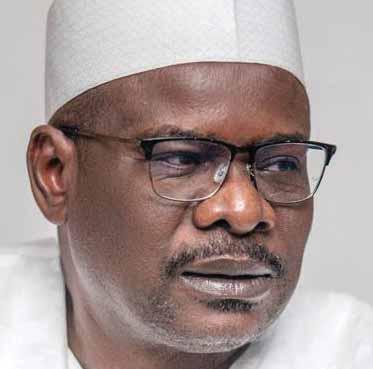
probably, was the recent appointment of a new Chief Executive Officer of the Nigeria National Petroleum Company Limited
[NNPC], compounded two days later by the new line-up of NNPC’s top management. The new GCEO, Bayo Ojulari, hails from Kwara State which, geographically and politically, has been part of the North since colonial times. However, he is also an ethnic Yoruba, which easily fed into long-standing whispers that there is a “Yorubanisation” of top offices under the Tinubu presidency.
In Nigerian political psychology and perceptions, NNPC boss is a very big fish, one of the two “juiciest” executive positions in the country after the Presidency, the other being the Central Bank of Nigeria Governor. Since August 2023, the CBN Governor has been Mr. Yemi Cardoso. Despite his Portuguese-sounding name, he is also ethnically Yoruba, thus feeding regionalists’ charge that the three juiciest Executive positions are in Yoruba hands.
It is not today that this political feeling has pervaded the national political psychology.
In 2002, soon after he was removed as
Senate President, Dr. Chuba Okadigbo was asked in a television interview why senators think of some Senate committees as “juicy” while others are regarded as backwater. Okadigbo said, “It is not only senators. Nigerians generally think that way. When Senate committee chairmanships or ministerial portfolios are announced, people will, “Oh, they gave us Finance!” or “They only gave us Labour!” Does this have practical significance? In some ways it does, but even if it does not, it has enormous impact on public perception of an administration’s sense of fairness and on the psychology of working politicians. It is the easiest tool to use in order to paint an administration black in various regions, hence the need for a Presidency to constantly look over its shoulder in this matter of balance and
Continued on page 46

Rivers State is currently facing a pressing and time-sensitive threat. The oil-rich state has come under intense political scrutiny following President Bola Tinubu's state of emergency proclamation on March 18, 2025. Despite official assurances that this step was necessary to tackle a supposed breakdown of law and order, many observers argue that the constitutional criteria for such a declaration were never met. No credible reports indicated imminent danger to lives or property, and even preliminary police statistics showed no unusual surge in violence across the state. Nevertheless, the federal government acted swiftly: in a single directive, it removed the authority of Governor Siminalayi Fubara, his deputy, and dissolved the legislative apparatus, handing over day-to-day governance to Admiral Ibok-Ete Ibas, a retired military officer appointed as 'Administrator'. This has
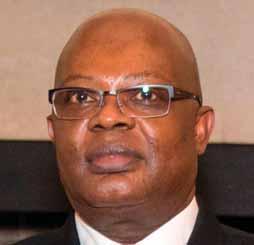
flags for those who initially opposed the measure. Critics argue that Section 305 of the 1999 Constitution—cited by the Presidency as justification—does not grant the power to remove or suspend an elected Governor and legislature. Equally concerning is that instead of simply approving or rejecting the state-of-emergency proclamation, the National Assembly reportedly modified its contents, thereby exceeding the boundaries that the Constitution sets for such an intervention.
Opponents hold that neither the President nor federal legislators have the authority to replace elected officials at the state level. The jury is out on the legality or illegality of the state of emergency. Hon. Linus Okorie, a former legislator, described it this way: "The entire emergency process is riddled with constitutional breaches, political motivations, and authoritarian overreach".
was to replace civil servants overseeing local government administration and appoint politically aligned persons to key positions across local government areas. As a result, the constitutionally mandated practice of running councils via democratically elected officials has been set aside. While the original proclamation from President Tinubu allegedly stressed that the Administrator should formulate only "regulations" limited to security concerns, what has taken place on the ground looks far more like lawmaking. Admiral Ibas began preparing the state's 2025 budget without legislative oversight, triggered the dismissal of Governor Fubara's political appointees, especially those who were nominated and cleared by the then "United" House of Assembly — and most conspicuously the changing of the leadership of the Rivers State Independent Electoral Commission and sparked concerns about potential 'long-term democratic erosion.'
This arrangement immediately raised red
However, since taking office, Admiral Ibas has waded deep into areas typically reserved for elected officials. Among his first actions
Continued on page 46